Joe Moore and Anne Philippi (New Health Club) are hosts of the PS25 Morning Show! This one features Dee Dee Goldpaugh, LCSW and Tommaso Barba, PhDC!
We talk about all things Sex and Psychedelics!
Joe Moore and Anne Philippi (New Health Club) are hosts of the PS25 Morning Show! This one features Dee Dee Goldpaugh, LCSW and Tommaso Barba, PhDC!
We talk about all things Sex and Psychedelics!
In this episode, Kyle interviews Tommy Aceto: former Navy Seal and trauma medic, and now, ambassador for the Veteran Mental Health Leadership Coalition and advisor at Beond Ibogaine.
He talks about how much the psychedelic space focuses on healing and mental health, but doesn’t talk enough about the overall wellness that can come from a consistent practice: that the more you become aware of your body, emotions, and breath, the more robust your neural pathways will become – and that you can actually change your neurochemistry and build a more energetically powerful system. With these pathways being opened, fewer psychedelic experiences are necessary, and with practice, these mind states can be achieved simply through meditation or breathwork. The idea of surrender and entering a state of receivership is scary, but he believes the most important skill to begin that transformation is to learn how to truly let go.
He also talks about:
and more!
Happy New Year from all of us at Psychedelics Today. Let’s hope for big psychedelic wins in 2025!
Ky.gov: Kentucky Opioid Abatement Advisory Commission
Veteran Mental Health Leadership Coalition
Filtermag.org: Kentucky Shelves Plan to Use Opioid Settlement Cash for Ibogaine Pilot
Nbcnews.com: One doctor vs. the DEA: Inside the battle to study marijuana in America
Peter Hendricks Ph.D. – Is Psilocybin Helpful For People Who Abuse Cocaine?
PT377 – Integrative Medicine: Health, Wellness, and Psychedelics, featuring: Andrew Weil, M.D.
Breath: The New Science of a Lost Art, by James Nestor
Psychedelic Education Center: End of Year sale
*Amazon links are affiliate links, meaning that Psychedelics Today will receive a percentage of the sale
In this episode, Joe interviews Melanie Curtis: world record professional skydiver, keynote speaker, coach, co-host of the Trust the Journey podcast, and author of How to Fly: Life Lessons From a Professional Skydiver.
Curtis shares her journey from taking her first transformative leap out of an airplane to becoming a leader in skydiving, public speaking, and now, the integration of psychedelics into personal growth. She discusses the parallels between skydiving and working with psychedelics – most notably in the idea of leaping into the unknown, trusting the universe, and in the potential that can be unlocked after you’ve come back down to earth. While relatively new to the psychedelic space, she stresses the importance of sharing your story and opening up dialogues, no matter how small you think your voice may be.
She talks about:
and more!
PT339 – Kim Dudine – Cannabis: The Gateway Drug to Unity Consciousness
The Hero’s Journey: Finding Your Story in Psychedelic Healing, featuring: Mareesa Stertz
Trust the Journey podcast: #127: Walking Each Other Home – Andy Lewis
How Boards Work: And How They Can Work Better in a Chaotic World, by Dambisa Moyo
How To Fly: Life Lessons from a Professional Skydiver, by Melanie Curtis
*Amazon links are affiliate links, meaning that Psychedelics Today will receive a percentage of the sale
In this episode, Joe interviews Paul Grof: research psychiatrist, clinician, author, brother of Stanislav, professor of psychiatry at the University of Toronto, and director of the Ottawa Mood Disorders Center.
He talks about his extensive career in psychiatry, and how trying to understand the cause of mood disorders led him to focusing on the very nature of consciousness. He believes that consciousness is a collaborative creation between the brain, body, and external fields, and that the key to connecting with the mechanistic side of academia is through talking about the unexplainable – near death experiences, pre-cognition, remote viewing – and of course, them having positive non-ordinary experiences through psychedelics or other means. He talks about how much we’re connected, how much our bodies remember, and how much society could change for the better if enough people experience the transpersonal.
He also discusses:
and more!
Sciencealert.com: Eerie Personality Changes Sometimes Happen After Organ Transplants
The Holographic Universe: The Revolutionary Theory of Reality, by Michael Talbot
Zimbardo.com: Life and Legacy of Psychologist Karl Lashley
Nasa.gov: What Is the Spooky Science of Quantum Entanglement?
Thelaszloinstitute.com: The Akashic Field with Ervin Laszlo – Higher Self Expo
*Amazon links are affiliate links, meaning that Psychedelics Today will receive a percentage of the sale
New ways of looking at non-ordinary experiences and integration are always being conceived. What is the 3-axis framework?
In this episode, Kyle interviews Pierre Bouchard, LPC, LM: therapist, minister, and former professional vinyl DJ specializing in psychedelic-assisted psychotherapy and ministry.
Bouchard introduces his 3-axis framework for psychedelic integration, which looks at the personal, the transpersonal, and, with time, seeing how the lessons learned from non-ordinary experiences and personal work are expressing to the world: How can we use what we’ve learned to show up better? How can we use our gifts to be of service to others? What is stopping us? He also talks about the importance of building a foundation for holding the experience of a psychedelic journey – that you have to first build an ego to later dissolve it – but recognizes the tricky balance of not strengthening an ego so much that it gets in the way.
He discusses:
and more!
PT248 – Pierre Bouchard – Somatic Therapy, Trauma, and the Nervous System
Exploring Somatic Practices and Psychedelics, featuring: Pierre Bouchard, LPC & Kara Tremain, ACC
Deep-psychology.com: Ken Wilber Fundamentals: The Four Quadrants For Newbies
Can erotic energy be as transformative as a psychedelic experience?
In this episode, Joe interviews Bria Tavakoli, LPCC, MA, MS: a therapist specializing in relational and sex therapy, with a focus on helping clients integrate psychedelic experiences.
She shares her personal journey with psychedelics and how they unlocked deep trauma, allowing her to develop a level of comfort with intimacy, love, and her sexuality. She talks about the parallels between psychedelic journeys and sexual experiences, and how both can be gateways to unexplored parts of ourselves, as well as catalysts for healing and transformation. She discusses society’s cultural shame surrounding our sexuality, why we need to view sexuality from a wellness-based model, and how psychedelics can help couples grow together, and at times, really challenge their relational structures. When asked how to combine sex and psychedelics, she answers, “very carefully.”
She also discusses:
and more!
Embodywithbria.net: Share your story
YouTube: PT Live: Joe Moore and Tommaso Barba Discuss Sex and Psychedelics
Nature.com: Psychedelics and sexual functioning: a mixed-methods study
Mating in Captivity: Unlocking Erotic Intelligence, by Esther Perel
Laura Northrup – Healing Sexual Trauma with Psychedelics and Entheogens
Integrativesextherapyinstitute.com
Polysecure: Attachment, Trauma and Consensual Nonmonogamy, by Jessica Fern
*Amazon links are affiliate links, meaning that Psychedelics Today will receive a percentage of the sale
While the science of psychedelics is regularly discussed, the intersection of philosophy and psychedelics isn’t as much. Can an understanding of metaphysics bring more meaning to non-ordinary states?
In this episode, Joe interviews Dr. Peter Sjöstedt-Hughes: philosopher, lecturer at the University of Exeter, co-director of the Breaking Convention conference, and author who most recently co-edited Philosophy and Psychedelics: Frameworks for Exceptional Experience.
He discusses how the work of William James and an early psilocybin experience led him to an interest in philosophy and psychedelics, and he dives deep into several philosophical concepts: panpsychism, pantheism, ethical pluralism, teleology, process theology, Whitehead’s fallacy of misplaced concreteness, and more. He believes that science has lost touch with metaphysics – the branch of philosophy that examines the basic structure of reality – and that studying metaphysics will lead to more beneficial experiences with the non-ordinary: If you can understand and frame the experience, you’ll have a much better chance of being able to integrate its lessons.
He discusses:
and more!
Sjöstedt-Hughes is the co-lead on Exeter’s 12-month postgraduate certificate course, “Psychedelics: Mind, Medicine, and Culture,” and is finalizing his next book, a manual on psychedelics and metaphysics.
PGCert Psychedelics: Mind, Medicine, and Culture (Online)
Shroom: A Cultural History of the Magic Mushroom, by Andy Letcher
YouTube: Consciousness and psychedelics | Peter Sjostedt-H | TEDxTruro
The Varieties of Religious Experience: A Study in Human Nature, by William James
Stanford.edu: Russellian Monism
Journalpsyche.org: Panexperientialism, Cognition, and the Nature of Experience
Neo-Nihilism: The Philosophy of Power, by Peter Sjöstedt-H
Comicbooknews.co.uk: Warren Ellis ushers Karnak into the Marvel Universe
The Center for Process Studies
Frontiersin.org: On the need for metaphysics in psychedelic therapy and research
The Holographic Universe: The Revolutionary Theory of Reality, by Michael Talbot
LSD Psychotherapy: The Healing Potential of Psychedelic Medicine, by Stanislav Grof, M.D.
*Amazon links are affiliate links, meaning that Psychedelics Today will receive a percentage of the sale
Psychedelic shadow work is central to the transformative potential of entheogens, helping us confront and integrate hidden parts of our psyche.
Psychedelic experiences, in and of themselves, do not create lasting change by chance or passively – they require active participation. Entheogens can open the doors to the unconscious and invite us to make meaning from its contents. Shadow work supports this soul-manifesting process by helping us embrace our hidden parts so that we may become fully actualized.

Psychotherapist Carl G. Jung coined the term “shadow” to describe the instincts, drives, and emotions we consciously and unknowingly repress but whose malignant impacts we feel.
The shadow contains our darkest secrets, covert desires, and obscured emotions. It holds our greatest fears and our fullest potential; it is the source of intuition, wisdom, and individuation. And yet, most of us reject it because we fear the truth – that we are both good and evil, loving and hateful, angry and calm, devastated and joyful, masculine and feminine.
“The shadow is a living part of the personality and therefore, wants to live with it in some form. It cannot be argued out of existence or rationalized into harmlessness,” said Jung in Archetypes and the Collective Unconscious.
Yet we disguise our undesirable traits, in part, to get along in polite society.
This process is necessary, according to the late psychedelic-assisted therapy pioneer Ann Shulgin. After all, we can’t enact our darkest fantasies of rear-ending every insufferable driver who cuts us off. We need executive control via the ego to quell such drives.
However, the issue arises when we overcorrect and deny our shadow’s existence.
When we hide from unflattering elements of ourselves, like aggression, guilt, power-hunger, and greed, we paradoxically give these traits more control over our lives. Unseen shadows show up unexpectedly, like when we lash out over minor frustrations, sabotage our career because of unacknowledged fears of success, or spout passive-aggressive remarks instead of confronting conflict directly. Unprocessed shame or guilt can manifest as perfectionism, and buried feelings of inadequacy may elicit a compulsive need to control.
“A man who is possessed by his shadow is always standing in his own light and falling into his own traps,” wrote Jung.
But just as we suppress unfavorable qualities, we also bury our brightest traits.
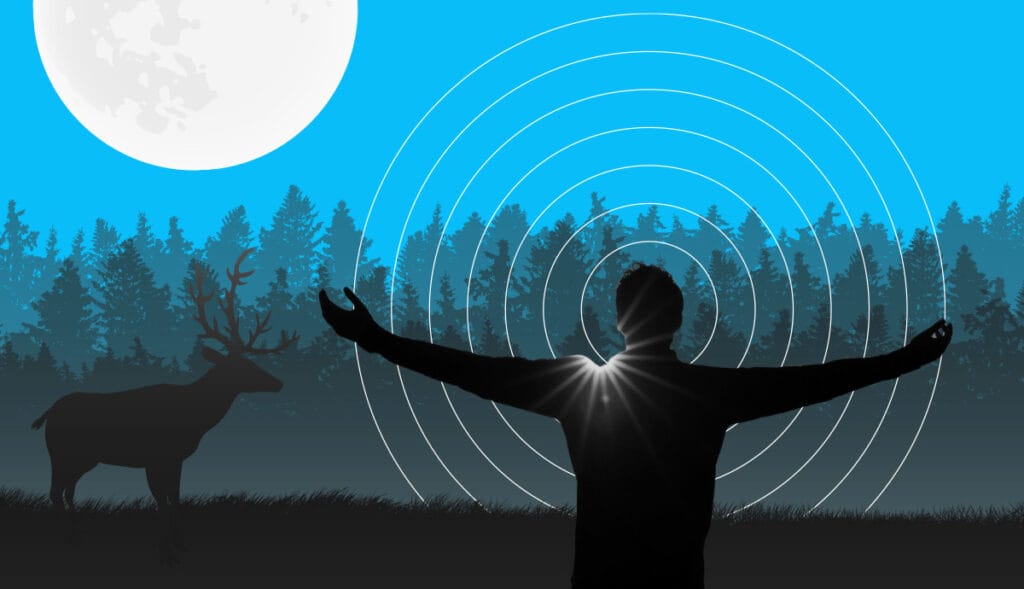
The “golden shadow” refers to these constructive qualities, such as confidence, creativity, compassion, leadership, and joy. We see these characteristics in others but sometimes fail to recognize them within ourselves because we feel unworthy, afraid of failure, or unfamiliar with how to embody them.
Kyle Buller, M.S., Psychedelics Today co-founder and psychedelic integration therapist, notes that many of us come from environments where positivity is unwelcomed.
“People may find it hard to experience joy because they associate it with guilt or shame, or they might feel that the therapeutic focus should be about the ‘darker emotions’ when it comes to shadow work. They may want to shut the good feelings down. This can be a great opportunity to work with the golden shadow,” said Buller.
Whether golden or dark, the shadow must emerge from hiding so we can reclaim our autonomy. But we must do the work to coax it out.
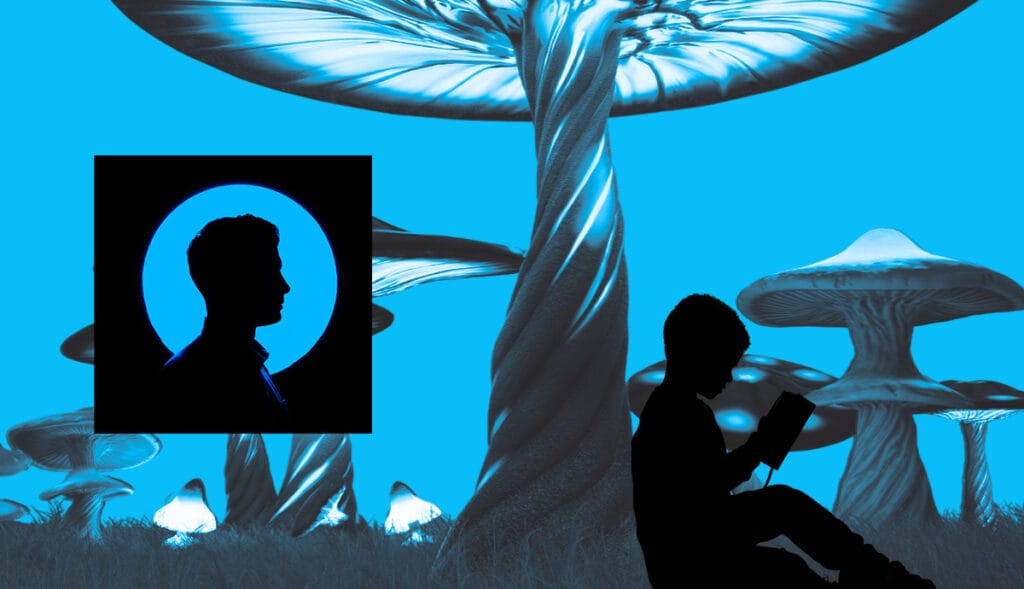
Ido Cohen, Psy.D. and lead instructor of the course, Navigating the Jungian Shadow with Psychedelics, defines shadow work as the practice of becoming conscious.
“We develop our ability to be aware and embody what we are conscious of,” Cohen told Psychedelics Today.
Psychedelics are one of the best ways to do this work because they “activate and amplify the psyche and our emotional, somatic and spiritual dimensions.” Dreams, hypnosis, and life transitions are also excellent catalysts.
Dreams
Jung believed dreams offer a direct path to the unconscious through their symbols. He suggested that themes like falling could represent a fear of failure, being chased might signify an unresolved conflict, and dark figures could convey unaddressed desires. He advocated that processing and analyzing such symbols illuminates the shadow.
Hypnosis
According to Ann Shulgin, Ericksonian hypnosis is another powerful shadow work method. This approach leads patients into a trance, where they descend a stairway deep into their inner world. When they reach the basement, they confront the shadow, which they see as a fierce animal. The hypnotist instructs them not to fear the beast but to enter its form and experience the world through its eyes. This merging allows them to harness the shadow as an ally rather than an enemy.
Transitions
Major life transitions, such as losing a loved one or experiencing a midlife crisis, can also ignite shadow work, whether we choose it or not. Such events break down our defenses and ego structures, leaving us vulnerable to repressed emotions, drives, and conflicts that demand our attention in order to grow.
Psychedelics
Psychedelic experiences are perhaps the most reliable path into the depths of our souls because they fundamentally change the way we think, feel, see, and perceive our inner and outer worlds. Entheogens teleport us directly beyond the ego’s veil into the unknown
“Psychedelics offer a unique opportunity to face our repressed parts head-on. They allow access in ways that regular psychotherapy may not,” said Buller.
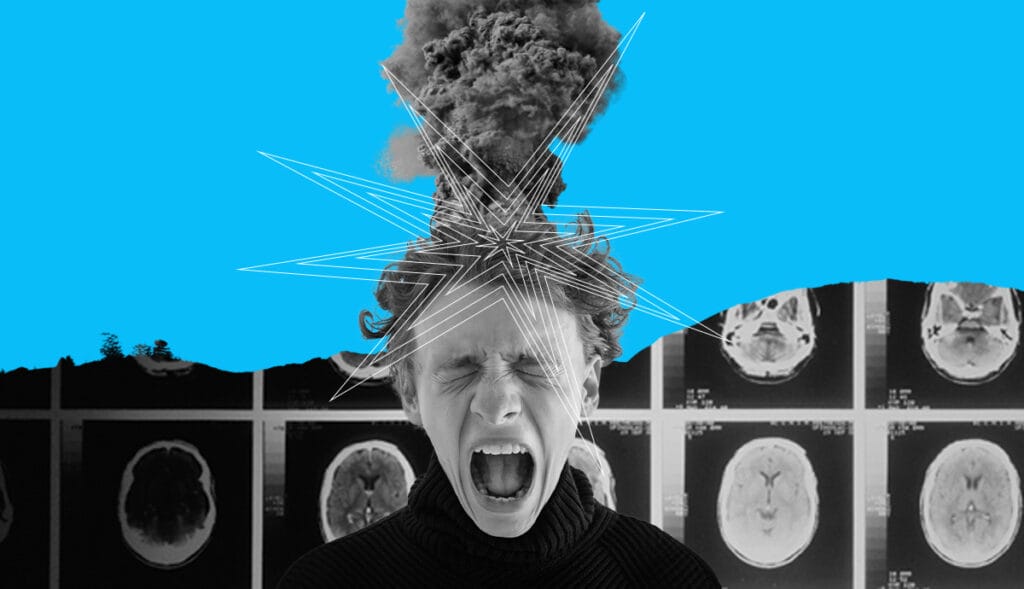
Psychedelics help us access the shadow by disrupting the way our neural networks communicate and perceive stimuli. This process reduces activity in the brain’s default mode network (DMN), which governs our sense of self and ego.
When the DMN quiets, boundaries between consciousness and unconsciousness blur. The resulting experience excavates stifled thoughts, memories, emotions, and visions while allowing us to interact with them from an open and receptive state.
Shadow work can happen naturally during these journeys. We might even transcend the unconscious labels of “good” vs. ” bad” while stepping outside our sticky parts to merge with something greater than ourselves. Such interconnected insights are transformative, but they are not necessarily the norm.
Psychedelics often reveal harrowing traumas and wounded parts that we may be unskilled to face. This confrontation can spark intense anger, grief, or shame. Our ego will resist the discomfort to protect us, but its efforts will paradoxically exacerbate it. We may become overwhelmed, overly identified with the pain, or completely detached from reality.
These very real risks are a crucial reason navigating the shadow with psychedelics often requires support, especially when we’re inexperienced with these substances.
Psychedelic-assisted therapy, preparation and integration coaching, and group processing provide critical foundations to face and embrace unconscious aspects of the self.
Skilled practitioners know how to hold space for every part of us to emerge. If we’re experiencing unresolved rage, therapists or facilitators can help us feel and release it.
“Anger is a major emotion that people often struggle to express. We [as practitioners] might ask, ‘What would it look like to express this anger?’ It could mean yelling, shaking, or verbalizing. Clients may even direct anger toward the therapist in place of the person they’re really angry at,” said Buller, who added that projections are O.K. within the confines of the practitioner’s comfort and safety boundaries.
Psychedelic facilitators also invite us to stick with the feelings we may want to oppose.
“When clients experience discomfort, we might ask, ‘Can you find pleasure in this sensation?’ Sometimes, the edge of discomfort is where the real work begins,” said Buller.
Buller explains that from a holotropic breathwork perspective, amplifying emotional expression is the key to expunging it from our system.
However, the edge is sometimes too dangerous to approach, and effective practitioners know when to pull back the reins.
“We don’t push shadow work agendas on clients. If you go too quickly, the parts might rebel. Instead, we take a slow approach and partner with the client so they can eventually go deeper,” said Buller.
This alliance allows practitioners to determine when digging into the shadow’s contents is appropriate and when it could inflict harm.
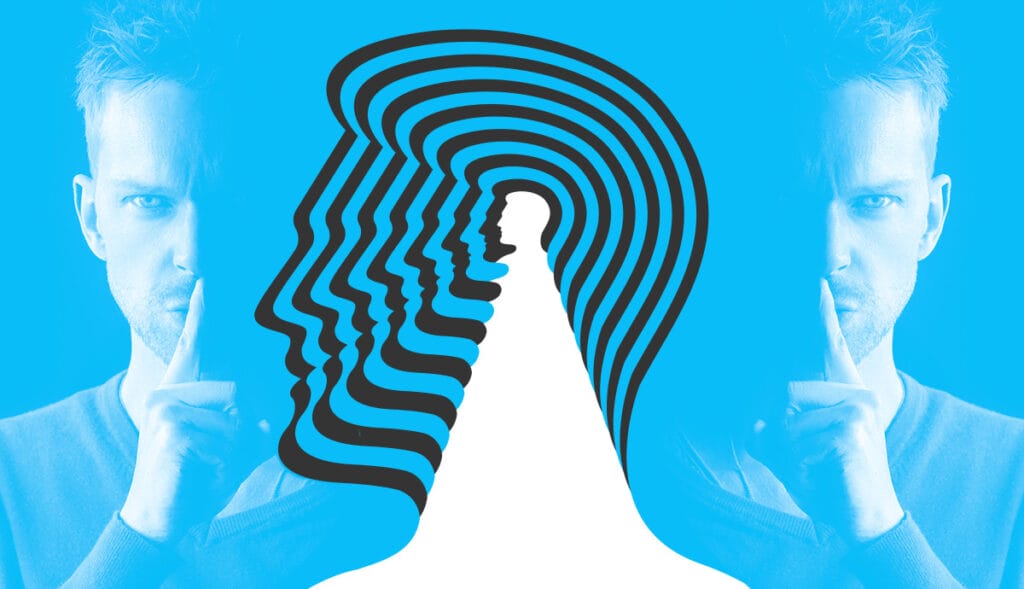
After confronting the shadow, we must begin the process of integration, where we interpret and act on our findings. Some of the most effective integration methods involve working with a therapist, coach, or support group.
“Ideally, we want to start with a safe process of slowly digesting our psychedelic insights. We can then form a relationship of curiosity, inquiry, and then change,” said Cohen.
The change piece can be the most challenging because it mandates that we rewire our lives to match the authentic selves we’ve been hiding for so long. We may need to quit a job, end a marriage, or restructure relationships with friends, family, and substances. Such radical shifts often require reliable help and compassionate accountability.
Therapists trained in psychedelic integration, especially those using frameworks like Jungian analysis or Internal Family Systems (IFS), are well-suited for effective shadow work because they provide a structured approach to processing unconscious material.
Jungian therapists can help interpret the symbolic messages of psychedelic visions, such as the tiger, whose archetype might signify repressed feminine essence, aggression, or independent spirit.
Analysts can also help us make sense of bodily sensations, postures, memories, and emotions.
“We then want to understand the shadow material within the larger context. How was it formed, what’s its use, and more. This will allow us to start weaving together a narrative, opening us to intergenerational and environmental influences and having more compassion with ourselves,” said Cohen.
In the context of IFS, therapists can help us integrate the shadow using parts language. They may guide us in understanding that the tiger is a protector part, fiercely defending our vulnerable exiled parts, such as our traumatized inner child from suffering. Such terminology prevents us from overidentifying with the stifled rage and allows for a more harmonious and balanced sense of self.
Psychedelic shadow work is transformative, especially in the context of powerful journeys and integration. It provides a framework for understanding the visions, sensations, and thoughts that arise during altered states of consciousness and invites us to engage further. In turn, psychedelics calm our ego and amplify our psyche so we may embrace our inner outcasts as missing puzzle pieces to the fullest expression of our humanity.
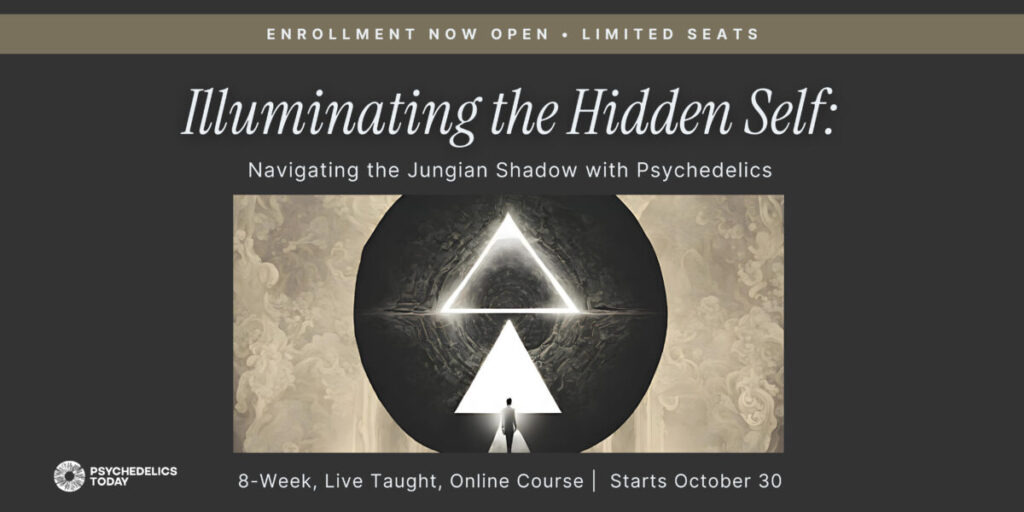
Telling our stories of psychedelic healing is more important than ever, but sometimes, those stories aren’t so clear cut. Can applying the classic archetype of the Hero’s Journey to your narrative help you find your story?
In this episode, Joe interviews Mareesa Stertz: lead of strategy/communications at the Global Psychedelic Society, co-founder of Lucid News, and filmmaker, currently finalizing her second feature film, “Confessions of a Psychonaut.”
She discusses her path to wanting to create the film: how she always felt like something was wrong with her but didn’t know exactly how to start her healing path, how seven ayahuasca trips didn’t give her the breakthrough experience she wanted, and how she realized over time that she didn’t have a hidden moment of trauma to overcome, but rather, lots of “little t” trauma – something that a lot of us have, without necessarily knowing it. She saw the true power of people sharing their stories of becoming healthier, and has found that aligning our stories to the classic framework of the Hero’s Journey and Carl Jung’s concept of individuation is the perfect formula for self-awareness, growth, and finding more meaning in life.
She talks about:
and more!
Stertz is passionate about creating a culture that celebrates healing, and believes the biggest thing we can all do is to share our stories. She’s offering a course on finding where the Hero’s Journey is in each of our lives: “Emerge: A Journey of Self-Authorship” begins on October 29. Click here for more info.
Upcoming storytelling course: Emerge: A Journey of Self-Authorship
”Confessions of a Psychonaut” trailer
Indiegogo.com: Help bring “Confessions of a Psychonaut” to the big screen
Lucid.news: Adventures of the Psyche
Azquotes.com: Albert Camus’ suicide quote
Socratic-method.com: Pliny the Elder’s “depth of darkness” quote
Templarhistory.com: Eliphas Levi: The Man Behind Baphomet
This online hybrid live course delves into the profound realms of the human psyche, drawing upon the pioneering work of Carl Jung, the transformative potential of psychedelics, and the intersection of the two worlds. Participants will embark on a journey to understand the concept of the “Shadow” – the hidden, unconscious aspects of the personal psyche and the collective – and explore how psychedelics can serve as tools to illuminate and integrate these often-neglected facets of our being.
Class meets on Wednesdays, for 8 weeks, from 9:00 – 11:00 a.m. PST / Noon -2:00 p.m. EST, beginning on Oct. 30, and continuing until Dec. 18.
By taking this course, you will learn:
Taught by Dr. Ido Cohen, Kyle Buller, M.S., Johanna Hilla-Maria Sopanen, and Marc Aixalá. Head to the course page in the Psychedelic Education Center for more info.
While the concept is often unfairly reduced to replacing one drug with another, many people struggling with addictions are proving that there’s a positive link between the use of psychedelics and addiction recovery. Can microdosing be a factor?
In this episode, Joe interviews Danielle Nova: founder of Psychedelic Recovery, founding team member of Decriminalize Nature Oakland, and Executive Director of the San Francisco Psychedelic Society.
As a recovering addict, Nova discusses how working with psychedelics helped her find her way to recovery, and how she’s spreading that knowledge to others through her Psychedelic Recovery program, which focuses more on ‘targeted abstinence,’ instead of the total abstinence model of Psychedelics In Recovery (which works alongside AA’s 12-step program). She believes that it’s extremely important to reframe addiction as a life process or temporary state of consciousness (rather than a life sentence you can’t escape), and that beating addiction is not about constantly being afraid of a relapse, but about evolving to a state of empowerment: that you can overcome it, and that actually, a horrific addiction may have saved you and brought you to where you’re supposed to be.
She discusses:
and more!
She has co-created Microdosing Facilitator Training with Adam Bramlage of Flow State Micro: a first-of-its-kind 4-month program teaching clinicians, facilitators, and coaches about microdosing and how to safely guide others through the practice. The next cohort launches in January 2025.
Microdosingfacilitatortraining.com
Nature.com: Low doses of lysergic acid diethylamide (LSD) increase reward-related brain activity
PT303 – Adam Bramlage – Cannabis, Microdosing, and Our Evolutionary Connection to Psychedelics
How Long Does A Microdose Last? by Elena Schmidt
Nih.gov: Valvular Heart Disease with the Use of Fenfluramine-Phentermine
Modern Western culture has conditioned us to suppress our feelings and bury negativity, exacerbating any existing trauma and often creating more. With the rise in popularity of psychedelic-assisted therapy, just how important is it for practitioners to be trauma-informed?
In this episode of Vital Psychedelic Conversations, David interviews Deanna Rogers: Registered Clinical Counselor and Vital instructor.
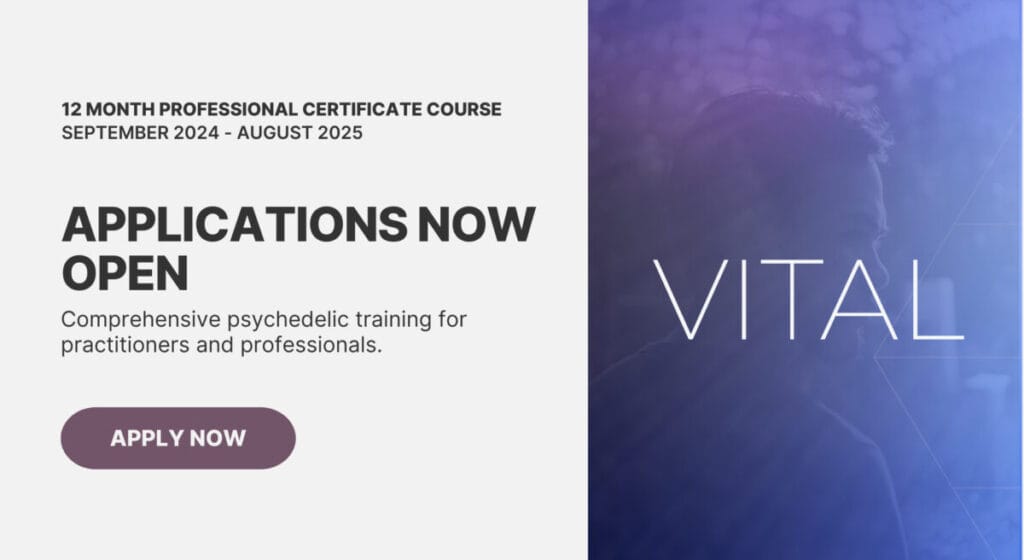
She discusses how trauma grows in our bodies, and the importance of practitioners and facilitators becoming trauma-informed before working with clients. She stresses the need to create the right conditions for clients to be able to work with trauma – to bring compassion to the different parts of their self and build a relationship with the uncomfortable ones, to interrupt negative narratives, and to learn how to exist in a place where they can embrace their window of tolerance and explore discomfort in a safe way. What is the specific container and pace each client needs? How flexible is their nervous system to be able to work with these states? What can be done to bring out the empathetic witness in themselves? And most importantly, how can their sense of agency be improved so that they feel like they’re fully in control of how deep things go?
She discusses:
and more!
Rogers is one of our Vital instructors, featured in one of Vital 4’s new Specializations: Somatics & Trauma. This cohort begins on September 17, and the application deadline is next week, September 3, so apply today before it’s too late!
Somethinkofvalue.com: 70 Gabor Maté Quotes About Trauma, Healing, and More
Goodreads.com: Peter Levine quote
PT302 – Dr. Adele Lafrance – Vital Psychedelic Conversations
There are many different aspects to consider when integrating a psychedelic experience, and many tools to help, like engaging in shadow work, practicing meditation, and even applying teachings from Buddhist philosophy.
In this episode of Vital Psychedelic Conversations, Vital instructor, Diego Pinzon hosts his first podcast, interviewing Vital graduate and clinically-trained psychologist, “The Kinki Buddhist”: Kate Amy.

As Amy’s interest in psychedelics grew, she began to see a clear intersection between psychedelic states and the non-ordinary states she’d reached through years of meditation practice, as well as lessons from Buddhism that could help in better understanding psychedelic journeys. She talks about the importance of really understanding what it is one is seeking when looking to have a psychedelic experience, and the significance of integration – no matter how long it takes. While she has tips that have worked for clients, she feels that the psychedelic space has a long way to go in establishing best practices for the most effective integration.
She discusses:
and of course, her experience with Vital!
The deadline for submitting your application is next week, August 23, so make sure to get your application in today.
Mindworks.org: The 5 Precepts Of Buddhism And Why They Matter
Jungian psychology takes a fascinating look at the relationship between the conscious and unconscious parts of our minds. How is this framework brought more to the forefront through psychedelics and an understanding of our many parts?
In this episode of Vital Psychedelic Conversations, Johanna interviews Jung experts and Vital instructors: Maria Papaspyrou, psychotherapist and co-founder and director of the Institute of Psychedelic Therapy (IPT); and Dr. Ido Cohen, clinical psychologist and founder of The Integration Circle.
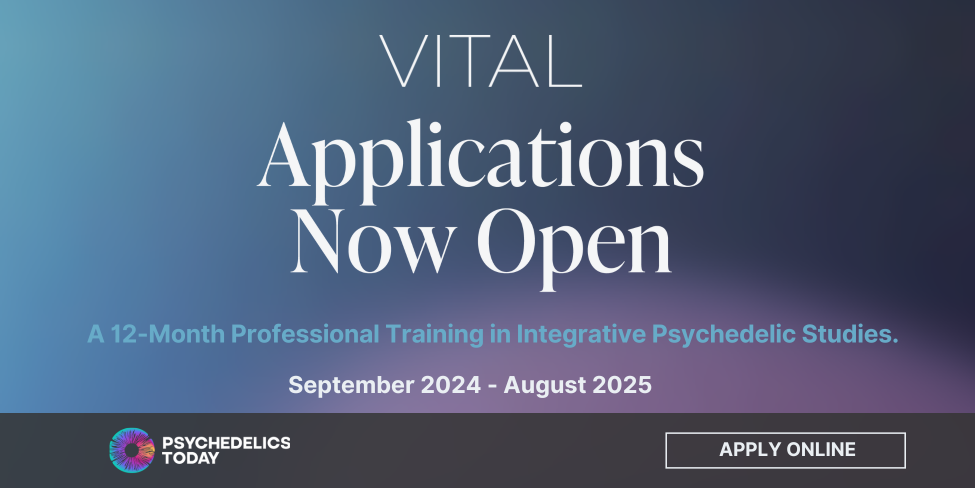
They talk about the experiences that helped them first understand the concept of multiple different parts making up their being, and dive into what it is about psychedelics that allows us to discover and work with these different parts: how the protector parts of our psyche work overtime to keep parts away from us, and how psychedelics can dissolve them, leading to a better understanding of ourselves. How much of our persona is based on who we feel we’re supposed to be? What shadow parts are stopping us from being our true selves? And what amazing parts of ourselves have yet to be discovered?
They discuss:
and more!
If you really want to dig into Jungian ideas, Jungian psychology is one of the new specialization tracks featured in the next cohort of Vital, beginning September 16. If you want to know more, send us an email or attend one of the next Vital Q+As.
Instituteofpsychedelictherapy.org
PT390 – Vital Psychedelic Conversations, featuring: Mackenzie Amara & Dr. Ido Cohen
PT450 – Dreams, Psychedelics, Symbolism, and Cockroaches, featuring: Mackenzie Amara & Dr. Ido Cohen
Lithub.com: The Heteronymous Identities of Fernando Pessoa
My Self, My Many Selves, by J.W.T. Redfearn
*Amazon links are affiliate links, meaning that Psychedelics Today will receive a percentage of the sale
What are bad trips, or adverse, negative, or challenging experiences? Can a definition truly define the power they have to create intense distress and sometimes life-defining moments? Why do they happen, and how do you deal with them?
In this episode, Joe interviews Erica Rex, MA: award-winning journalist, past guest, thought leader on psychedelic medicine, and participant in one of the first clinical trials using psilocybin to treat cancer-related depression.
She tells the story of her recent harrowing experience, brought on by 6 times the amount of Syrian rue that was recommended: from entities threatening her, to a sense of terror she was going to die, to finding her way out of it with time, and most importantly, context to process and a strong support system. She and Joe emphasize the reality that bad trips can happen at any time, with any dose, for any reason, and that – if you can make your way through the experience without being traumatized – you can learn a lot about yourself during those states.
Her book, “The Heroine’s Journey: a woman’s quest for sanity in the psychedelic age” will be published by She Writes Press in the spring of 2026.
She discusses:
and more!
Psychedelicrenaissance.substack.com
National Institutes of Health/National Cancer Institute: A Breast Cancer Patient’s Perspectives on the Uses of Psychedelics in Medicine (Erica’s talk starts at 1:04:41 and lasts about 44 minutes)
PT273 – Erica Rex – Clinical Trials and Spontaneous Mystical Experiences
Could the Sonoran Desert Toad Cure Narcissism? by Erica Rex
Chacruna.net: DEA Denies Soul Quest’s Religious Exemption: Impacts on the Ayahuasca Community
An Inside Look at the FDA and Early Drug Development, featuring: Dr. Amanda Holley
Lykospbc.com: Lykos Therapeutics Statement on FDA Advisory Committee Meeting
Nih.gov: Persistent Psychosis After a Single Ingestion of “Ecstasy” (MDMA)
Goodreads.com: Albert Camus’ quote about suicide
Although the late psychologist and mystic Carl Jung died in the 1960s, his ‘inner self’ legacy is enjoying an organic revival, synchronizing with the resurgence of psychedelics.
Jung’s work provides a reliable road map for a psychedelic trip through the unconscious, and contemporary psychedelic explorers are hungry to learn more about his profound teachings.
Jung’s enduring transpersonal principles can help us interpret and understand complex non-ordinary experiences, whether they’re brought on by psychedelic compounds or other endogenous methods.
Thus, his insights resonate with a broad audience: licensed therapists, reiki practitioners, guides, yogis, integration coaches, breath workers, and others.
“We’re in need of tools that help us to articulate what’s going on at that level of depth,” says Jungian analyst-in-training and clinical psychology doctoral student MacKenzie Amara. “…we don’t have [many tools] to articulate what’s happening when we get into the messy place of extreme emotional catharsis and symbolic representation through the form of visions and communication with ancestors who have been long dead.”
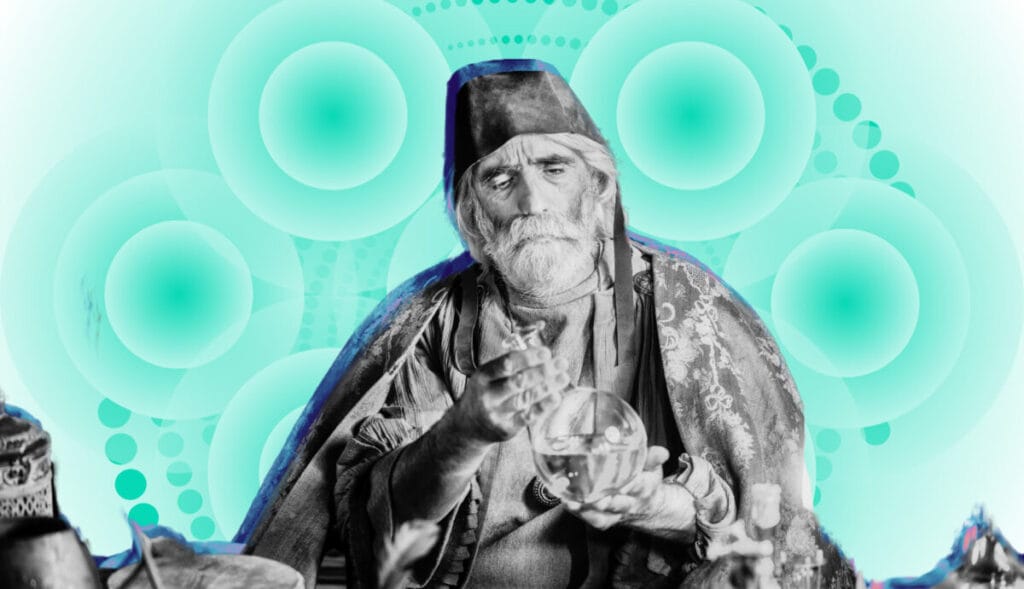
In order to comprehend Jung’s psychospiritual philosophies, it’s crucial to first understand some basic Jungian concepts and terms. Jung believed that the psyche (mind, body, soul) is composed of three parts: the ego (or personal conscious), the personal unconscious (unique, containing suppressed memories), and the collective unconscious.
The collective unconscious is a domain of primordial images and symbols that evoke meaning and connection across races, cultures, and nationalities. According to Jung, these symbols contain ‘ancestral memory’, which is inherited. Our ancestral roots and dreams provide insights into the collective unconscious, which shapes our perceptions, knowledge, and experiences.
Within this realm, four main archetypes reflect our beliefs, values, motivations, and morals. The four main Jungian archetypes are:
Due to intense engagement with archetypes during psychedelic experiences, individuals risk having their personal worldviews disassembled in the process.
“Jungian theory lends itself to people that have had spiritual, transgressive, or transpersonal experiences more than those that are kind of stuck in a rational materialistic worldview,” Amara explains.
These transpersonal experiences make the Self the focal point of the journey of individuation.
The Self is central to Jung’s worldview, merging consciousness and unconsciousness to represent the whole psyche. We are born with a sense of unity, but as we grow and focus on the outer world—school, work, relationships—we form an ego and lose this unity, neglecting our inner world.
Jung identified two life stages: the outer world and the inner world. As adults, we often experience tension between our conscious and unconscious minds, leading to a midlife crisis. This signals the need to nurture our inner life.
Life’s challenges can bring a “dark night of the soul,” where societal values fail us. This prompts a quest to reconnect with our soul, though many avoid this confrontation. Embracing our suffering can lead to psychic growth, uniting our conscious and unconscious realms.
Through this process, known as individuation, we integrate the ignored parts of our unconscious, regaining wholeness and inner harmony.
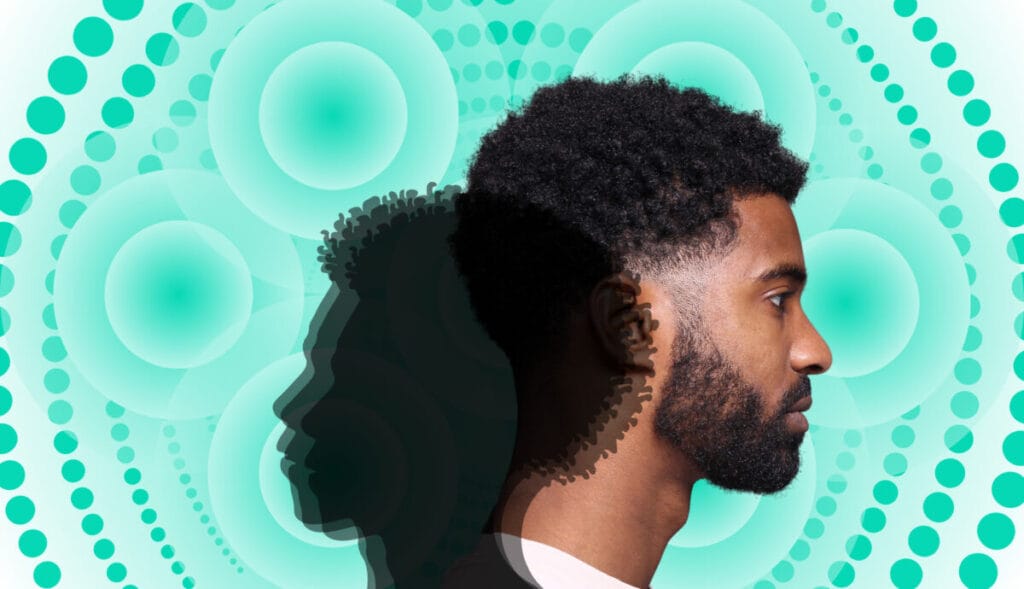
As we turn inward, we encounter individuation, a central theme in Jung’s work. Individuation integrates our unconscious with the conscious, restoring the wholeness of the Self. This process, akin to self-actualization, involves breaking free from societal and cultural norms to become a unique individual. Successful individuation provides deep-rooted stability, like an ancient oak tree, supporting us through life’s storms.
Individuation heals the split between the conscious and unconscious, allowing our true Self to emerge. This journey creates turbulence as we realize our conventional world and unconscious world often conflict. The conventional world shapes our beliefs and behaviors, creating a structured reality. In contrast, the unconscious is chaotic and tumultuous, divided into the personal and collective unconscious. The personal unconscious contains everything outside our conscious awareness.
From birth, we operate largely on autopilot, influenced by external conditioning. This conditioning shapes our ego and self-perception, leading to a split and psychic imbalance. Psychedelics can help repair this split, aligning our conscious and unconscious minds.
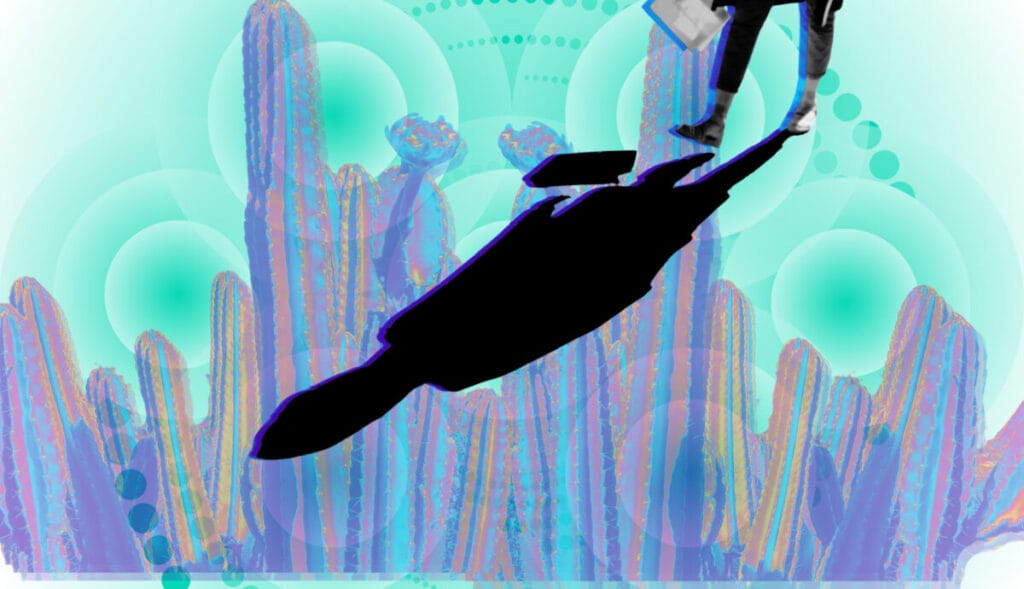
Carl Jung coined an often used term in psychedelic vernacular: ego death. Ego death refers to a compromised sense of self, and it’s a state that’s coveted by many psychonauts. While some consider it an end goal of psychedelic work, it’s really the first step towards a return to wholeness. So, why is this idea prevalent in the psychedelic community?
“Psychedelics are what we call psycho-pumps for individuation. Meaning psychedelics are connectors to personal and collective unconscious; what gives you more of the unconscious material to then work with,” Dr. Ido Cohen explains.
This idea results in the common sentiment that psychedelics are “ten years of therapy in one day.”
While Cohen doesn’t think it’s necessarily accurate, he believes people are trying to say, “Wow, psychedelics can really open up the barrier to the personal and collective unconscious which then a flood of information comes in.”
This shedding of a one-sided self-identity holds true in above ground and underground psychedelic settings, as people jump-start their individuation. Insights can follow that may lead a person to explore what has been relegated to the basement of their psyche, or the “shadow.” When we learn to dance with the shadow, we empathize and relate with all of mankind on a profound level, Cohen says.
As a midlife crisis arises, or we enter a dark night of the soul, and the process of individuation begins and we come face to face with our shadow. This daunting task is referred to as doing “shadow work,” (another Jungian term gaining popularity in licensed and underground settings alike).
At first glance, we may see our shadow and assume it is evil or an enemy. But our shadow is part of us, and can’t be abandoned or avoided. As we familiarize ourselves with the shadow, we learn that it is not to be feared, as it is only dark or hostile when it is ignored or misunderstood. Thus, it’s critical to understand what the shadow really is.
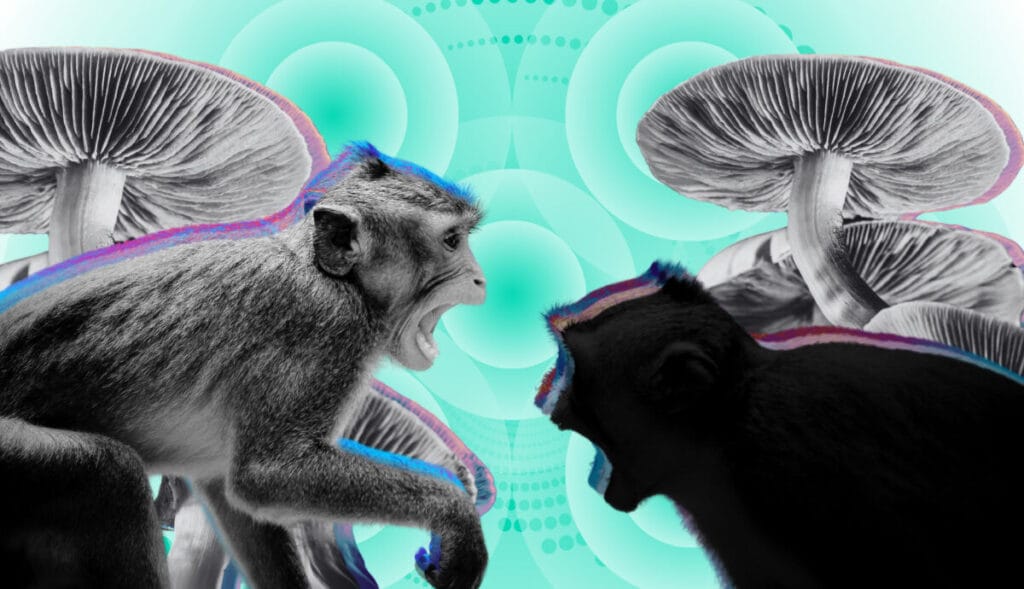
The shadow encompasses all the psychic elements we reject and hope to discard by casting them into the depths. It includes the traits we’ve ignored, disowned, or removed from ourselves, forming our personality in the process. The shadow is the unknown dark side of our personality, representing everything we desire not to be.
The shadow includes negative and primitive human emotions and impulses: selfishness, rage, greed, pride, and lust. Anything we reject in ourselves as evil, intolerable, or less than ideal forms the shadow. It’s a repository of both negative and positive qualities we no longer claim. Within this mix, we find the shadow’s hidden treasures.
Cohen notes, “There is also the golden shadow, which includes beautiful aspects we repressed due to our upbringing or environment.”
This could mean rediscovering playfulness or sexuality. Or it could reveal latent talents, like a lawyer discovering a talent for writing or an athlete becoming a chef. It often emerges in psychedelic settings, inspiring life changes like new careers, divorces, or relocations. However, it’s crucial to provide quality integration and a solid container to help individuals make sound decisions and avoid regret.
The shadow compensates for what we lack. For instance, if a person is aggressive, the shadow reflects empathy and tenderness. If they’re shy, it reflects confidence and assertiveness. Honoring and accepting the shadow is an intense spiritual exercise, revealing our potential and the ideal self we strive to become.
For the Western mind, unaccustomed to Indigenous worldviews that embrace plant spirits and entities, Jung’s concept of the inner self offers all psychedelic practitioners an invaluable tool to navigate the mind-manifesting unknown. Think of Carl Jung as a trustworthy psychic sherpa: he guides us through the peaks and valleys of the timeless and boundless realms of human consciousness (and unconsciousness), helping us reconnect with our soul.

In this episode of Vital Psychedelic Conversations, David interviews Casey Paleos, MD: Vital instructor, researcher, psychiatrist with a private practice offering ketamine infusion therapy and KAP, and co-founder of Nautilus Sanctuary, a non-profit psychedelic research, education, and advocacy organization.

Paleos talks about how stress creates trauma, and how the symptoms Western medicine tries to silence are actually signals – a quality assurance mechanism sending an alert that something is wrong, and that when symptoms are labeled as ‘treatment-resistant,’ is it actually a case of one’s own inner healing intelligence outsmarting a medication to make sure that that message is delivered?
He discusses:
and more!
Verywellmind.com: What Is the Diathesis-Stress Model?
Lykospbc.com: Lykos Therapeutics Statement on FDA Advisory Committee Meeting
Nautilussanctuary.org: The Dana Paleos Fund
Mymodernmet.com: Kintsugi: The Centuries-Old Art of Repairing Broken Pottery with Gold
In this episode, Kyle interviews Peter A. Levine, Ph.D.: developer of Somatic Experiencing®, educator, and author of several best-selling books on trauma.
His most recent book, An Autobiography of Trauma: A Healing Journey, is exactly that: a change from more scholarly writing into an extremely vulnerable telling of his early childhood trauma and how he has healed over the years. He talks about how his unconscious convinced him to write the book, how trauma can move into the body, and how he needed a student to identify how his trauma was affecting him. He believes that we all have wounding, but it’s how we carry these wounds and tell our truth that matters.
He discusses:
and more!
An Autobiography of Trauma: A Healing Journey, by Peter A. Levine
Ted.com: How to live passionately—no matter your age
YouTube.com: The Moth Presents Andrew Solomon: Notes on an Exorcism
YouTube.com: Marvin Gaye – It Takes Two
Navigating Psychedelics: Australia – 9-Week Certificate Program in Psychedelic-Informed Practice
*Amazon links are affiliate links, meaning that Psychedelics Today will receive a percentage of the sale
In this episode, Kyle interviews Simon Yugler: psychedelic-assisted therapist, educator, and author of the book, Psychedelics & the Soul: A Mythic Guide to Psychedelic Healing, Depth Psychology, and Cultural Repair, which comes out this fall.
He digs into depth psychology and why it’s a beneficial framework for navigating non-ordinary experiences – a practice he believes will be the next focus in psychedelic education and understanding, alongside more analysis into the archetypes and myths that reside within (and all around) us. In an age of hyper-individualism and isolation, the stories and archetypal energies we share (which can be brought more to the forefront with psychedelics) can be incredibly healing and connecting.
He discusses:
and more!
What Is Depth Psychology and How Does It Relate to Psychedelics? by Simon Yugler
PT293 – Stanislav & Brigitte Grof – The Evolution of Breathwork and The Psychology of the Future
Cosmos and Psyche: Intimations of a New World View, by Richard Tarnas
The Origins of Creativity, by Edward O. Wilson
*Amazon links are affiliate links, meaning that Psychedelics Today will receive a percentage of the sale
In this episode, David interviews Sami Awad: Palestinian peace and nonviolent activist and founder of Holy Land Trust in Bethlehem; and Leor Roseman, Ph.D.: Israeli neuroscientist, researcher, and senior lecturer at the University of Exeter.
They talk about Roseman’s 2021 paper, “Relational Processes in Ayahuasca Groups of Palestinians and Israelis,” which looked at what happened when people with fiercely different opinions moved beyond fear, anger, and othering, and sat together in a safe container and drank ayahuasca with the purpose of healing collective trauma. When the focus of the participants moved toward understanding each other, Roseman and Awad saw a unity that gave them a lot of hope, leading to the creation of their nonprofit, RIPPLES, which is focused on using psychedelics for peacebuilding – first in the Middle East, and hopefully soon, everywhere. As Awad says, “If it can happen here, it can happen almost anywhere.”
They discuss:
University of Exeter: Dr. Leor Roseman
Frontiersin.org: Relational Processes in Ayahuasca Groups of Palestinians and Israelis
In this episode, Joe and special guest, Court Wing, interview Tommy Aceto: former Navy Seal and trauma medic, NCAA athlete, Michigan State Champion Wrestler, and now, psychedelic advocate and ambassador for the Veteran Mental Health Leadership Coalition.
He discusses his journey from childhood to wanting to become a SEAL, and the toll that military life and its programming can take on a person: how a life built on high levels of endurance, deprivation, and constantly surviving in a fight-or-flight mindset often manifests in Operator Syndrome, chronic pain, depression, and addiction. Veterans are seeing the potential of psychedelics to rewire their brains and allow them to process pain differently, by allowing them to feel emotions they were trained to turn off: “You’ve got to feel to heal.”
Aceto discusses:
and more!
YouTube: Journey – Only the Young
The Breakthrough Therapies Act
Royalsreview.com: Remembering Mike Sweeney
Chasing the Scream: The First and Last Days of the War on Drugs, by Johann Hari
Si.com: The Ugly End of an All-Pro Career, the Uglier Start of a Life After Football
The Rose Of Paracelsus: On Secrets & Sacraments, by William Leonard Pickard
Book links are affiliate links, meaning that Psychedelics Today will receive a percentage of the sale.
In this episode, Joe and Kyle interview Lenny Gibson, Ph.D.: philosopher, Grof-certified Holotropic Breathwork® facilitator, 20-year professor of transpersonal psychology at Burlington College, and the reason Joe and Kyle met many years ago.
He talks about his early LSD experiences and how his interest in the philosophy of Plato and Alfred North Whitehead provided a framework and language for understanding a new mystical world where time and space were abstractions. He believes that while culture sees the benefits of psychedelics in economic terms, the biggest takeaway from non-ordinary states is learning that value is the essence of everything. And as this is being released on Bicycle Day, he discusses Albert Hofmann’s discovery and whether or not it’s fair to say that Hofmann intentionally had the experience he did on that fateful day.
He also discusses:
and more!
PT316 – Lenny Gibson, Ph.D. – Vital Psychedelic Conversations
Science and the Modern World, by Alfred North Whitehead
LSD: My Problem Child – Reflections on Sacred Drugs, Mysticism and Science, by Albert Hofmann Ph.D.
The Doors of Perception and Heaven and Hell, by Aldous Huxley
Shadow Culture: Psychology and Spirituality in America, by Eugene Taylor
Book links are affiliate links, meaning that Psychedelics Today will receive a percentage of the sale.
In this episode, Joe interviews Dr. Robin Carhart-Harris: founder and head of the Centre for Psychedelic Research at Imperial College London, founding director of the Neuroscape Psychedelics Division at University of California, San Francisco (UCSF), and founder of the Carhart-Harris Lab.
A legendary researcher, he talks about his psychedelic origins: studying Freud, Jung, and eventually Stan Grof and depth psychology to try and better understand the unconscious. He discusses the growth of psychedelics and the cultural shifts he’s noticed (especially in the U.S.), as well as what he’s working on today: researching the influence of psychedelics on set and setting by studying experiences in both enriched and unenriched environments.
He also talks about:
and more!
UCSF is seeking survey volunteers, so if you’ve had more than three experiences with ketamine, MDMA, and psilocybin (must have experiences with all three) and want to contribute, do so here.
“In my school of thought, that’s not the problem, that’s the opportunity. When something makes sense but it’s abstract, I’m more led by the fact that it makes sense. The abstraction is an opportunity. It’s a richness, a fertility, and we can really dig into that.”
“You notice when people really put mindfulness to the aesthetic, and they lower the lights and with the music: it doesn’t take long and that much effort, really, before it starts to feel like really caring – like actively caring. And it is an intriguing thing to think that that’s absent in the default, you know? That’s a thing that a colleague said to me once; that she loved the fact that psychedelic therapy brought back care. As someone who went into the mental health care profession, she felt like she could care again, for the first time in a long time. And that was not just ok, that was really promoted and made easier in a sense by the paradigm.”
“There’s different hierarchical levels to these assumptions, but the assumptions are often the problem. They guide our experience of the world, but they can entrench us in certain ways, and that entrenchment can be really at the heart of a lot of psychopathology, a lot of mental illness.”
“I guess one thing I’ve discovered, which is fantastic, is just seeing how broad the community is here around psychedelics, and generationally as well. In London, it was really just a young generation, but here, it really transcends generations, and I really appreciate that. There’s something very normalized about psychedelics here that I started noticing very early on; that it was a topic of polite conversation. …That felt like a glimpse of how it will be, not just here, but elsewhere in the future.”
Fill out UCSF’s survey (must have 3+ experiences with ketamine, MDMA, and psilocybin)
PT245 – Robin Carhart-Harris – Psychedelics, Entropy, and Plasticity
The Dream Drugstore: Chemically Altered States of Consciousness, by J. Allan Hobson
Pnas.org: Neural correlates of the psychedelic state as determined by fMRI studies with psilocybin
PT389 – The Art of Ecstasy: The 90’s British Club Scene and MDMA, featuring Rupert Alexander Scriven
In this episode, David interviews Saga Briggs: freelance journalist and author of How to Change Your Body: The Science of Interoception and Healing Through Connection to Yourself and Others.
A collection of interviews, peer-reviewed research, and personal story; the book dives deep into the mind-body connection, how to become more embodied, and our need for social connection – which factors into mental and physical health far more than most of us realize. The nod to Michael Pollan’s book is also a challenge: Have we been focusing too much on our minds and now it’s time to pay more attention to our bodies? How much of the benefit of psychedelic experiences is related to truly experiencing our bodies?
She discusses:
and more!
“I think people are familiar with the ways in which different compounds can influence the bodily self, so to speak. And it’s a really interesting idea that that, in and of itself (the modulation of your body or your experience of your body or how the body is represented by the brain): if that maps onto therapeutic outcomes, if that’s part of what’s so beneficial about these compounds – not just changing neural pathways in the brain, but actually giving you a different experience of yourself as an embodied organism in the world – I think this is a really interesting area to look into.”
“The minimal self is kind of just your basic feeling of being in a body, not necessarily tied to your identity. And the narrative self is like the story you tell yourself: who you are when you wake up in the morning, all of your memories, and kind of your life story. And it seems that there’s something going on with psychedelics where the minimal self: its influence sort of traverses over the narrative self, and we get an opportunity to be re-embodied in a way.”
“I don’t see a separation between a place of calmness within my body and the peace of the natural world. It’s the same quality to me. So if I’m standing, looking up at the stars at night in some beautiful remote place, that resonates inside me because it’s the same quality, if that makes sense. I feel it in my body so profoundly because it’s a reminder that my body is part of this greater profound stillness.”
Sagabriggs.journoportfolio.com
The Body Keeps the Score: Brain, Mind, and Body in the Healing of Trauma, by Bessel Van Der Kok, MD
Multidimensional Assessment of Interoceptive Awareness (MAIA)
Biorxiv.orgThe entropic heart: Tracking the psychedelic state via heart rate dynamics
In this episode, Joe interviews Christine Calvert: Licensed Chemical Dependency Counselor and certified Holotropic Breathwork® facilitator.
She talks about how addiction led her to breathwork, how breathwork has helped her over the years, how breathwork can be a compliment to other self-work, and how becoming comfortable with breathwork first could be a very important stepping stone towards better understanding the psychedelic experience. She talks about how years of breathwork helped her navigate complicated states of consciousness, and the incredible benefit of learning to trust our body’s capacity to heal itself.
She discusses using bodywork in sessions and the importance of having the experiencer be the one who requests it; how much a facilitator’s past relationship with touch affects how they use touch; the risk in meditation vs. the safety of breathwork; the concept of learning self-awareness; how profound it is to be witnessed in breathwork’s dyad model; and why researching and creating guidelines for this kind of work seems impossible.
“One of the things I love so much about breathwork vs. psychedelics is that it is endogenous medicine; this is coming from within me. And as somebody who had experienced the world in [a way that] felt like I really was surrounded in a culture and a society that was incredibly disempowering – to have a model that turns you back inside yourself over and over again is a true gift and an act of radical self-empowerment.”
“Obviously in counseling we get witnessed, but there is something really profound about the witnessing in the dyad setup model of holotropic breathwork where [we’re] being witnessed by somebody, and their job is only to do that: to literally sit [and] accompany me as I go internal. And then there’s just an immense amount of support. So for these parts that really didn’t have support and are holding a lot of the trauma of omission (the things we needed that we didn’t get); it’s incredibly powerful and poignant to have this kind of relational field surrounding us through that while that material is moving through us.”
“I feel like if we could do a stepping stone program, breathwork would be the first one, because I think if we can’t access and understand what and who we are with our own endogenous medicine; as explorers and facilitators or practitioners, I think we’re missing something.”
The Thirst for Wholeness: Attachment, Addiction, and the Spiritual Path, by Christina Grof
In this episode, Kyle interviews John H. Buchanan, Ph.D.: certified Holotropic Breathwork practitioner; contributing co-editor for Rethinking Consciousness: Extraordinary Challenges for Contemporary Science; and author of the new book, Processing Reality: Finding Meaning in Death, Psychedelics, and Sobriety.
Recorded shortly after a week-long philosophy and breathwork conference which they both attended, they mostly dig into the challenging philosophical concepts of Alfred North Whitehead: how everything is made up of a feeling; how everything is relational and we all feel each other’s experiences; how Whitehead defined occasions and how moments of experience are accessing the totality of the past; and how neurology and the mind-brain interaction impacts human experience. This analysis leads to a lot of questions: Is the past constantly present, in that it is an active influencer on all our actions? When we relive a past event, where does that live in our minds vs. bodies? Are we tapping into a universal storehouse of past events, or are we tapping into past lives (or into others past lives)? When we sense that someone is looking at us, what is that?
He also discusses his realization that the experiential element of non-ordinary states of consciousness was the most important; his entry point into breathwork; why breathwork creates a perfect atmosphere for conversation; reincarnation and the idea of being reincarnated into other dimensions; the concept of objective immortality and how ripple effects from a single moment continue onward; and the fallacy of misplaced concreteness and psychoid experiences: Are they real beyond our psyche?
“One of the key moments for my studies was [when] I was tripping, walking through this room. Suddenly, I had this vision of three overlapping circles of psychology, philosophy, and religion, and in the middle was an experiential center that was all of them, where the experience of these questions and mysticism and psychological insight were sort of all flooding in there. And I thought: Wow, this is the insight people are talking about. I’ve got to find out what this is about.”
“Whitehead has a book called Religion in the Making and he says religious experience, a mystical experience is interesting and part of the picture, but you can’t build an entire religion or philosophy based on extraordinary experience of a few great men. But I think with psychedelics, opening up these realms to millions of people; it creates a much better foundation for doing something like that.”
“Everything’s alive, and I think we need to feel that again and to feel the depth dimensions that psychedelics reveal. …I think when we don’t feel the aliveness around us, we don’t feel alive.”
Psychedelics Today: PT316 – Lenny Gibson, Ph.D. – Vital Psychedelic Conversations
Psychedelics Today: John B. Cobb – Whitehead and Psychedelics
Parapsychology, Philosophy, and Spirituality: A Postmodern Exploration, by David Ray Griffin
Intensity: An Essay in Whiteheadian Ontology, by Judith a. Jones
Religion in the Making, by Alfred North Whitehead
Psychedelics Today: Psychedelics, Philosophy, Transhumanism and Peter Sjöstedt-H
Psychedelics Today: PT256 – Matthew D. Segall, Ph.D. – Consciousness, Capitalism, and Philosophy
Adventures of Ideas, by Alfred North Whitehead
Quantum Mechanics and the Philosophy of Alfred North Whitehead, by Michael Epperson
In this episode, Joe interviews Dana Lerman, MD: a decade-long infectious disease consultant who has since been trained in psychedelic-assisted therapy, ecotherapy, and Internal Family Systems, and is the Co-Founder of Skylight Psychedelics, where she prescribes IM ketamine and trains therapists who work with it.
Lerman tells her story: how working with kids with cancer made her want to learn medicine, what it was like working as an infectious disease expert during COVID, and how fascinating it has been to start with modern medicine and then fully embrace the traditional frameworks of ayahuasca ceremonies. She has realized that part of her role is to bring that intention, ceremony, and inner healing intelligence to modern medicine – that that will greatly benefit patients as well as clinicians who naturally want to be healers but are burnt out by the bureaucracy and distractions of the faulty container they find themselves in. Skylight Psychedelics is working on opening a clinical research division, researching psychedelics for Long COVID, and bringing in-person psychedelic peer support services to emergency rooms.
She also discusses intergenerational trauma and how psychedelics have affected her parenting; the impossibility of informed consent in psychedelics and why there should be disclaimers as well as instructions; accessibility, the need for insurance to cover psychedelic-assisted therapy, and why the price of these expensive treatments actually makes sense; why we should be sharing stories of mistakes and things going wrong during ceremonies; and why one of the biggest things we can do to further the cause is to educate our children and parents about psychedelics.
“What’s come to me recently in ayahuasca ceremony is that part of my role in this space is really to bring intention and to bring ceremony and the inner healing intelligence and that concept to the modern medicine space. I mean, there’s so many places for improvement in modern medicine, like even: We have a few minutes for a timeout so you can check to make sure that’s the right patient [and] it’s the right limb you’re going to amputate, but we don’t have a moment to talk about who this person is and the intention of this surgery and what we want for this person. We just have this disconnect, and this disconnect; obviously, it’s not just in medicine. It’s in everywhere. It’s our food. It’s our community. All systems.”
“I have three small children. A lot of why I went to ayahuasca was because I knew [beside wanting] to heal myself of all the stuff that I’ve been carrying around, I wanted to shift my parenting and to be a better parent, and I felt that if I carried my anxiety, my control, all the stuff: It just keeps getting passed down because the kids are just learning from us. But if you can address that, if you can address where does that come from, what is the work that has to be done around it, and do that work, your kids see it. My daughter: When I came home from ayahuasca (she was probably seven); she looked to me and she said, ‘Why didn’t you go there sooner?’”
“Anytime people are using these medicines, I think: There’s a huge disclaimer that should be coming with these medicines, like: ‘Your life will be changed forever. You will never look at anything the same way again, and there’s a possibility that you enter into a space where you are experiencing the vastness of the universe, and that may be very overwhelming for you when the journey is over. You need someone to talk about it with.’ The whole concept of integration is so important.”
Vera.org: John Ehrlichman’s quote about the war on drugs
Uthscsa.edu: Monica Verduzco-Gutierrez, MD
Apollo Neuro: Click here to get $50 off an Apollo wearable!
In this episode, Johanna interviews Jungian analyst-in-training, writer, researcher, 5Rhythms® teacher, and Vital graduate: Mackenzie Amara; and Vital instructor, clinical psychologist, and creator of our new course, “Illuminating the Hidden Self: Navigating the Jungian Shadow with Psychedelics“: Dr. Ido Cohen.
This sequel to their fascinating discussion about shadow work earlier this year focuses on dreams, as Amara, while dreaming that she was having an acid trip and coming to the realization that dreams and LSD may be sending her to the same place, is researching the similarities between the odd worlds of dreams and psychedelic experiences: Is it the same place? Do the dreams we have after psychedelic experiences continue those visions and ‘Aha!’ moments? Can they answer questions for us (the concept of “sleep on it”)? Does dream analysis result in a greater feeling of integration? Can we use the dreams we have before experiences to help guide the experience itself?
The conversation goes a lot of places: the many aspects of Jungian psychology; the fluidity of Indigenous perspectives around visible and invisible worlds; how Jung wrote “The Red Book”; the concept of eros and reclaiming our relationship with aliveness; how nature is in constant equilibrium (as are we); how to build a relationship with your dreams; how to work with symbols in dreams; and much more. Ultimately, this episode is about the clash between the conscious and unconscious, the willed and the incidental, and waking life and other realities, and dream analysis and integration work is really tracking vitality in the human psyche: what is alive in us and how does it want to live out in our beings? What makes us come alive? Can our dreams tell us?
“I was inside my dream, analyzing my dream, and having the phenomenological experience of being on LSD, and it was like, ‘Holy shit, is this the same place?’” -Mackenzie
“When you sit with a dream image that maybe scares you or that you avoid: When you sit with it long enough for its purpose to be revealed, it’s like, ‘Man, cool, thank you for sending me that image.’ And you can start to trust that there’s something larger inside of you that has your back. And that level of trust, that level of existential secure attachment (is what I’ve been calling it lately) is un-fuck-with-able. Nobody can take that from you. Once you have that, you’re good. All the chaos can happen around you, but you’ve got something inside of you that nobody can touch.” -Mackenzie
“These are all experiences with the numinous. The numinous wears all the shapes. It’s only our human hubris that searches for it in particular shapes. If we kind of quiet that hubris a little bit and let the self, let the numinous talk in its own language for a second, we can all be humbled to see how vast its language is and how it can find us even in the most ridiculous images.” -Ido
“When we have these experiences, when we’re given this content from our unconscious, it’s an invitation to join the family, to join the life that is living through all things. And that to me, is just really, really hopeful, and I think it’s why I’m so inspired and passionate about psychedelics, is the possibility of them to alleviate that nihilistic thought pattern that says ‘I’m alone in this world.’ When we really, really feel into what’s happening for us, it’s collective. We’re in a collective experience, constantly, all the time. And that’s really beautiful and healing.” -Mackenzie
PT390 – Vital Psychedelic Conversations, featuring: Mackenzie Amara & Dr. Ido Cohen
Illuminating the Hidden Self: Navigating the Jungian Shadow with Psychedelics
Kannaextract.com (Use code PT10 for 10% off!)
In this special episode, Melanie Pincus, Ph.D. and Manesh Girn, Ph.D., who joined David in episode 403 to discuss the launch of their new course, essentially interview each other.
As the 2nd edition of their popular course, Psychedelic Neuroscience Demystified, begins on November 1, we wanted to give them a chance to highlight some of the aspects of neuroscience students can expect to learn in the course, and what so many people who are interested in psychedelics don’t fully understand: What does neuroplasticity actually entail? Can one predict if a patient is more apt to have an experience with ego dissolution? How does the amygdala relate to mood disorders? When are critical periods of greater plasticity and socialization at their most beneficial? How does neuroplasticity relate to chronic stress?
They also discuss lessons they’ve received from their own journeys; why they created the course; serotonin; psychological flexibility; body-based versions of self vs. memory-based versions; psychedelics and re-encoding memories (and the potential for false memories); how psychedelic therapy is different from standard drug treatments; psychedelics and the default mode network (is the story oversimplified?), and much more.
For more information on their course, and to sign up, click here!
“A major insight from my psychedelic journeys is just how dense and heavy thoughts and mental content can be. And we often feel the need to overanalyze and think about things and get lost in our concepts and internal dialogue as opposed to experiencing things in the moment, as they are, in a more deeper kind of intimate way – having a greater intimate relationship with our senses, with the immediacy of what’s happening. And my psychedelic experiences, whether it’s with psilocybin or 5-MeO-DMT or what have you, have allowed me to glimpse into states where that stuff is just totally removed, and I’m just immersed in the rawness of experience and just how beautifully vibrant and alive and spontaneously intelligent that is, and how superfluous a lot of our thinking really is, and it just weighs us down. I think my journeys have just allowed me to live with greater ease and hold on to my identity and my narratives much more lightly. So I see them, I acknowledge them, but I’m not totally lost in them. I don’t identify strongly with them.” -Manesh
“Perhaps what’s happening is that MDMA induces a super positive mood where you feel really socially connected, really empathogenic with your therapist or whoever’s around you, you feel so safe and supported. And so if challenging traumatic memories come up, there’s this mismatch between the emotional trace of the traumatic memory and the unique state you’re in with the MDMA on board. And so this mismatch drives the memory reconsolidation process so that your traumatic memory is amended with less fear to be more in line with your current way you’re feeling of being so safe and supported.” -Melanie
Opening Critical Periods with Psychedelics, by Melanie Pincus, Ph.D. & Manesh Girn, Ph.D.(c)
PT258 – Manesh Girn – Psychedelics and the Brain: Neuroplasticity and Creativity
In this episode, Kyle interviews Rachel Harris, Ph.D.: Psychologist in private practice for over 40 years, researcher who has published more than 40 peer-reviewed studies, and author of the new book, Swimming in the Sacred: Wisdom from the Psychedelic Underground.
She talks about graduating college and going straight to Esalen, where she had little concern over therapy or integration, and how, after 20 years of ayahuasca experiences, she learned to see psychedelic-assisted therapy and ceremonial, transformational experiences as very different things. She discusses her ayahuasca journeys; a surprising MDMA experience; what having an ongoing relationship with the spirit of ayahuasca means; Ann Shulgin’s concerns over going through death’s door while in a journey; what true integration is; how psychedelics can help prepare for death, and more.
And she talks about her new book, Swimming in the Sacred, which collects the stories, unique perspectives, and wisdom of 15 female elders who have been working in the underground for at least 15 years each, and how their experience has led to a somatic-based intuition and ‘know it in their bones’ feeling that so many new practitioners and facilitators need – and can only come with time.
“I kind of want to say to the newly-hatched psychedelic therapists: ‘Well, get this experience,’ but it’s very hard. And they’re not going to wait six years before practicing, so there’s such a need for them, and I can’t, in every podcast, (I mean, you’ll laugh at this), I can’t say, ‘Go do a lot of drugs,’ right? I’m trying to be more elegant about this, but that’s part of the elder women’s experience, is they really know the territory.”
“I know you’ve done a real apprenticeship, and I really respect that. And, yes, it’s very hard to find them, but that is the way people learn. So, what’s the best way to become a psychedelic therapist? It’s to be a patient with someone who’s a very experienced psychedelic therapist.”
“My priority was to work on myself and to grow and evolve. And so I always think of integration as part of a whole life: it’s not something that happens in a couple of sessions. But after these experiences, then what do we do with our lives and how do we live a more integrated life? And how do our lives unfold?”
Buy Swimming in the Sacred on Amazon
Ayahuasca in My Blood: 25 Years of Medicine Dreaming, by Peter Gorman
The Secret Chief Revealed, by Myron J. Stolaroff
Pubmed: A study of ayahuasca use in North America
Lament of the Dead: Psychology After Jung’s Red Book, by James Hillman & Sonu Shamdasani
Eatfungies.com (Use code TODAY20 for 20% off at checkout)
New course starts October 10: Navigating Psychedelics: Jewish-Informed Perspectives on Psychedelics
In this episode, David interviews Dr. JoQueta Handy, Ph.D., IMD: speaker, author, educator, Natural Integrative Health Practitioner, and CEO and Chief Visionary of Brilliant Learning, Handy Wellness Center, and Brilliant Blends.
She shares childhood memories of growing up on her Grandparents’ farm, where she developed a deep appreciation for nature, staring at the stars, and the beauty in stillness, and how coming back to that stillness has been key in her life and psychedelic journeys. The conversation then shifts to all that she’s learned through her work with children on the autism spectrum: the problems of putting people into boxes; how autism affects everyone; the different ways people learn; the connection between autism and the gut microbiome; and how she has learned more from some of these children than any book could teach her – culminating in a story of discovering that a very challenged child people were ready to give up on could actually read and comprehend everything he was hearing.
She discusses her favorite adaptogens; the art of stacking adaptogens and different modalities; her multi-day coaching sessions; Internal Family Systems; quantum biofeedback; the use of supplements in microdosing; and Brilliant Blends, which sells blends of supplements designed to provide benefits as close to what psilocybin can provide (but legally) – inspired by the unique needs of autistic individuals. PT listeners can receive 10% off all purchases with code: PT10.
“If we look at Western medicine, we are masters at saving lives. We’re not so great at quality of life. And looking more toward Eastern medicine, European medicine: where body, mind and soul [is] more brought into play – healing, working on the mind, the emotional, the mind and the body for a complete healing… So that was really why I chose the path of natural integrative medicine because I did see that everything has a place. Everybody brings a talent to the table. …We, many times, need a village for healing.”
“I’ve had some wonderful mentors along the way, but being on the ground, so to speak – not just in a laboratory, formulating things – being hands-on with those children on a day-to-day basis: that was the greatest teacher of: how is this herb working? How is this adaptogen working? So when I went to formulate Brilliant Blends, I just knew it had to honor them because I was using that knowledge base. I use it on a daily basis with everyone. …Autistic children have taught us what we know from autism, and what we know from autism applies to everyone.”
“That’s the end game. That’s the bottom line in all of this work that we’re doing. That’s where the transformation and freedom is: to realize that this medicine is in all of us. Maybe we’re just using psychedelics to open that door to reveal it and show us the path how to anchor it, but this medicine is in all of us and always was. So if we can use these different pathways, these different approaches to lead us back home, then bravo.”
Mybrilliantblends.com (use code PT10 to receive 10% off all purchases)
Hemplucid.com (use code PSYCHEDELICS10 for 10% off all purchases)
In this episode, Kyle interviews Lisa Wessing: Clinical Psychologist and facilitator specializing in harm reduction at Kiyumí retreats in The Netherlands.
Wessing shares her personal journey and the shift from being uninspired with studying psychology to being a part of space-holding in Mexico and finding her true path. She dives into the world of Kiyumí retreats, discussing their holistic healing approach using psilocybin, somatic movement, dance expression, and other methods supporting their four pillars of embodiment, nature, mindfulness, and art. She discusses their more long-term program with Dr. Gabor Maté integrating his Compassionate Inquiry framework; their Equity Program, which offers partial or full funding for people who may not have the financial resources or who come from marginalized communities (e.g. BIPOC & Queer); and the importance of integration as a continuous process and checking in with people much later to build their “Kiyumíty.”
Much of this discussion covers the challenges of somatic psychology and facilitation in group containers: how most people are somatically illiterate and the challenging journey of becoming more somatic; what to do about someone laughing or singing in a group context; what moving into one’s body really means; and different ways of using art to integrate an experience.
As part of our Vital program, we are running a psilocybin retreat with Kiyumí from September 6-11, and we have some available spots left! If you like what you hear, you’ll be in The Netherlands in September, and want to have an amazing experience with us, click here for more info!
“Something really important is expression: self-expression and expression in community. So seeing and being seen is something also that we value. And that seeing and being seen can create awkwardness and strangeness, and it’s something that we really like to also go into, because once we break through that awkwardness, there’s so much potential of creativity amongst people.”
“It’s the fostering of allowing discomfort that is just generally important in this kind of work and in self-work itself. …We live in context in which it’s all about escaping the discomfort. We want to have a really comfortable home and a great job, and our vacation has to be as comfortable as possible. And also in medicine, it’s better to take just a pill that will do the job for me. Psychedelic work is often really uncomfortable, and so the group process reflects that discomfort. So I guess one of the main missions and one of the main challenges is to present that: like, yes, you will be uncomfortable. And let’s work with that.”
Hajbotanics.com (use code Honeydrip10 at checkout for 10& off!)
More upcoming events, including retreats in Jamaica and Portugal
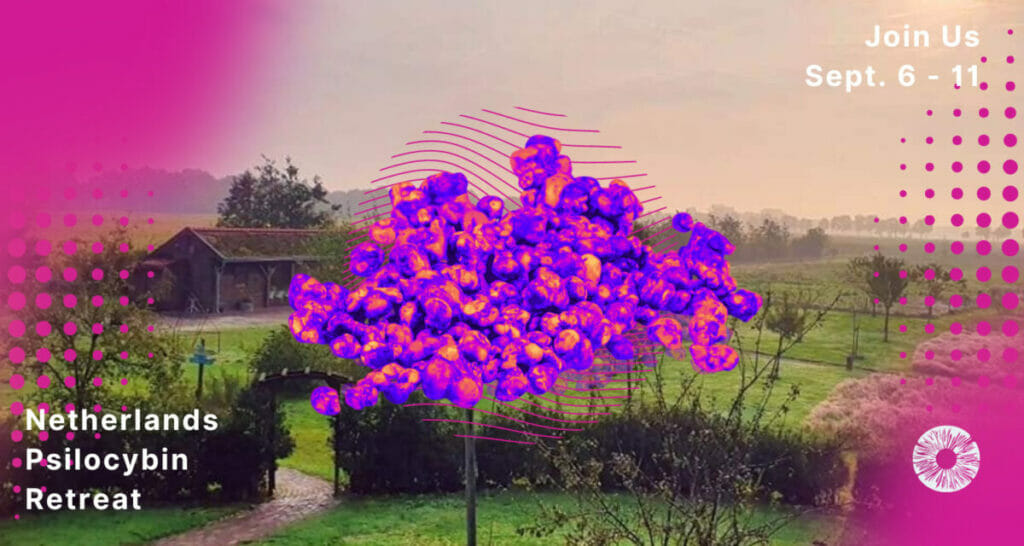
In this episode, Joe interviews one of the world’s leading experts on human performance: New York Times bestselling author and Executive Director of the Flow Research Collective, Steven Kotler.
Kotler’s work explores the neurobiology of peak human performance, flow states, and aging, and the concept of getting our biology to work for us rather than against us in our later years, by using the parts of our brains that expand in our 50s, combined with neuroplasticity, learning by play, and the biggest factor: working toward a very difficult – but not impossible – task. His 30-year exploration of the neurobiology behind people accomplishing ‘impossible’ feats led him to test his theories by teaching himself to park ski at 53 with resounding success, then using his protocol with people up to 70 years old the next season. The story is told in his newest book about challenging tired concepts of aging, Gnar Country.
He discusses the power of flow states and how much flow actually amplifies productivity, motivation, wisdom, empathy, and more; why dynamic motion is a key activity for greater longevity and why skiing and similar action sports are some of the best examples; why dynamic activity in novel environments is even better; why changing one’s mindset may be the biggest factor toward change; why corporations are looking at flow training and where these concepts could go in the future; and of course, how this all relates to psychedelics.
“If you study flow science, it turns out that flow is really great at helping us go from zero up to Superman. It’s also really great at helping us go from seriously subpar, ‘I’m completely broken and sick’ back to normal. And it turns out this combination is phenomenal in the second half of our lives. And flow sits at the heart of peak performance aging.”
“The only way I can go [from] A to B with this is to take everything I know about flow science and peak performance and see if I can use it to accomplish this so-called impossible task. So that’s what the book is. And yes, I was obviously very successful. I went 0 to 60, as I said, in a single season. It was the fastest I’ve ever actually learned anything.”
“The place you’ve got to begin is mindset. The mind-body connection gets tighter and tighter and tighter over time, and it plays a significant role in aging and peak performance aging. Mindset is the greatest example. …A positive mindset towards aging – ‘I am thrilled with the second half of my life; my best days are ahead of me’ – translates to an additional eight years of healthy longevity. It’s wild. …You could be morbidly obese and have a shitty mindset towards aging. Change your mindset, you’ll live longer. Don’t lose weight. Change your mindset. It’s more important. In fact, changing your mindset is more important than quitting smoking for healthy longevity.”
When the Impossible Happens: Adventures in Non-Ordinary Realities, by Stanislav Grof
The Structure of Scientific Revolutions, by Thomas S. Kuhn
When you realize that you’re not who you thought you were, the spiritual leader Ram Dass used to say, the path to enlightenment begins. This is also the beginning of the journey for LGBTQIA+ people.
In either case, self-realization can be prompted by psychedelics. But that transition is a scary one: whether it’s your ego or the gender and sexual orientation you were assigned at birth, it requires the death of the person you’ve known. Ultimately, you break through into a place of beauty, truth, and love. But there’s usually a period of kicking and screaming first, trying to hold on as the known slips through your fingers.
For queer and gender-diverse people, it often isn’t safe to express or connect with who we are, so we learn to suppress this knowledge even from ourselves. Denying one’s authenticity causes trauma that can manifest as depression, anxiety, and PTSD. But LGBTQIA+ researchers, therapists, users, and underground practitioners are finding that psychedelic therapy has immense potential to help their communities heal from internalized queer- and transphobia.
Lxo, a London-based artist and research curator experimented with various medicines in art school when their queer, trans*, and non-binary identities began to surface, deposited by a repressive, religious upbringing and persisting through more than five years of talk therapy.
“Then I did one [dose] of s-ketamine, and something burst forward from the past, like a memory bubble” they say. “I was able to forgive and heal… the version of me that was really crying out for help.”
For queer and gender-diverse people, there is no “post-trauma,” says Dr. Jae Sevelius, a clinical psychologist and Professor of Medical Psychology in the Department of Psychiatry at Columbia University Medical Center. Rather, it’s ongoing, and “It’s not just about experiencing violence, it’s about experiencing violence because of who you are.”
This has manifested in anti-trans legislation across the U.S., Colorado’s Club Q shooting, and Uganda’s horrific bill making homosexuality punishable by death; woven into the fabric of society in the form of hetero-, cis-, and mononormativity. In most places, even meeting the primal need of relieving yourself involves an act of self-denial.
Discovering who you really are should be a joyful revelation, but is still often met with violent opposition. Most suicide attempts occur within the first five years of realizing one’s sexual identity, irrespective of age; for many, this is during youth. More than half of U.S. trans and non-binary people age 13 – 24 considered killing themselves in 2020, while queer teens attempt suicide at a rate more than twice that of their straight peers.
Most mainstream therapies, however, treat trauma as an isolated incident. “[In the West,] we don’t have great approaches to offer people,” Sevelius says. “We have medicines that can treat the symptoms… but talk therapies for trauma… can be really challenging, [with] very high dropout and [low] success rates.”
What’s more, these frameworks aren’t built to support the queer experience. On the contrary, they’re often the very sources of the trauma they aim to treat. Homosexuality was still classified as a mental illness in the American Psychiatric Association’s (APA) Diagnostic and Statistical Manual of Mental Disorders (DSM) until 1973; being transgender, until 2012. These links persist today, with gender-diverse people being required to undergo psychiatric evaluation before receiving supportive healthcare—assuming this is even an option.
I’ve experienced this firsthand: celebrating diagnoses that pathologize your identity because it means you can actually get the care you need, reinforcing cognitive dissonance and negative self-beliefs. It breeds mistrust among queer and especially gender-diverse people, especially those with intersecting underrepresented identities, such as BIPOC and sex workers, who face additional systemic barriers and are most impacted by the drug war.
Patients often have to educate their therapists and doctors in culturally relevant care, emotional labor that can be life-threatening. Even worse, queer and gender-diverse communities have been subjected to so-called conversion therapy, inhumane “treatments” that try to turn people cisgendered and straight, still legal in many places. Methods of administration have included electroconvulsive therapy — and psychedelics.
In 1950s and ’60s France, gay teens who had been institutionalized for the double “offense” of being gay and out were forced to take megadoses of LSD — up to 1200MG, three times the recommended maximum — then left alone in a room to be observed. Even Ram Dass — before his awakening, when he was still called Richard Alpert, a clinical psychologist, professor, and founding member of the Harvard Psilocybin Project — joined the likes of Timothy Leary and Stanislav Grof in similar experiments.
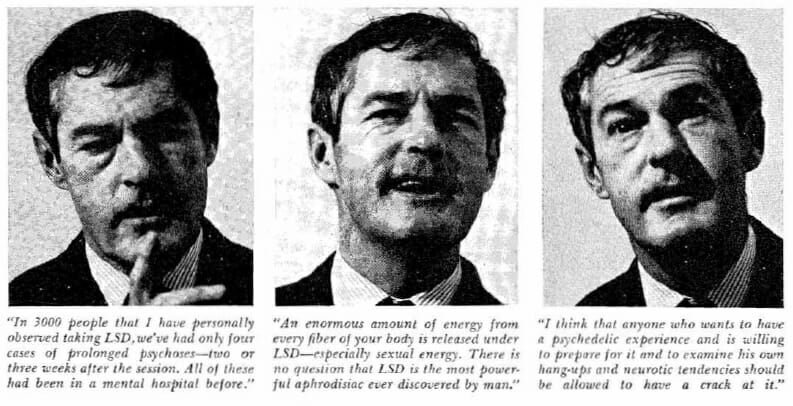
In 1968, a Playboy interviewer questioned Leary about reports of LSD bringing forth “latent homosexual impulses,” to which Leary called the drug a “cure” for such “sexual perversions.” This approach scared some people into living straight lives, but most reported “relapse.” Ram Dass himself came out in the 1990s, but rarely spoke publicly about this fundamental aspect of self, struggling his whole life with internalized shame.
The fact that substances known as truth agents could be used as tools of oppression speaks to the influence of set and setting – and, perhaps even more, of institutions like medicine, psychotherapy, and the university system, where outcomes must align with conclusions that satisfy funding sources.
Today, the barriers to both gender-affirming treatment and psychedelic healing remain immense. Part of the problem is that LGBTQIA+ people are underrepresented on both sides of psychedelic therapy and research, as well as the sciences more broadly, and largely feel unwelcome in all these arenas.
“We need to recognize that there are specific needs between different people within the community, and those needs arise from systemic failures,” says Alfredo Carpineti, a queer astrophysicist and founder of UK charity Pride in STEM.
Research both reflects and creates the world, as psychologist and Yale researcher Terence Ching and others have observed. Psychedelic clinical trials and research studies don’t even gather data on sexual orientation and gender identity, so there is no way to know how psychedelic therapy impacts LGBTQIA+ communities, yet the message this sends to them is clear.
Existing studies and trials are not designed to capture or accommodate queer experiences, typically using cis-het, male-female therapist dyads that are meant to mimic hetero-normative parenting frameworks. Additionally, therapists are not trained to handle complex gender and sexuality issues that may come up during sessions.
Misgendering or failing to affirm someone’s identity can be particularly wounding, Sevelius warns. Those designing studies need to ask who is training and recruiting the therapists, and where they’re recruiting participants. A study on MDMA therapy for gender-diverse populations that they contributed to found current protocols lacking, calling for explicitly gender-affirming treatment and safer, more inclusive settings.
“I get requests all the time from trans and gender-diverse people asking me how they can be included in clinical trials. And I have to say, I don’t feel comfortable referring people,” Sevelius says. “Psychedelics create a very vulnerable psychological state. When you don’t know whether the therapists are really competent to be working with our communities, it’s very likely someone will get re-traumatized.”
Psychedelic research also needs to more rigorously capture demographic data about sexual and gender identity, but most organizations don’t have the resources, Ching says. Still, it’s crucial to recruit and train more LGBTQIA+ researchers and therapists to support straight ones in building queer-inclusive clinical spaces.
“There are many ways to improve access,” Ching says. “Rethink your eligibility criteria [and] do more than put up fliers. Go to queer organizations, talk to people, … do a town hall. Tell them what PTSD is and actually get savvy with the fact that sexism, racism, homophobia, and transphobia can lead to it.”
Saoirse* spent five years in the military police, presenting masculine as a means of survival. Struggling with “decades of suppression and depression as well as PTSD from growing up in cis-het society and from the military,” she had already done a decade’s worth of talk therapy through the VA, cognitive processing therapy (CPT; a cognitive behavioral therapy for PTSD), and couples counseling. Then she participated in an ayahuasca ceremony.
“Having a safe space to explore my beingness… within a [sacred container and] Peruvian Amazonian lineage… was the key for me in discovering my true essence,” she says. “The masculine persona… dropped away. The other women gathered around me in a group hug, and I felt my true self seen, held, and celebrated for the first time.”
Talk-based approaches like cognitive behavioral therapy (CBT) are standard treatment for afflictions like addiction and post-traumatic stress disorder (PTSD), but these focus on managing present symptoms rather than targeting the trauma at its roots.
During his own MDMA therapy session, Ching was visited by otherworldly animal entities that helped him reconcile his queer and Asian-American identities, which he describes as “a profound experience of unshackling myself from the confines of internalized homophobia.”
Dee Adams, a research program manager at Johns Hopkins University who studies the impact of psychedelic therapy on gender-diverse people, says, “Psychedelics unlock[ed] those pieces of me that I… didn’t have the courage in mundane reality to approach or be aware of. I don’t know of any [other] medicines that can… be directly attributed to that initial ‘aha’ moment.”
Psilocybin and LSD have huge potential in triggering these insights, Sevelius says, as they’re known to break stuck patterns. MDMA is effective for identity-based trauma because it increases self-compassion and empathy, they add, and can improve gender resiliency when combined with affirming care. Along with a New York-based clinical partner, they’re also developing the first ketamine-assisted group therapy study created by and for trans and gender-diverse people.
Yet the relief goes beyond clinical symptoms. In her ayahuasca journeys, Saoirse connected with not only her own femininity but the feminine archetype, transmitted through the spirit of her mother, who was dying of a brain tumor.
“Spirit gifted me with an experience of the female pain body… and all the feminine has held for the masculine throughout the ages,” she says, including “the damage the masculine has done to itself… in committing violence. I was shown the breadth of our journey as souls through lifetimes and the beautiful and terrible dance of the human story.”
She also experienced reconciling with her mother’s spirit from her painful first coming-out, something antidepressants and talk therapy could never provide. “Healing does not occur in the mind,” Saoirse says. “Especially [when] healing core wounds with identity and gender identity, [it] takes place in the heart, … in belonging, and sacred witnessing of our stories, held in the eyes of love.”

We all need to be seen and loved exactly as we are; it’s a fundamental human need, second only to physical survival and safety. Constantly being disaffirmed by others can cause what Sevelius terms “identity threat,” manifesting in mental health issues, isolation, and substance overuse.
The cure is increasing affirmation while reducing reliance on external validation; psychedelic therapy, they explain, can do both. Affirmation comes from therapists and the sense of connection to larger, mystical forces; the medicines help people validate their own being.
But deconstructing and reconstructing your self-concept is a monumental task; often an entire life’s work. With any psychedelic journey, but especially for LGBTQIA+ users, support before, during, and after the session is essential. Shortcomings of the current clinical framework — not to mention the dubious legal status of most medicines — means many may be better-served by shamanic, Indigenous, and underground providers, something queer researchers confirm.
“Even as a scientist, I don’t necessarily always advocate that the clinical trial is better,” Ching says. “There are some ways of knowing, like gray literature [research published outside formal academic channels] or having your own personal experience, that might be more beneficial than reading it in a scientific journal.”
For Adams, the approaches go hand in hand. Psychotherapy and prescription medication might be additional tools people use for ongoing support after psychedelics bring them the initial realization.
Peer-support networks can be incredibly helpful, providing that essential component for healing: affirmation. Groups such as the Queer Psychedelic Society and Transadelic connect LGBTQIA+ people who use psychedelics through messaging platforms and integration circles. Many trans and gender-diverse people, in particular, find connecting with like-minded others crucial.
“There was a time when our culture was celebrating queerness, but [you had to be] a specific type of queer. I think people are still having and perpetuating that trauma,” says Transadelic member Casey*. “I don’t seek out queer spaces. But I’m really grateful for this one.”
For Saoirse, “hav[ing] my transition journey of self-discovery held… within a conscious spiritual community… has made all the difference for my self-acceptance, self-love, self-confidence, and my quality of life.”
The links between psychedelics, queer culture, and esotericism trace back to spiritual traditions and early LGBTQIA+ rights movements. In the 1960s and ’70s, groups such as the Cockettes and Radical Faeries challenged social norms and blurred counter-cultural boundaries, sprinkled with consciousness-expanding practices.
In fact, the Pride flag was conceived of during an acid trip in the era when the 60’s hippie culture began yielding to ’70s club culture, and queer people found community and catharsis on the dance floor using MDMA and LSD. The myriad colors reflecting off the mirrored disco ball inspired the flag’s late creator, Gilbert Baker, as a symbol that could replace the former logo, the upside-down pink triangle reclaimed from the Nazis.
Psychedelics have inherent queerness: interwoven into Indigenous societies with fluid conceptions of gender and sexuality; inverting expectations and challenging norms; releasing rigid patterns and making new connections, from found family to community care and long-neglected parts of yourself. One species of fungi has more than 23,000 distinct sexual identities; as mycologist Merlin Sheldrake observes, it helps scientists think beyond the binary, mirroring queer theory and reflecting the world in its crystalline multiplicity.
In the psychedelic state, “the dissolution of ego boundaries becomes the dissolution of binary categories,” Lxo observes, and integration “begins to connect and unify them, bringing all the various different energies, even seemingly binary ones like masculine and feminine, into a kind of relation.”
It’s crucial for the clinical establishment to understand that queer and transness isn’t something that needs to be cured — and tying treatment to disorders and diagnoses echoes of the pathologized past. Sevelius says the focus should be healing past wounds while building coping strategies for facing continual trauma. Meanwhile, Ching wants to see psychedelic therapy “targeted to identity-affirmation processes… fostering the wellbeing and actualization of queer folks.
“Psychedelics have the power to shift the way we see and experience the world, including ourselves, remembering who we were before a traumatized culture had its way with us. As Ching says, “I know I was born this way, but it took MDMA to show it to me, to accept the emotional truth, … and live my life according[ly].”
Editor’s note: Some names have been changed to protect the identity of the source.*
In this edition of Psychedelics Weekly, Joe and Kyle dedicate the entire episode to one of their biggest passions: breathwork and the power of breath in reaching non-ordinary states of consciousness.
What many listeners may not know is that Psychedelics Today was created because of the lack of attention being paid to breathwork, transpersonal psychology, and the work of Stanislav Grof, so this episode serves as a deep dive into all the facets of our fascinating ability to reach psychedelic states simply by breathing in specific ways.
They discuss the history of breathwork; the various methods (box breathing, alternate nostril breathing, rebirthing breathwork, the Wim Hof method, Holotropic and Transpersonal breathwork, etc.); early and most powerful experiences; why Joe recommends becoming familiar with breathwork before a first psychedelic experience; how a breathwork practice can help enhance psychedelic experiences; and one of the most amazing things about breathwork: that it can give people a sense of agency they may never have felt before – that they can produce these experiences and insights with nothing but their own bodies.
If you’ve been curious about breathwork, this episode is a great starting point to learn more. And if you’re in the Northeast and are ready to attend a breathwork retreat and experience four Transpersonal breathwork sessions (two as a breather, two as a sitter), there are spots available in our upcoming Vital retreat on July 28 in Pennsylvania. Click here for more details.
A Vital Journey: Transpersonal Breathwork Retreat in PA, July 28
A Vital Journey: Transpersonal Breathwork Retreat in Portugal this October
A Vital Journey: Transpersonal Breathwork Retreat in Costa Rica: January, 2024
Psychedelics Today: What is Breathwork?
Michellemahrerfilms.com: “Dances of Ecstasy”
Yogajournal.com: What is Pranayama?
Webmd.com: What Is Box Breathing?
Wilhelm Reich Museum: Research and Publications
Psychedelics Today: PT316 – Lenny Gibson, Ph.D. – Vital Psychedelic Conversations
Psychedelics Today: Lenny Gibson – Whitehead and Holotropic Breathwork
Breath: The New Science of a Lost Art, by James Nestor
Medicalnewstoday.com: What to know about tummo breathing
Verywellmind.com: What Is Somatic Experiencing Therapy?
The Tim Ferriss Show: Stan Grof, Lessons from ~4,500 LSD Sessions and Beyond (#347)
LSD Psychotherapy: The Healing Potential of Psychedelic Medicine, by Stanislav Grof, M.D.
Healthline.com: What is the Vagus Nerve?
Psychedelics Today: PT286 – Joe Tafur, MD – Vital Psychedelic Conversations
Check out the Lumenate app, and download it through the App store here!

In this episode, Joe interviews Erica Rex: award-winning journalist, past guest and writer, and participant in one of the first ever clinical trials using psilocybin to treat cancer-related depression; and Mona Sobhani, Ph.D.: cognitive neuroscientist and the author of Proof of Spiritual Phenomena: A Neuroscientist’s Discovery of the Ineffable Mysteries of the Universe.
As Rex discovered the power of psychedelics through a clinical trial, she discusses a huge problem she discovered: that researchers are not preparing participants enough for the ontological shock they may go through in trying to match unexplainable happenings to a rigid framework (or match the normal to a framework that has suddenly shifted) – that while patients have support at the clinic, it all disappears when they return to normal life. She believes that all too often, researchers are doing only what is necessary to be able to continue to receive funding, push drugs through the FDA, and prescribe a pill.
And as psychedelics changed Sobhani from very constrained scientific thinking to being very open to new ideas about consciousness and spirituality, she learned that many scientists had similar stories, and that coming out of the psychedelic closet is sometimes the best thing to do to normalize these ways of healing.
They discuss the challenges of newcomers trying to explain their experience without having the necessary language; how we still don’t truly understand mental illness; how the DSM just clusters symptoms to fit ‘disorders’ into a box; how society has started pathologizing anything we find unpleasant (which of course, is a part of being human); Gary Fisher’s research on using LSD and psilocybin for schizophrenic children, why science needs to combine consciousness research and psychedelics research, and more.
“I think most people (neuroscientists, a lot of psychologists): we don’t like labels. We don’t like the DSM (especially neuroscientists). It doesn’t make any sense; all you’re doing is clustering symptoms and calling it a disorder. It’s useful, but it’s not explanatory. …Everyone’s so focused on ‘What are the brain mechanisms?’ but we do need to pull out and [ask]: ‘What are the societal mechanisms? How is our society not supporting [us]? Why do we see such an increase in some of these disorders? It’s a really big question.” -Mona
“There was a big move to get grief made into a pathology that was defined in the DSM so it could be treated with a pill. Grief. This was during COVID. So now grief is a pathology and you can be diagnosed with ‘grieving disorder’ and treated for it. …Anything that does not serve the machine is now considered a disease and disorder and has to be fixed, which is unfortunate because it takes us away from every piece of authentic experience that we could ever possibly have. And that is dehumanizing, profoundly.” -Erica
“Our whole society’s not built around humanity, even though we talk a lot about humanity. But there’s no humane principles in business or in society. Nothing is built around what the human needs, and that’s why, even in psychiatry, you see [that] grief or these normal human needs are pathologized. …We’re just cutting off parts of ourselves and not catering to being a human because we hate being human so much, apparently. We hate the things that are inconvenient about it, that it’s like we just have to cut it off and block it off and go forward. But you can’t do that; then you have all these coping mechanisms that emerge and then all these disorders, because you’re not functioning in an environment that supports you being what you are.” -Mona
Psychedelics Today: PT273 – Erica Rex – Clinical Trials and Spontaneous Mystical Experiences
Madinamerica.com: Psychedelic Therapy Will Not Save Us, by Erica Rex
Scientificamerican.com: Hallucinogens Could Ease Existential Terror, by Erica Rex
Psychedelics Today: Could the Sonoran Desert Toad Cure Narcissism? by Erica Rex
Npr.org: The ’60s Are Gone, But Psychedelic Research Trip Continues
Brave New World of Psychedelic Science substack
Exploring Consciousness: A community of curious (neuro)scientists
Treatment of Childhood Schizophrenia Utilizing LSD and Psilocybin, by Gary Fisher, Ph.D.
The Center Cannot Hold: My Journey Through Madness, by Elyn R. Saks
The Myth of Normal: Trauma, Illness, and Healing in a Toxic Culture, by Gabor Maté with Daniel Maté
The Myth of Mental Illness: Foundations of a Theory of Personal Conduct, by Thomas S Szasz
In this episode, Joe interviews Ph.D. student in the Drug Use and Behavior Lab at the University of Alabama Birmingham, Haley Maria Dourron.
She talks mostly about the paper she co-authored last year with Dr. Peter Hendricks and Camilla Strauss: “Self-Entropic Broadening Theory: Toward a New Understanding of Self and Behavior Change Informed by Psychedelics and Psychosis,” which analyzes the long-standing comparisons between the psychedelic state and psychosis, and points out important distinctions between the two – that science should be looking more at the way one processes information and their level of self-focus rather than similarities in outward behavior. She discusses what she calls entropic processing, which is essentially how one’s brain creates novel ideas, relations, and insights based on very loosened mental schemas: with new information being considered in new ways (with no filter), do the connecting pathways that seem like eureka moments actually make sense?
She discusses the broaden and build theory and the broadening of intentional scope; entropy; chronic LSD use and risk of psychosis; schizophrenia and psychedelics; why science needs to embrace naturalistic research, and more. As of this release date, there are still a few participatory spots left in her current study on the effect of psychedelic experiences on people who have a history of psychosis, so if you had an episode of psychosis at some point and have gone on to use psychedelics, she wants to hear your story.
“It’s such a wide open space where there’s still so much room to learn. And to me, it feels as if we’re opening a time capsule of all these different questions that have been kind of covered up, and we now have better technologies to probe what’s really going on.”
“A lot of work was actually done in the 1950s, giving people with schizophrenia LSD, psilocybin, [or] DMT, [and] oftentimes, apparently they had a reduced response. So that just shows how much more room we have to learn what really could be happening with these drugs, what populations necessarily should be excluded, [and] who is actually likely to experience adverse responses.”
“The acute experience might kind of serve as a catalyst for people creating changes, but then it’s ultimately the changes that they make in their daily lives afterwards, and if they’re putting in the work of building those enduring resources, if you will. It might be [easier] to do so in the immediate afterglow of a psychedelic experience, but you’ve still got to try if you want those enduring effects.”
Scientificamerican.com: LSD May Chip Away at the Brain’s “Sense of Self” Network
Verywellmind.com: An Overview of Broaden and Build Theory
Psychedelics Today: PT245 – Robin Carhart-Harris – Psychedelics, Entropy, and Plasticity
Iflscience.com: LSD, DNA, PCR: The Strange Origins Of A Biology Revolution
The Myth of Mental Illness: Foundations of a Theory of Personal Conduct, by Thomas S. Szasz, M.D.
Psychedelics Today: PTSF59 – Bipolar and Psychedelics, with Benjamin Mudge
Investigating the Phenomenology and Perceived Mental Health Impact of Classic Psychedelic Experiences in People with a History of Psychosis (her new study – only a few spots left for participation)

In this episode of Vital Psychedelic Conversations, David interviews Vital instructor, Dr. Devon Christie: Senior Lead of Psychedelic Programs at Numinus, MAPS-certified MDMA therapist, and now four-time guest; and Vital student, Emefa Boamah: coach, facilitator, and trauma-informed intuitive guide specializing in embodiment.
We’ve all heard the trope, “It’s all in your mind,” but it’s also in your heart, soul, community, support system, and body – the focus of this episode. Christie and Boamah dive deep into the various aspects of the relationship between non-ordinary states and our bodies: ways to embody our bodies more; how the body is a fundamental source of truth; the benefit of checking in with one’s body after an experience (to validate or disprove what may have come up); the importance of movement and rest; the different bodies we inhabit (physical, emotional, energetic, mental, and spiritual); and ways to accept (and eventually love) our bodies in a society that’s always working to make us hate them – is self-love the ultimate act of defiance?
They also discuss the post-experience plasticity in everything, and the challenge of preparing an experiencer for something we can’t know; how facilitators and practitioners need to track their own subconscious feelings and reactions; the concept of embodied inquiry; the necessity of remaining curious and humble; and the idea of using integrative practices to find ways to become the person you want to be – the person you may have seen glimpses of in non-ordinary states.
And as this year’s edition comes to an end, Boamah reflects on her experiences with Vital, particularly the communal aspects of the retreat and how healing it was to literally be lifted up by her companions. If you’re curious about whether Vital is right for you, please come to an upcoming Q+A. Applications close March 26!
“Something happens with plant medicines (psychedelics (for me, with mushrooms)) that just takes you out of it and you see the inherent worth of who you are as a human, as a person. And integrating that process after coming out, I think, does a lot to help with self-love – not to say that cannot be attained without psychedelics, but it’s a different quality to it when you’re able to see yourself outside of yourself and see that you’re just valuable as you are.” -Emefa
“Not only are we fighting against us as human beings (like, whatever is happening internally), there’s also the societal expectations of how we ought to be. …There’s all these things where society is bent on making sure that we don’t feel comfortable in our bodies, so for me, from that lens, self-love is an act of reclamation. It’s like a defiant political act to reclaim who we are as people and spend that inherent worth without buying into what we’re being told to do, unapologetically – like, own it: ‘This is who we are and this is where we come from and we get to take space.’” -Emefa
“Those strongly reinforced habits: they restrict what we can attend to. They restrict our perception. So when they’re loosened under a psychedelic, we’ve got all these dimensions of experience that we can suddenly experience. That’s where, I think, not only in preparation, but in how we meet and attend to the emergent experience of people in psychedelic experiences, as practitioners, we need to be fluent ourselves in our own dimensions of experience of our being, so that we can meet and be curious and inquire and help that person to come to know themselves in all of that dimensionality, and then for their meaning to percolate up from that place.” -Devon
“The wisdom of ceremony, community ceremony, dance, music: that brings connection, that brings rhythm. And one nervous system by itself in the face of trauma is very vulnerable, many nervous systems together in the face of trauma: there’s resiliency. …Thankfully, in many ways, psychedelics help us to perceive this, and then in each person, perceive: ‘What’s the truth for me in this?’ and then we can try to live that.” -Devon
Psychedelics Today: PT306 – Dr. Devon Christie – Vital Psychedelic Conversations
Drdansiegel.com: An Introduction to Interpersonal Neurobiology
Pubmed: REBUS and the Anarchic Brain: Toward a Unified Model of the Brain Action of Psychedelics
Rest Is Resistance: A Manifesto, by Tricia Hersey
In this episode, Joe interviews Dr. Devon Christie: Senior Lead of Psychedelic Programs at Numinus, educator at CIIS and Vital, and MAPS-certified MDMA therapist; and Dr. Pamela Kryskow, MD: founding board member of the Psychedelic Association of Canada and Medical Lead of the nonprofit, Roots To Thrive.
Christie and Kryskow recently co-authored one of the first papers looking at MDMA for chronic pain, “MDMA-assisted therapy is associated with a reduction in chronic pain among people with post-traumatic stress disorder,” which came about after they received access to MAPS’ Phase 2 data from a lead-in PTSD study and noticed significant improvements in pain measurements – something the study was not looking for at all. They’re looking into where chronic pain fits within the frameworks of Western medicine and psychedelic-assisted therapy, and discuss the many reasons why MDMA should be tremendously helpful for chronic pain and other conditions that fall under the large umbrella of central sensitivity syndromes and nociplastic pain. They are currently working on a new study following the MAPS protocol that will research MDMA-assisted psychotherapy specifically for people with fibromyalgia, which some believe might be physicalized PTSD. If you’d like to contribute a tax-deductible donation, visit giving.viu.ca, select “other” from the dropdown, and type in “MDMA for Fibromyalgia.”
They talk about how research trials focus too much on the molecule while ignoring what the patient is saying; how a large percentage of physicians and patients don’t at all like the psychometrics used in measuring data; how physicians regularly use expectancy bias but research trials don’t (and how that affects results); why everyone needs to place higher importance on the biopsychosocial model; the idea of being more humble with science and using “theoretical” more often; the problems with microdosing trials; and the issues with evidence: If there isn’t sufficient evidence, why isn’t there? And what exactly would be sufficient?
“It’s kind of an irony because it’s really a single molecule pharmaceutical model to go: ‘Is it working?’ whereas every day, every clinician out there is using expectancy and placebo effect to their patients’ benefit. So, I would like us to have that conversation in a much more intelligent way, saying it’s going to be there, it’s not a bad thing, and in fact, if you don’t have that, you’re probably a bad clinician. So, let’s harness it, and then say, ‘and is the treatment [going] above and beyond that?’” -Pam
“Where’s the scientific curiosity? That’s what we need to be. When our patient says: ‘This is helping me,’ we should never be saying, ‘No, that’s not possible because there’s no evidence.’ We should be leaning in and being curious: ‘Tell me more.’” -Pam
“Homogenizing through trying to do the randomized control trials, you end up sort of sterilizing to isolate one specific variable in trying to make your study population as similar as possible. And in the real world, that’s just not the case. In the real world, people are on 10 different medications. So what’s really even the applicability when we sterilize and homogenize so much [for] what we believe is giving us the best evidence?” -Devon
“If we really look and open our eyes, in many, many circumstances, the pathology is not individual whatsoever. The pathology is in our culture and in our society and how disconnected we are and the intergenerational trauma that’s passed along, and then parents without support and no hope of not passing that along because our society isn’t providing the optimal environment on a societal level for us to be thriving. So I think a cure on an individual level needs to be couched within thinking about a cure on a collective level.” -Devon
“The reason I got involved even in the research is because so many of my patients were coming to me and saying, ‘I am microdosing. It is helping.’ So it goes back to: Do you believe people? And I personally believe my patients when they say that. …When I have people coming in and saying ‘I’m out of bed now. I used to lay in bed for 18 hours a day and now I’m out, I bought a dog, I’m exercising’; if it’s a placebo or expectancy, awesome. I’m going to celebrate that.” -Pam
Donate to the MDMA for Fibromyalgia study (select “other” from the dropdown, and type in “MDMA for Fibromyalgia.” (tax deductible and no fees)
Psychedelics Today: PT306 – Dr. Devon Christie – Vital Psychedelic Conversations
NYU Langone’s Department of Psychiatry: Center for Psychedelic Medicine
Imperial College London: Centre for Psychedelic Research
In this episode of Vital Psychedelic Conversations, Johanna takes the helm for the first time, hosting a conversation with Jungian analyst-in-training, writer, researcher, 5Rhythms® teacher, and Vital student: Mackenzie Amara; and clinical psychologist, long time PT collaborator, and Vital instructor: Dr. Ido Cohen.
As this episode features three huge fans of Jung (Johanna wrote her Master’s dissertation on The Red Book and teaches a course through PT), they focus less on education and the future of psychedelic therapy, and instead get pretty deep; shining a light on an integral part of psychedelia (and life) we often avoid: the shadow. What is the shadow and what is true shadow work? What did Jung give us, and why is Jungian psychology so relevant for integrating psychedelic experiences?
They discuss the notion of the unconscious as a place you can develop a relationship with and access by very different means; the idea of the healer as the container; the problematic binary of good vs. evil; the flawed concept of ego death; the differences between authentic and neurotic suffering and personal and collective consciousness; the archetype of the wounded healer and why facilitators should both be wounded and in the process of healing; and how wonderful it is that society is beginning to embrace the weird and what makes us unique.
There are no shortcuts in life and there is no “cure” for the parts of the human condition we aren’t comfortable with, but in the capitalist, efficiency-above-all-else West, we aren’t raised to sit with the unpleasant, and instead learn to seek a quick fix, which has created an environment where we’ve lost the ability to feel in the ways that we need to. Can you be with someone else’s pain if you’re running from your own? Can you have real compassion if you’ve never suffered? Can you be complete without knowing your shadow?
“Yes, we’re all suffering and suffering is scary and shadow is scary and it can overwhelm us and it takes time. And there is this thing where we can build a relationship with it. It’s all about the relationship.” -Ido
“Nature is a perfect representation of how the unconscious is. It’s unfinished. It’s in process. It’s not perfect. It’s human consciousness, and [it’s] our egoic, persona-driven striving that have us believe that we can be perfect, AKA not human, AKA have no shadow. So the shadow is this part of the unconscious; it’s the frills, it’s the weirdness, it’s the awkward pauses, it’s the burps and the disgusting stuff and the repulsion, and also the quirks, the idiosyncrasies. In Swiss German, they talk about a square that’s missing a corner – it’s the missing corner. You need to have a piece missing so that life can live there.” -Mackenzie
“There is no ego death. You can have ego disidentification, you can release the center of your consciousness from your ego, but you will never kill your ego, and you shouldn’t want to kill your ego. If you’re going to kill your ego, who’s going to be home to integrate? Where are you going to take all these beautiful experiences? Who’s going to synthesize them and alchemize them for you? …That is a way in which we’re banishing the feminine, which is process, which is yes, being in my body and suffering, because there is also so much beauty in suffering, because if you can’t be in your body to suffer, you’re not going to be in your body and experience love. They work together.” -Ido
“Psychedelics are the opportunity to get outside of oneself far enough that then I can come back and say: ‘Do I consciously want to choose to continue to be the way that I’ve seen that I am, or do I want to use my power, my influence over myself to make different choices?’” -Mackenzie
PT308 – Dr. Ido Cohen, PsyD – Vital Psychedelic Conversations
PTSF79 – Psychedelic Facilitator Abuse and Space Holding Ethics with Dr. Ido Cohen
Psychedelics Today: Ido Cohen – Re-Turn to Wholeness: Jung and Integration
Psychedelics and The Shadow: The Shadow Side of Psychedelia
Doubleblindmag.com: How to Become a Psychedelic Integration Therapist
Azquotes.com: Marion Woodman Quotes
In this episode, Kyle interviews researcher, speaker, writer, competitive freediver, and one of the world’s leading experts on 5-MeO-DMT: Dr. Malin Vedøy Uthaug.
As a society, we mostly live in our minds, emotionally constipated while surprisingly disconnected from our bodies, with basic human needs that are all too often not met. Uthaug and Kyle talk about what manifests when those needs aren’t fulfilled, the strength of one’s inner mind state to change perspective, and how powerful true catharsis and embracing grief can be. And they talk about somatics: why we don’t focus on the body more, and how we could embody experiences with non-ordinary states of consciousness to better connect to our inner world.
She discusses the impact (or non-impact) of following a strict dieta before a big experience; preparing for an experience with physical exercise (even right before the ceremony); freediving; the challenge of therapists/facilitators sitting with someone through strong catharsis; the popcorn theory; the guilt people feel from experiencing love and bliss; and the paralysis-by-analysis problem of not making the connection between insight and action.
“What I’ve seen throughout all these years working in the field is that there is at least very commonly this notion that the psychedelic is going to heal them; they don’t have to do any other work – just popping that tab of psilocybin or smoking that pipe of 5-MeO is going to result in change. And that expectation is a bit dangerous, I think. They might not get the help that they are seeking because they’re placing that help externally to them. …Healing is actually hard work. It’s not something that happens overnight. It’s the tiny little steps of change accumulated that creates a bigger change. It’s changing your tiny, tiny habits until it changes your life.”
“You can realize a bunch of things, but if you’re not doing anything, nothing is actually going to change. It might feel like it changes because you have felt it in your brain or you’ve seen it or have this insight, but that needs to be translated actively into your life.”
“I think putting the body back into the equation is the way forward, however that might look.”
Psychedelics Today: Dr. Malin Vedøy Uthaug – Ayahuasca and 5-MeO-DMT Research
Psychedelics Today: Malin Vedøy Uthaug – Exploring Ayahuasca Ceremonies and 5-MeO-DMT
Link.springer.com: Sigmund Freud’s Use of Catharsis and Cognition
The Smell of Rain on Dust: Grief and Praise, by Martín Prechtel
NeuroDynamic Breathwork online
Psychedeliceducationcenter.com: DMTx Psychonaut Training Webinar
Johnheron-archive.co.uk: Catharsis in human development
Traumatized.com: Peter Levine – Somatic Experiencing
Your Golden Shadow: Discovering and Fulfilling Your Undeveloped Self, by William A. Miller
In this episode, Kyle interviews psychologist, psychotherapist, author, and certified Holotropic Breathwork® facilitator: Marc Aixalà.
Aixalà is part of the International Center for Ethnobotanical Education, Research and Service (ICEERS), offering integration psychotherapy sessions, developing theoretical models of intervention, and training and supervising therapists. He is also the writer of the recently released, Psychedelic Integration: Psychotherapy for Non-Ordinary States of Consciousness, of which you can win a copy by entering our giveaway here!
Aixalà wrote the book after receiving more and more emails from people asking for guidance on how they were supposed to process a recent experience, and he realized that so much was unknown around the concept of integration: What exactly does it entail? Has the psychedelic space created a narrative that you need integration when maybe you don’t? When is the work considered integration and when is it psychotherapy?
He talks about some of the metaphors he uses to explain integration; the seven scenarios he typically sees in people seeking integration (and how to respond to each); philosophical constructivism and the importance of working with someone within their preferred cosmology; how the psychedelic hype has created a marketplace full of competition (and why that could be bad); and why he thinks being trained in Holotropic Breathwork is perhaps more important than being trained in facilitating a psychedelic experience.
“One of the things that psychedelics show us (or for me, the main thing) is that somehow, healing is inside of us and growth is inside of us, and they teach us accountability, they teach responsibility, and they teach us that we are the expert of ourselves – that our journey does not depend on an external person. So in my way of practicing integration, I also want to honor that, and do integration when it’s needed, but not create an additional need for people that don’t have it.”
“I think that that’s the richness and the beauty of psychedelics and the psychedelic experience, is that it cannot be understood from just one prism. No, it’s a trans-disciplinary approach that will give us a more subtle understanding of different dimensions included. I don’t think that there’s one way that is better than the other of using psychedelics, [just] as I don’t think that there’s one Shamanic tradition that is better than another Shamanic tradition. Things are there for a reason and we find what resonates more with us.”
“I believe that breathwork can be more effective than psychedelics to deal with certain emotions; things like anger, rage. The body and the somatic part of a traumatic event; that has worked very well with breathwork in my opinion – better than with other substances because it provides some sort of mental clarity that is not distorted by the archetypal aspects of psychedelics.”
Psychedelic Integration: Psychotherapy for Non-Ordinary States of Consciousness, by Marc B. Aixalà
Win a copy of Psychedelic Integration here!
Psychedelics Today: PT368 – Ketamine, Group Work, and the Power of Just Being There
Wikipedia.org: Constructivism (philosophy of education)
Psychedelics Today: PT316 – Lenny Gibson, Ph.D. – Vital Psychedelic Conversations
In this episode, David interviews Dr. Ben Medrano: Co-Medical Director with Nue Life, board-certified psychiatrist specializing in integrative psychiatry, and former Senior Vice President and US Medical Director of Field Trip Health.
He discusses his path to Nue Life; from growing up around mental illness, to the rave scene, to Buddhism, to his years working for the underserved in an East Harlem Assertive Community Treatment, and his biggest takeaway from that time: that the healthcare system he knew was not truly helping people. He talks about stigmatization (of some modalities like electro-shock treatment, of psychedelics, and of ketamine – which seems to be stigmatized even within the psychedelic space); his concerns that the at-home ketamine model is at risk as we make our way out of the pandemic; and how at-home ketamine can drastically reduce the cost of treatment.
Medrano tells a great story of a patient who saw incredible improvements through ketamine, and discusses some Nue Life highlights: their just-released 664 participant-study in Frontiers Psychiatry showing the safety of at-home ketamine (and that at-home is just as effective as other routes of administration); Nue Care, their model for aftercare using digital phenotyping, goals, and a scoring system (which he believes could be the new model for integrative psychiatry); and their Nue Network, which could be a solution for better education on ketamine and for granting access for patients through prescribers who typically don’t understand much about its efficacy.
“All the different interests, personalities, visions, [and] goals that are in this sort of circus of psychedelic commercialism is very necessary to understand. And for me, I think the biggest takeaway is that there is one thing that binds everybody who’s involved, and that is hope, really. I think there’s a lot of hope in this sphere.”
“The hazards of a benzodiazepine are well known, and to some extent, one might even argue that with some of these DEA-regulated substances that we do ship at home; that if we’re going to say that we need to subject ketamine to a higher standard, then we need to do it for the rest of these DEA-regulated substances, because they have very hazardous risk profiles. …I can’t help but think that there’s a little bit of …stigma [around] what it is that we’re doing.”
[On an at-home ketamine patient’s success]: “He is able to get out of the house every day and enjoy the sunshine, and the way he views his trauma is at a level that I think all of us would aspire to: really, as something that has sort of made him into the man that he is today, with something really unique and powerful to offer as a human to others – rather than as a wound.”
Psychedelics Today: Free Webinar – NueLife: Empowering Patients with At-Home Ketamine Therapy
Wikipedia.org: Assertive community treatment
Legitscript.com: A Post-Pandemic Ryan Haight Act May Create Uncertainty for Telemedicine
Nue.life: Nue Life Publishes First Peer-Reviewed Study in Frontiers in Psychiatry
In this episode of the podcast, Joe interviews Licensed Chemical Dependency Counselor and Holotropic Breathwork® facilitator, Christine Calvert.
At age 19, Calvert left Los Angeles and found her way to breathwork, spending four years in Grof Transpersonal Training. She quickly discovered that the technique served as a gateway back home to herself – her sacred self. Together, Christine and Joe cut through the many layers of the holotropic paradigm and transpersonal experiences, discussing how willingness for accountability & repair in facilitation are more important than perfection; the role of touch in breathwork sessions and the potential harm in not providing it; how amplification over suppression of symptoms in breathwork can heal; and how doing less as a facilitator can actually do more.
She also talks about the inner healing intelligence we all possess; how celestial nostalgia leads to mystical yearning; the ethics of spaceholding; the excitement and terror in expanded states of consciousness; saying yes to the entire archetypal pool; how Grof was (and still is) decades ahead of psychology; and what it means to die to ourselves.
“There [were], I don’t know, 175 people there. So that was my first big group breathwork. I was sitting first and I remember just looking out at the room which was just absolute pandemonium. It was like the display of the full human experience. I remember just crying because I was both totally intrigued and excited – like ‘Finally, I’ve arrived’ – and then I was also just incredibly terrified. I feel like that’s an interesting and kind of truthful reflection of how expanded state work is for a lot of people. There’s this part of me that feels home and also maybe a little healthy resistance to knowing what that also means for me.”
“One of the greatest gifts we can do for someone is to trust that what is happening for them is exactly what is needing to come through for their healing and that there’s nothing that we necessarily need to do in order to manage that.”
“I can’t imagine that continuing to just treat symptoms and see everything through a pathological lens is really all that fulfilling. Also we’re just the doers in that world. And as much as I think our ego wants that, behind that is always the desire to be a part of something that’s actually truly healing, and to know that we’ve empowered somebody to heal themselves. This is one of the things I love so much about the holotropic paradigm; is that it is about radical self-empowerment.”
“I think we have to stop being afraid to just be vulnerable. We have to stop being afraid of our humanity. As facilitators, as practitioners, as spaceholders, as participants in medicine and breathwork – this is what we have to really be willing to share. …When we’re willing to sort of knock ourselves off the saint pedestal as facilitators and spaceholders, I think then we might be able to hold this.”
Holotropic.com: Grof Transpersonal Training
The Ethics of Caring: Finding Right Relationship With Clients, by Kylea Taylor
Exploring Holotropic Breathwork, Edited by Kylea Taylor
 Christine Calvert is a teacher and module facilitator for Grof Transpersonal Training and a Licensed Chemical Dependency Counselor. In addition to bringing Holotropic Breathwork® and other experiential workshops to mental health and addiction facilities, she is passionate about the ethics and integrity needed in facilitating expanded-state work; supporting the integration of Holotropic and psychedelic sessions through somatic resourcing; and creative expression, personal ritual, and group support. Her own personal healing journey was greatly influenced by the Holotropic perspective and she feels deeply dedicated to sharing this work with those seeking healing. She enjoys finding ways to weave her personal and professional experience of different therapeutic and spiritual systems such as Shamanism, Somatic Experiencing, Jungian psychology, attachment theory, and mindfulness practices into her work with others. Christine is currently studying to become a Naturopathic Doctor and maintains a private counseling and consulting practice in addition to facilitating Holotropic Breathwork® nationally.
Christine Calvert is a teacher and module facilitator for Grof Transpersonal Training and a Licensed Chemical Dependency Counselor. In addition to bringing Holotropic Breathwork® and other experiential workshops to mental health and addiction facilities, she is passionate about the ethics and integrity needed in facilitating expanded-state work; supporting the integration of Holotropic and psychedelic sessions through somatic resourcing; and creative expression, personal ritual, and group support. Her own personal healing journey was greatly influenced by the Holotropic perspective and she feels deeply dedicated to sharing this work with those seeking healing. She enjoys finding ways to weave her personal and professional experience of different therapeutic and spiritual systems such as Shamanism, Somatic Experiencing, Jungian psychology, attachment theory, and mindfulness practices into her work with others. Christine is currently studying to become a Naturopathic Doctor and maintains a private counseling and consulting practice in addition to facilitating Holotropic Breathwork® nationally.



In this episode of Vital Psychedelic Conversations, Kyle interviews clinical psychologist and integration facilitator (and now 3-time guest), Dr. Ido Cohen.
The topic of integration sits center stage for this discussion, as the two peel back all the nitty gritty and nuance of this psychedelic cornerstone, breaking down why integration is so important, where it stands currently, and where it needs to go as psychedelic-assisted therapy grows. They discuss the importance of taking it slow when it comes to exploration of these non-ordinary states – something that can be so difficult for us in our fast-tracked, clock-watching, Western culture, where it’s quite common for people to get blasted into inner-space on a Saturday, be shaken and perplexed by the experience on Sunday, and then have to go back to work and act like it never happened by Monday.
He discusses the value that both individual and group integration holds; what happens when you sit in groups of the same people over time; why Carl Jung never tried psychedelics; and the importance of tolerance, trust, and critical thinking when processing peak experiences.
And he raises some important questions like: What does long-term care in psychedelic-assisted therapy look like? What frameworks can be experimented with and implemented now to offer real movement from peak experiences to sustainable change? What is that bridge between peak experience and long-lasting change which allows us to become the insight? Is every insight true? Where does trauma work fit into this treatment? And what is the difference between symptom reduction and real healing?
“My mission has been: what does that bridge [look like] between experience and the steps that we have to take to really integrate in a deep embodied way to move from, ‘Oh, I can become this thing’ or ‘I have this insight’ to becoming the insight or becoming the thing?”
“I always use this catchphrase because I don’t like it, but it sells the psychedelic science: ten years of therapy in one session. I always say if you get ten years of therapy in one psychedelic session, then you had really bad therapy.”
“The psyche has an organic life. It opens up in the way it opens up. You can bathe yourself in ayahuasca and eat fifty grams of mushrooms per week [but] there are certain processes you can’t rush.”
“It’s funny how when we slow down, things become clearer faster.”
Psychedelics Today: Ido Cohen – Re-Turn to Wholeness: Jung and Integration
Psychedelics Today: PT271 – Jeremy Narby, Ph.D. – Anthropology, Ayahuasca, and Plant Teachers
Psychedelics Today: Katherine MacLean – Imagining Interesting Future
Psychedelics Today: PT305 – Emma Farrell – Plant Spirits, Entities, and Remembering Lost Traditions
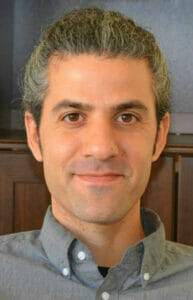 Dr. Ido Cohen, Psy.D, serves individuals, couples, and groups in San Francisco. As part of his practice, Ido works with a diverse range of challenges – childhood trauma, inner critic, relational issues, as well as integration and preparation sessions with individuals and groups. His doctoral dissertation was a 6-year study of the integration process of Ayahuasca ceremonies, while applying Jungian psychology to better understand how to support individuals in their process of change and transformation. He is also the founder of The Integration Circle and facilitates workshops on the different dimensions of integration and the intersection of mental health, spiritual health, and the entheogenic experience. Ido is passionate in supporting individuals to create longterm, sustainable change leading to vibrant, authentic, expressive, and love-filled lives.
Dr. Ido Cohen, Psy.D, serves individuals, couples, and groups in San Francisco. As part of his practice, Ido works with a diverse range of challenges – childhood trauma, inner critic, relational issues, as well as integration and preparation sessions with individuals and groups. His doctoral dissertation was a 6-year study of the integration process of Ayahuasca ceremonies, while applying Jungian psychology to better understand how to support individuals in their process of change and transformation. He is also the founder of The Integration Circle and facilitates workshops on the different dimensions of integration and the intersection of mental health, spiritual health, and the entheogenic experience. Ido is passionate in supporting individuals to create longterm, sustainable change leading to vibrant, authentic, expressive, and love-filled lives.
Socials: Instagram / The Integration Circle Instagram



In this episode of the podcast, Joe and Kyle finally sit down with one of their all-time heroes: Stanislav Grof, MD, Ph.D., who joins them with his wife and collaborator (and co-creator of Grof® Legacy Training), Brigitte Grof, MA.
If you’re a fan of Psychedelics Today, you know that one of the major reasons Joe and Kyle met and decided to start this whole thing up was due to a mutual admiration for Grof’s work and a strong desire to spread it through the world of psychedelia. Due to Stan’s stroke a few years ago, we haven’t been able to have him on, but he has recovered enough to grace us with an appearance.
Stan and Brigitte talk about his stroke and recovery; developments in his concept of birth perinatal matrices; how they see breathwork evolving; how we get to the psychology of the future; the inner healing intelligence; and the need for more practitioners to have more training in non-ordinary states of consciousness. Stan also tells stories of how he discovered the power of breathwork and bodywork, and a funny story about missing a huge event at Harvard to instead relearn how to say “monkeys eat bananas.”
While the stroke set Stan back a bit in terms of speech, “the problem is in the cables, not the content,” as Brigitte says, and that is evident – as is Stan’s refreshing and humbling self-awareness and ability to laugh at his struggles. And what’s even more evident is the love between the two of them and how much Brigitte has helped him through this difficult time, and continues to help keep his knowledge in the forefront of this psychedelic renaissance (as we’re trying to do).
“This was the only situation where I could see what LSD is actually about, because once you get beyond the matrices, there is no real material substrate for the images. It’s basically just consciousness, and the question is how far the consciousness goes further back.” -Stan
“I believe that if psychiatry goes in the right direction (not where it is going now) that it ultimately should be done with non-ordinary states of consciousness (not necessarily just psychedelics; it could be breathwork or it could be working with people who have spontaneous experiences, spiritual emergency and so-on), …because some of the deeper sources; they are not reached with verbal talking and just suppressing symptoms. It’s very bad psychiatry. So I believe, if it [goes] in the right direction, that it’s going to be [working] with non-ordinary states of consciousness.” -Stan
“I find something that is absolutely essential for breathwork …is that the psyche has the intelligence.” -Stan
“The processes are similar. …Certainly with psychedelics, it’s more visual and it’s longer, but what you could see is anything you can see in breathwork. So if you learn how to deal with this by breathwork training, …it’s an easy step to be a psychedelic sitter or starting to do psychedelics yourself. …When you know how to deal with breathwork and bodywork and everything, then you can deal with psychedelic sessions. It’s a very short, small step to move over to that area.” -Brigitte
“People can become artists who haven’t been before. It can awaken these abilities, or healing qualities, or people can maybe get some psychic experiences, or just become yourself more, whoever you are or whoever you’re supposed to be. I think that’s what it’s about.” -Brigitte
The Way of the Psychonaut: Encyclopedia for Inner Journeys (Volume One), by Stanislav Grof, M.D., Ph.D. (Volume Two)
Buy Psyche Unbound: Essays in Honor of Stanislav Grof here!
The Tim Ferriss Show: Stan Grof (#347) (transcription and audio)
Psychology of the Future, by Stanislav Grof
The Anatomy of Human Destructiveness, by Erich Fromm
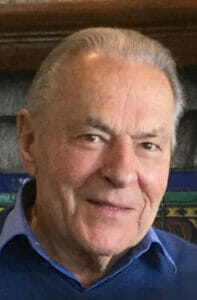 Stanislav Grof, MD, Ph.D., is a psychiatrist with more than sixty years of experience in research of non-ordinary states of consciousness. In the past, he was Chief of Psychiatric Research at the Maryland Psychiatric Research Center, Assistant Professor of Psychiatry at the Johns Hopkins University in Baltimore, and Scholar-in-Residence at the Esalen Institute in Big Sur, CA. Currently, he is Professor of Psychology at the California Institute of Integral Studies (CIIS) in San Francisco, CA. In August 2019, his life’s work encyclopedia, The Way of the Psychonaut, was published, and the documentary film about his life and work was published as well: “The Way of the Psychonaut- Stan Grof and the journey of consciousness.”
Stanislav Grof, MD, Ph.D., is a psychiatrist with more than sixty years of experience in research of non-ordinary states of consciousness. In the past, he was Chief of Psychiatric Research at the Maryland Psychiatric Research Center, Assistant Professor of Psychiatry at the Johns Hopkins University in Baltimore, and Scholar-in-Residence at the Esalen Institute in Big Sur, CA. Currently, he is Professor of Psychology at the California Institute of Integral Studies (CIIS) in San Francisco, CA. In August 2019, his life’s work encyclopedia, The Way of the Psychonaut, was published, and the documentary film about his life and work was published as well: “The Way of the Psychonaut- Stan Grof and the journey of consciousness.”
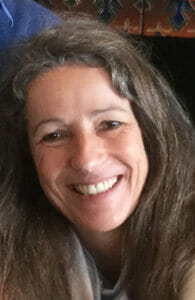 Brigitte Grof, MA, is a psychologist, licensed psychotherapist, and artist with 35 years of experience in holotropic breathwork. She was certified in the first Grof training groups in USA and Switzerland. She has led breathwork workshops and taught training modules in the US and in Germany. Currently she works in her private practice in Wiesbaden, Germany, and leads workshops and retreats.
Brigitte Grof, MA, is a psychologist, licensed psychotherapist, and artist with 35 years of experience in holotropic breathwork. She was certified in the first Grof training groups in USA and Switzerland. She has led breathwork workshops and taught training modules in the US and in Germany. Currently she works in her private practice in Wiesbaden, Germany, and leads workshops and retreats.
Since April 2016, Stan and Brigitte Grof are happily married, live in Germany and California, and conduct seminars, trainings and holotropic breathwork workshops worldwide. In May 2020, they launched their new training in working with Holotropic States of Consciousness, the international Grof® Legacy Training (www.grof-legacy-training.com).
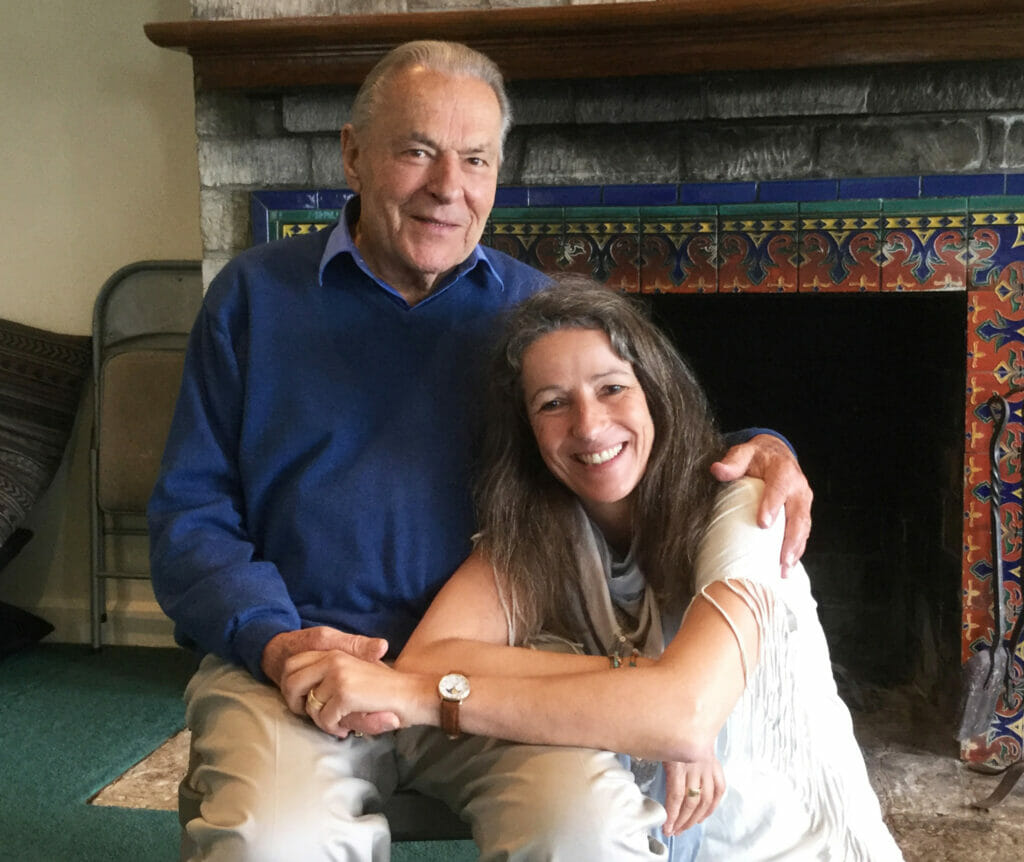



In this episode of the podcast, Joe interviews two authors and professors at the Philosophy, Cosmology, and Consciousness program at the California Institute of Integral Studies in San Francisco: Rick Tarnas and Sean Kelly, Ph.D.
While this is the first PT appearance for Tarnas – a huge name in the archetypal astrology field (and referenced often in our monthly Cosmic Weather Report series) – this episode is not focused on his work, but instead on the new book he and Kelly co-edited: Psyche Unbound: Essays in Honor of Stanislav Grof, which is a collection of 22 essays from the last 50 years about Grof and the impact of his work (a festschrift of sorts). The book features pieces from legends of the past like Joseph Campbell and Huston Smith, and big names in the field today like Michael Mithoefer and Fritjof Capra. It’s quite a beautiful book, and thanks to Synergetic Press, we’re actually giving away five copies signed by Stan Grof himself (click here!).
Tarnas and Kelly discuss what led to this project happening; why Grof’s work is so important; how Grof connected classic ideas with previously unthinkable concepts and realities; what the over-simplified term, “ego death” really means; and talk about their concern that standardized research is often leaving out the very integral spiritual dimension. They also discuss a different way of viewing the concept of “hanging up the phone,” and Kelly tells the story of a very powerful early psychedelic experience.
“What [Stan] found was that it was often the challenging experiences – the really difficult ones, the ones where one is encountering not only problematic or traumatic psychological issues, complexes, traumas from early life, etc. – it was bringing these up from the deep unconscious where they’re lodged in our body and in our psyche, and bringing them to consciousness and working them through, releasing them, releasing the emotions and the physical responses that have been bottled up in the psychophysical organism for decades. And that that was the very means by which a psychospiritual transformation could open up, and that one could thereby have both a healing experience and a deeper mystical experience of life.” -Rick
“She brought me outside and sat beside me as I lay in the snow for about three hours and was just with me. And that transformed what had been a kind of Hellscape where I was trapped in this world of mirrors (a ‘no exit’ situation) into one of just floating on this sea – a nourishing, milk-white snow ocean. But it wouldn’t have happened unless this compassionate being was willing just to sit with me and hold my hand.” -Sean
“Stan’s attitude has been one of trusting whatever is coming up, whether it’s a difficult experience or a positive one. The positive ones can often serve as a kind of grounding and awareness that you can keep in the back of your mind, that when a difficult experience starts coming up, this higher unity is still waiting for you in some way. You can trust that the hard experience is not the only game in town.” -Rick
“If the humanities are colonized entirely by the methodological imperatives and constraints of the natural sciences, we’re essentially blocking out much of what it is to be a human being.” -Rick
Buy Psyche Unbound: Essays in Honor of Stanislav Grof here!
Cosmos and Psyche: Intimations of a New World View, by Richard Tarnas
YouTube: CITY LIGHTS LIVE! Psyche Unbound- Session One (Session Two) (Three)
Becoming Gaia: On the Threshold of Planetary Initiation, by Sean Kelly
LSD and the Mind of the Universe: Diamonds from Heaven, by Christopher M. Bache, Ph.D.
Richard Tarnas is a professor of psychology and cultural history at the California Institute of Integral Studies in San Francisco, where he founded the graduate program in Philosophy, Cosmology, and Consciousness. He teaches courses in the history of ideas, archetypal cosmology, depth psychology, and religious evolution. He frequently lectures on archetypal studies and depth psychology at Pacifica Graduate Institute in Santa Barbara, and was formerly the director of programs and education at Esalen Institute in Big Sur, California. He is the author of The Passion of the Western Mind, a history of the Western world view from the ancient Greek to the postmodern that is widely used in universities. His second book, Cosmos and Psyche, received the Book of the Year Prize from the Scientific and Medical Network, and is the basis for the documentary series, “The Changing of the Gods.” He is a past president of the International Transpersonal Association and served on the Board of Governors for the C. G. Jung Institute of San Francisco.

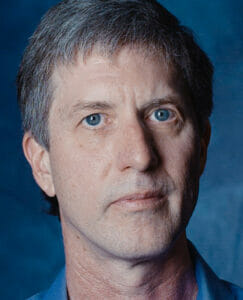 Sean Kelly, co-editor of Psyche Unbound, is professor of Philosophy, Cosmology, and Consciousness at the California Institute of Integral Studies (CIIS). He is the author of Becoming Gaia: On the Threshold of Planetary Initiation and of Coming Home: The Birth and Transformation of the Planetary Era. He is also co-editor of Ken Wilber in Dialogue: Conversations with Leading Transpersonal Thinkers and co-editor of The Variety of Integral Ecologies: Nature, Culture, and Knowledge in the Planetary Era. Along with his academic work, Sean teaches taiji and is a facilitator of the group process, Work That Reconnects network, developed by Joanna Macy.
Sean Kelly, co-editor of Psyche Unbound, is professor of Philosophy, Cosmology, and Consciousness at the California Institute of Integral Studies (CIIS). He is the author of Becoming Gaia: On the Threshold of Planetary Initiation and of Coming Home: The Birth and Transformation of the Planetary Era. He is also co-editor of Ken Wilber in Dialogue: Conversations with Leading Transpersonal Thinkers and co-editor of The Variety of Integral Ecologies: Nature, Culture, and Knowledge in the Planetary Era. Along with his academic work, Sean teaches taiji and is a facilitator of the group process, Work That Reconnects network, developed by Joanna Macy.



In this week’s Solidarity Fridays episode, we’re back to the old school crew of Joe and Kyle again, this time with no news but plenty of conversation.
They first talk about the origin of Psychedelics Today and the first version of Navigating Psychedelics: how they found themselves wanting more and more to talk about transpersonal experiences and realizing they were living in a culture where professors didn’t want to talk about any kind of depth work, nobody at conferences seemed to know much about Stan Grof or Holotropic Breathwork, the drug war was raging on, and even Rick Strassman was telling Kyle that science doesn’t want to hear about the transpersonal.
From there, they discuss a lot more: How the limitations of humanistic psychology led to the creation of transpersonal psychology, what the term “transpersonal” entails, how different ecosystems demand different rules, the concept of negentropy, William James, the logistics of reincarnation, why it’s wrong to dismiss archetypal astrology, the idea of healing as a side effect of exploration, and the difficulty of creating a training manual for something as relational and process-oriented as Holotropic Breathwork or psychedelic therapy.
And they talk about their goals with Psychedelics Today: Learn to work with the nuance and wild complexity that lives in all parts of this psychedelic renaissance, take small steps to achieve small goals, remember to live passionately and not fall into a capitalistic rat race, and most importantly; to do their best to work together with everyone else in this space to make this more of a community.
“Thinking about psychedelics in general and psychedelic therapy, do we create these highly detailed protocols around the therapy, or do we understand the art of it and leave space open for more of a process-oriented approach and understanding that there’s a lot of nuance and it’s really hard to proceduralize some of this stuff?” -Kyle
“Study a particular science far enough and you’ll see that the science ends at a certain point.” -Joe
“It doesn’t make sense. All of this stuff doesn’t make sense. We’re paying tax dollars to incarcerate people for not hurting other people …when we could be spending those dollars to help us survive the next 50 years better by spending on climate projects. Why is it better to lock families up for generations than to save countless lives in the future and preserve biodiversity on the planet?” -Joe
“What is existence other than chaos with a little bit of rhyming with the past?” -Joe
Psychedelics Today: Kyle’s Story
Psychedelics Today: Joe’s Story
Third Eye Drops podcast: Dreams, The Underworld, Authenticity, and Carl Jung with Kyle Buller
The Way of the Psychonaut Vol. 1: Encyclopedia for Inner Journeys, by Stanislav Grof
Dear Machine: A Letter to a Super-Aware/Intelligent Machine (SAIM), by Greg Kieser



In this week’s Solidarity Fridays episode, it’s a crew of two again, but this week, it’s the “Jersey Boys”: Kyle and David.
They first have an in-depth conversation about depth psychology (yes, I meant to do that), discussing James Hillman, the idea of soul existing in everything, the different ways one can connect more with their mind, the difference between dark and golden shadows, and how psychiatry is thankfully moving more towards an emotional-based, transdisciplinary model. And they ask some great questions: How could science explain synchronicity? How does one interact with an archetype? How do you measure the soul? When you hear a song and are instantly taken back to a memory and feeling (and even a smell) from the past: How on earth do you measure that?
They then discuss the DEA and its reach: What should the DEA’s power and focus be and how does it relate to both the Right to Try Act, seen through attorney Kathryn L. Tucker and two patients requesting end-of-life psilocybin, and in the DEA’s denial of Soul Quest’s religious freedom exemption application? In an era when classic, mainstream religion is slowly being replaced by more freeform spirituality, what authority does the DEA have to decide what is religious or not, and why do they still use their antiquated exemption policy?
And they also discuss more progress in law, particularly in the Northeast: Massachusetts lawmakers discussing a bill to create a psychedelic legalization task force (that will also look at pardons for past convictions), and Pennsylvania working on legislation to authorize the clinical study of psilocybin, with a focus on something which massive corporations and the DEA pay very little attention: cost-benefit optimization.
“[It’s] become too analytical and too cognitive. We’re trying to always make sense of the image or the archetype vs. what does it feel like to feel that image? What does it feel like to embody that archetype?” -Kyle
“I love that you’re using the word ‘love’ as an important emotional energy to give to those dark parts of our shadow, hopefully to transform it into a more golden shade of our shadow. Because we’ve become so starved of love inside and we have, I think, just so much blame and stuckness from our past.” -David
“It’s great that we’re bringing attention, because it does kind of act as a catalyst. I think we’ve spoken about Right to Try, we’ve spoken about religious liberty, we’re speaking here about state-level and DEA and FDA- each of these [are] different pathways of changing the law and of giving accessibility. There’s going to be a range of options when it actually does settle down, and it’s great that there’s just more and more of this happening. …We’re seeing this really overwhelming, powerful message that this has to happen soon and that it will happen soon.” -David
Psychedelics Today: What Is Depth Psychology and How Does It Relate to Psychedelics?
Law360.com: DEA Should Allow Psychedelic Therapy, 9th Circ. Told
Cato.org: Advanced Integrative Medical Science Institute v. DEA
Psychedelics Today: Psychedelics, Religion, and the DEA’s Quest for Soul
Pennsylvania House of Representatives: House Co-Sponsorship Memoranda
Npr.org: After 50 Years, U.S. Opens The Door To More Cannabis Crops For Scientists
Books
The Celestine Prophecy, by James Redfield
Iron John: A Book about Men, by Robert Bly



By Simon Yugler
Original Illustration by Martin Clarke
“Until you make the unconscious conscious, it will direct your life and you will call it fate.”
-C.G. Jung
This is the first article in a series called Psychedelics in Depth, in which we will explore the many ways that depth and Jungian psychology intersect with the many multicolored permutations of the psychedelic experience.
Our intention is to provide readers with a foundational understanding of the depth psychological tradition, define important terms like shadow or archetype, and explore how this way of interfacing with the psyche can inform psychedelic work for both facilitators and psychonauts alike.
There is a high likelihood we may encounter a mythical beast or two along the way as well. Thanks for being here. Onwards.
When you think about psychology, what images come to mind? A person laying down on a couch, talking about their mother? A man with a thick European accent, cryptically jotting down someone’s dreams? Ink blot tests? Cigars?
Believe it or not, all of these clichés come from the tradition of depth psychology. Sigmund Freud and Carl Jung, who’s work we will examine later, were both depth psychologists. But before we get any further, let’s take the advice given to young Alice during her first bleary steps into Wonderland, and begin at the beginning.
Traditionally, depth psychology was any method of psychoanalytic work which focused on the unconscious. Today, the term “depth” is often used as a shorthand for the various permutations of thought influenced by Carl Jung, which can include everything from mythology, to archetypal astrology, to Internal Family Systems Therapy.
Despite Jung’s enduring association with the term, “depth psychology” was actually coined in the early 20th century by one of his colleagues, the Swiss psychoanalyst Eugen Bleuler, who also coined the term schizophrenia.
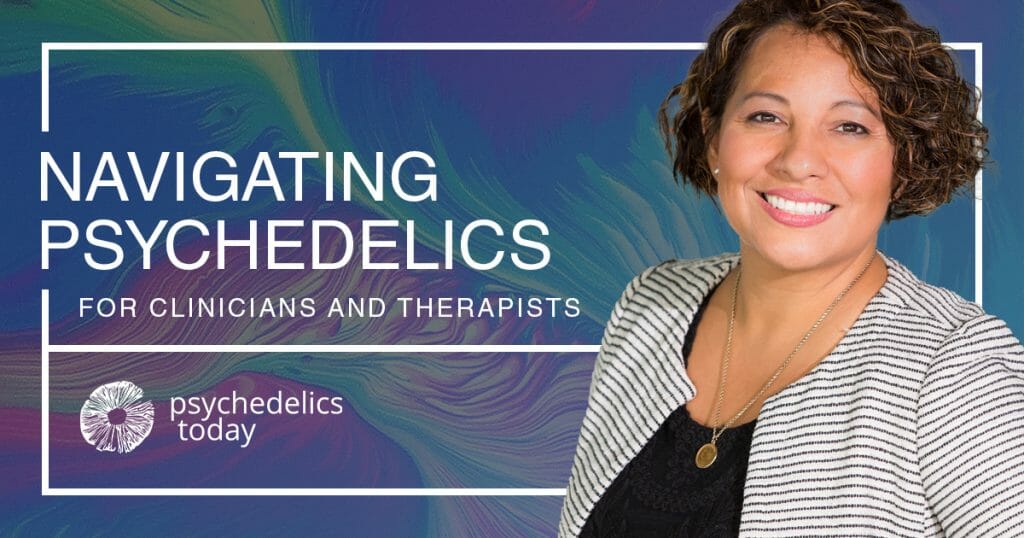
Depth psychology differs from other schools of psychology (behavioral, cognitive, humanistic, etc.) in that it takes the unconscious as the primary driving force on our behaviors and emotions. Because it is itself unconscious, the unconscious cannot be known by our usual, logical, and rational ways of “knowing.”
Therefore, depth psychology employs the use of symbols, images, and metaphors to translate the language of the psyche, which historically was approached through dreams and patterns in mythology. Working with myth is one of the hallmarks of the “depth approach,” and clearly distinguishes this field of psychology from others.
Yet it is important to remember that in depth psychology, symbols and images are always used to describe something “as if,” and not as literal representations. This is one of the most important tenets of depth psychology: Images and symbols are used by the psyche to reference something deeper and likely unknown, yet something that our psyche yearns for us to discover. In true depth psychology, there is always space for the unknown.
The etymological roots of the word psychology can be understood as “the way into” or “the study of the soul.” Depth psychology emphasizes this ineffable notion of the soul, and continually places this unknowable facet of the human experience at its core. What this means in practical terms is a focus on the most important and vexing issues which have accompanied humanity since the dawn of time: birth, death, love, loss, mystery, purpose, growth, decay, and the meaning of it all. The very things which make us human.
Carl Gustav (C.G.) Jung (1875-1961) was a Swiss psychiatrist who helped shape psychology into the discipline we know today. His method of understanding the psyche, which he termed analytical psychology, forms what is now popularly called “Jungian psychology.”
For many years, Jung was slated to become Sigmund Freud’s “crowned prince” and protege, but their paths diverged in 1912 over disagreements as to the reality of the ‘collective unconscious,’ which Frued summarily rejected. Jung’s insistence that there is an ancient, unknowable, species-wide repository of psychic information which informs the human experience flew in the face of Freud’s increasingly dogmatic theories, which focused on sex and pleasure as the driving forces behind all human behavior.
This break led Jung into a long period of introspection which he termed his “confrontation with the unconscious,” during which he delved deep into his own psyche and imagination. Eventually, this process resulted in his detailed map and terminology of the psyche, his practice of active imagination, as well as The Red Book, and the recently published, Black Books.
For a more detailed account of Jung’s life and work, readers should refer to his autobiography, Memories, Dreams, and Reflections.
Jung employed a variety of terms to describe his understanding of the psyche and all of the mysterious dynamics he observed within his patients (especially those suffering from severe schizophrenia), and within himself. Concepts such as the collective unconscious, archetypes, the shadow, anima, synchronicity, individuation, and the Self, are all terms that Jung coined and wrote about extensively. They are also topics we discuss in our course that explores psychedelics and depth psychology, Imagination as Revelation: The Psychedelic Experience in the Light Jungian Psychology.
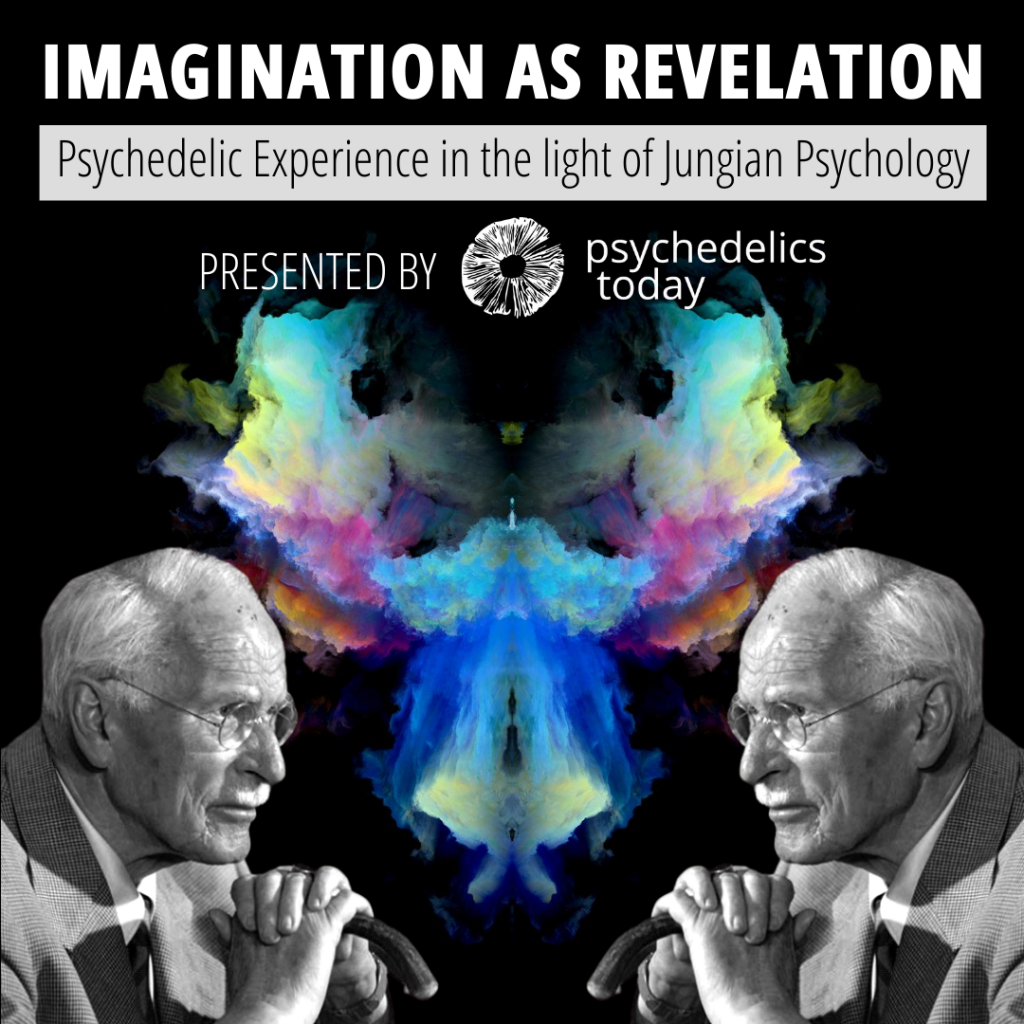
Yet again, it bears repeating that these terms are to be understood as mere symbols or points on a map, referring to places or dynamics within the psyche that our conscious mind struggles to grasp. Jung himself said, “Theories in psychology are the very devil. It is true that we need certain points of view for orienting… but they should always be regarded as mere auxiliary concepts that can be laid aside at any time.”
While the mainstream psychological establishment has eschewed the work of Jung for many decades, his legacy informs our collective imagination and culture in profound ways, perhaps more than any other figure in the history of psychology.
Mythologist Joseph Campbell drew deeply from Jung’s work, and based many of his ideas of The Hero’s Journey on Jung’s theories. George Lucas consulted with Campbell while creating Star Wars, arguably one of the most significant film series of all time. The poet Robert Bly mentions Jung throughout his book Iron John, which paved the way for the body of work that is now called “men’s work.” Jungian analyst and author Clarissa Pinkola Estes, in her enduring text, Women Who Run With the Wolves, worked directly with Jungian concepts to address aspects of the feminine psyche.
Any reference to ‘archetypes’ or something being ‘archetypal’ plainly invokes Jung and his work on these illusive, yet omnipresent patterns of being. The shadow, or ‘shadow work,’ which has become something of a buzzword in psychedelics in recent years, conjures Jung as well. We have a whole course that examines Jung’s concepts of the shadow, the difference between the ‘Golden’ and ‘Dark’ shadow, and other related issues called, Psychedelics and the Shadow: Exploring the Shadow Side of Psychedelia.
Similarly, Jung also coined the term ‘synchronicity,’ which could be defined as a meaningful coincidence, and was a phenomenon that captivated him for decades. Lastly, any reference to ‘the collective,’ harkens to Jung’s notions of the ‘collective unconscious,’ which is a foundational aspect of his psychological model, and which we’ll address in our next article in this “Psychedelics in Depth” series.
Despite all of these enduring contributions, Jung still remains somewhat of a marginal figure. There are a multitude of reasons for this, a major one being that his theories escape empirical measurement, and eventually lead one outside the rational-materialist worldview we now call “science.” Mention Jung’s name in most mainstream psychology degree programs and the odds are you will be met with skepticism.
James Hillman, who some say was Jung’s last living direct student, offered this extensive “Defense of Jung,” which you can listen to here.
Subversion and marginality have arguably always been at the core of depth psychology. Dreams themselves exist at the margins of our consciousness, and can often direct our attention to marginal areas of our psyche which we would rather not see. Concepts such as the anima/animus, which imply that every male has inside him a female soul (and vice-versa), directly subverts our culture’s basic understanding of gender. Archetypes reveal to us that our personal life story is not a unique, singular event, but rather, connected to a greater chain of human experiences.
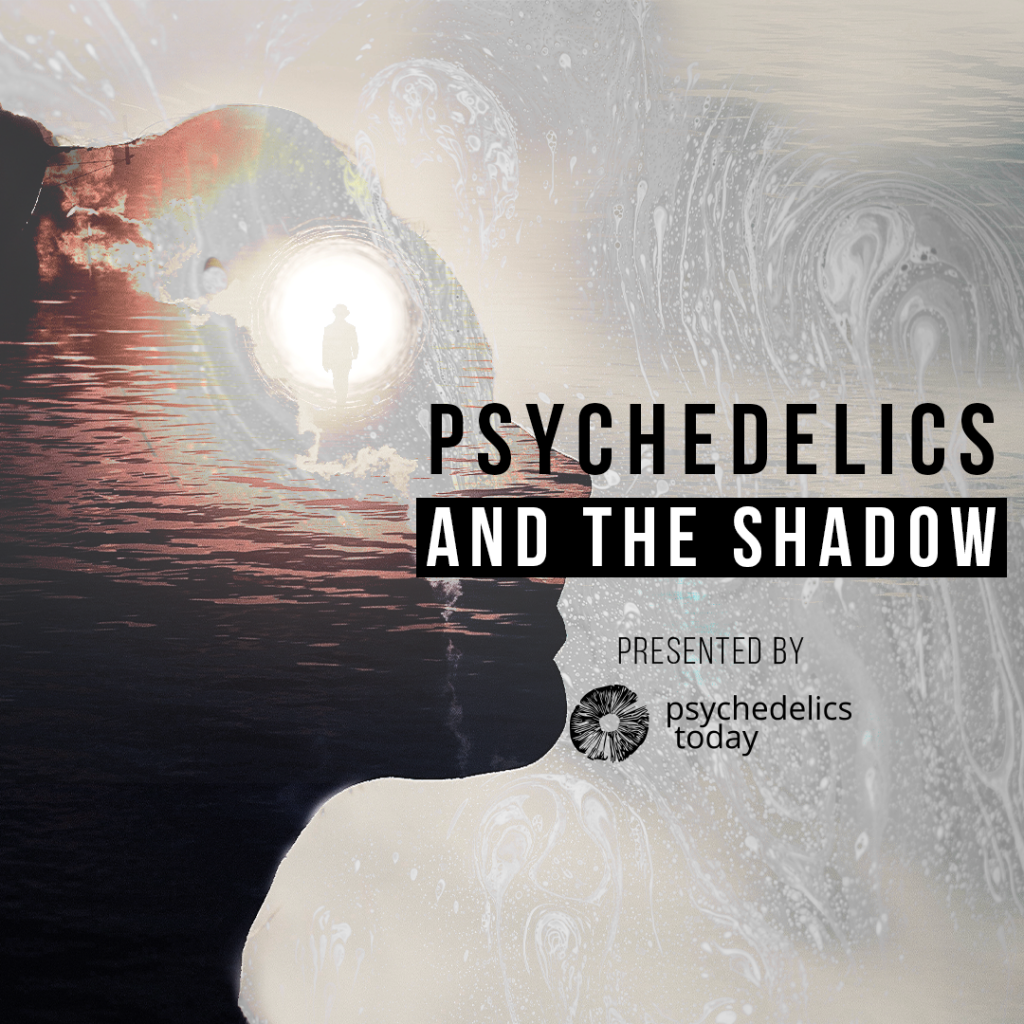
Lastly, depth psychology’s pervasive insistence on the reality of the soul can be seen as a revolutionary act within a culture that seeks to actively deny the very existence of such a thing. The consequences of this denial can be seen within every great historical, interpersonal, and environmental tragedy perpetrated upon people and the planet across time.
Therefore, the significance of depth psychology extends far beyond the confines of the therapists’ office or the university lecture hall, and stretches out into the old growth forests, indigenous communities, and inner cities across the world.
Depth psychology is not just a school of psychology, but a lens through which to intimately perceive and meaningfully engage with the wider world.
Depth psychology offers an immensely useful framework for approaching psychedelic work, both as a facilitator and a psychonaut. Stanislav Grof, pioneer of psychedelic-assisted psychotherapy and transpersonal psychology and one of our biggest influences here at Psychedelics Today, described the role that psychedelics play as a psychic “abreactive,” meaning that they bring to the surface whatever unconscious material has the most emotional charge. Seen from this lens, psychedelics, which often work directly with unconscious material, could therefore be seen as part and parcel to the larger field of depth psychology.
Interpreting the variety of imagery and experiences that psychedelics can evoke can easily be aided by a grounding in basic depth psychology, especially understanding the interplay between image, archetypes, and complexes. Facing and integrating one’s shadow is a central aspect of both Jung’s work and using the psychedelic experience for personal growth and healing.
Many worthwhile books have been written on the interplay between psychedelics and depth psychology, including Grof’s body of work, Confrontation with the Unconscious, and much of the work by Ann Shulgin, Timothy Leary and Ralph Metzner. Yet the interplay between depth psychology and psychedelics offers immense potential in the realms of research, therapeutic methodology, and integration—more so than I believe has been fully realized.
The history of psychedelic research is almost inseparable from the tradition of depth psychology. Stanislav Grof, mentioned above, as well as other early psychedelic researchers, approached their work from a depth psychological lens. Because of certain cultural shifts over the 20th century, current psychedelic research prioritizes quantitative and statistical analysis which can often overlook the highly personal and emotional aspects of the psychedelic experience.
Yet, depth psychology requires us to return to the real, troublesome, subjective experiences of the individual as its primary territory of work, and for this reason offers one of the most valuable lenses from which to view the psychedelic experience. Because, just like human beings, no two psychedelic journeys are alike, since they are in essence reflections of the multifaceted and endlessly mysterious inner world of the brave souls who dare to explore their own uncharted depths.
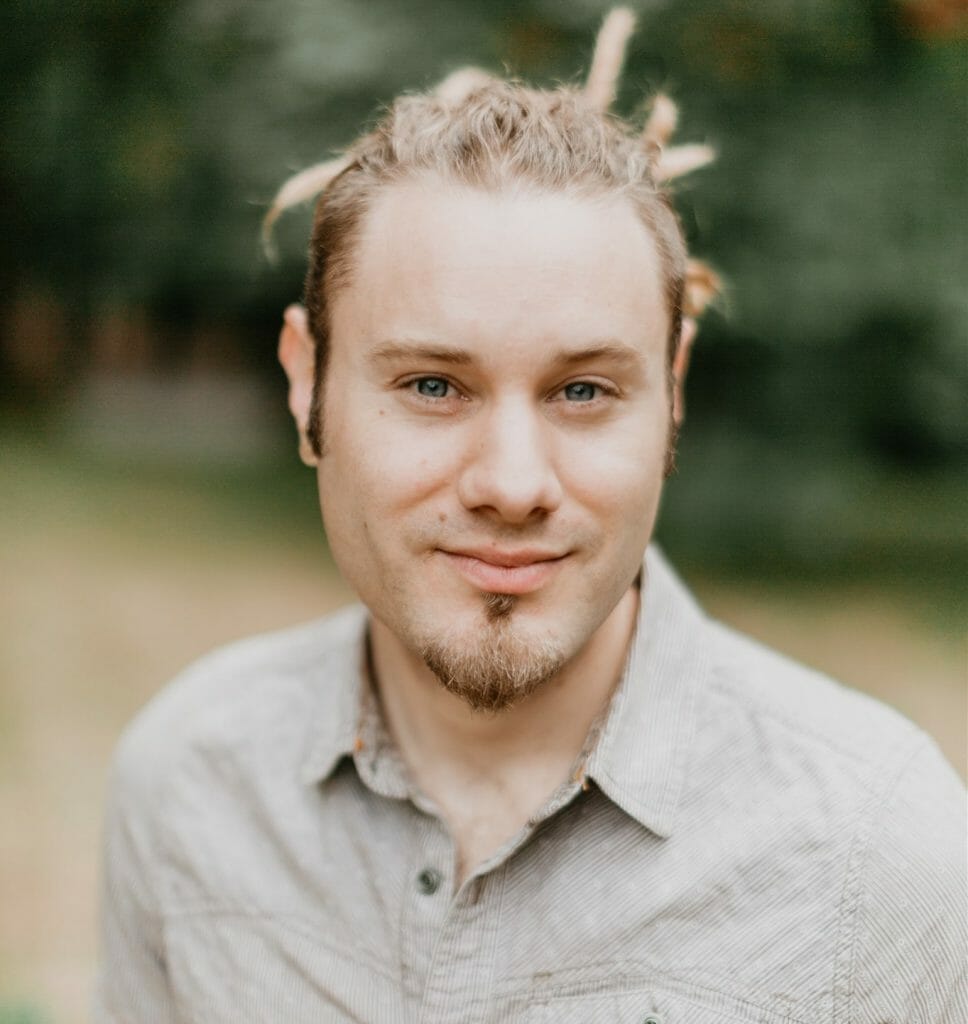
Simon Yugler is a depth and psychedelic integration therapist based in Portland, OR with a masters (MA) in depth counseling psychology from Pacifica Graduate Institute. Weaving Jungian psychology, Internal Family Systems therapy, and mythology, Simon also draws on his diverse experiences learning from indigenous cultures around the world, including the Shipibo ayahuasca tradition. He has a background in experiential education, and has led immersive international journeys for young adults across 10 countries. He is passionate about initiation, men’s work, indigenous rights, decolonization, and helping his clients explore the liminal wilds of the soul. Find out more on his website and on Instagram , Twitter (@depth_medicine) or Facebook.
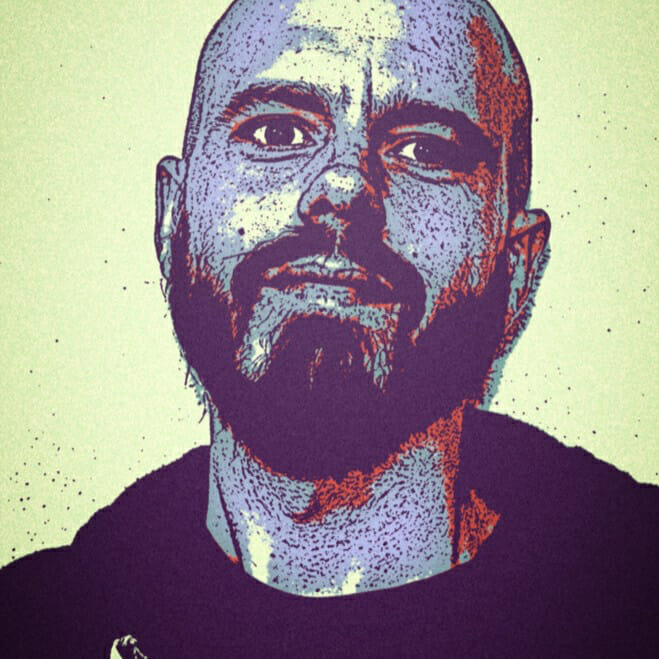
Martin Clarke is a British Designer and Illustrator from Nottingham, England. Specializing in branding, marketing and visual communication, Martin excels at creating bespoke brand identities and striking visual content across multiple platforms for web, social media, print and packaging. See more of his work here.
In this episode, Joe interviews psychologist and adjunct professor at Capella University, Dr. Sean Hinton.
Hinton talks about his early days at the Institute of Transpersonal Psychology (now Sophia University) and his realization of how common numinous experiences are and how seldom people talked about them at the time. And he talks about how so many research studies just reinforce what we already know or want to further prove, existentialism and existential psychologist Rollo May, and Timothy Leary and his cultural, non-medicalized approach to research.
And he talks about a lot more in this very free-ranging conversation: Portugal and their model for legalization, James Fadiman, James Hillman, addiction, heroin, Norman Rockwell, LSD, John Quincy Adams, microbreweries, William James, gun control, monotheism, and more!
But his main focus is what we do next if we get these substances rescheduled: How do we view integration outside the medical model? How do we view these tools anthropologically and sociologically and keep them from being solely medicalized? And how do we handle regulation as the “price we pay for civilization” without becoming progress-blocking bureaucrats?
“Consider the field a table. Now consider your half of the table as your half of the table and then divide that into quarters, and then divide that again, and when you get down to something that’s too small to put your plate on; that’s what you want to do your research on. It’s always a very, very small area of what is already known but hasn’t been illuminated sufficiently.”
“That’s the question: What kind of world are we going to live in? It’s fun to talk about trip stories and it’s fun to talk about the latest and greatest synthetic drugs and neuroscience, but what’s it really mean to the lives of those people who would like to have a more expansive, happier, content, paradisal life, as opposed to struggling through tyranny?”
“That’s where the thinking went. It’s typical American privatism at its best. ‘You can’t show me the usefulness of it, [so] why should we pursue it?’ And usefulness means it makes money. American pragmatism is just a branch of capitalism.”
“When you start confusing the roadmap to what the reality is, they’re two different things. It’s great to think of myself as a bunch of neurons and stuff like that. Well, that’s a great roadmap, but I’m sorry, what I’m experiencing is something that needs understanding, as Hillman would say. So how do we integrate this understanding part of ourselves with a society that’s cohesive enough to allow for those understandings, or open and unafraid? All the good stuff comes from places that are open and unafraid.”
The Glass Bead Game: A Novel, by Hermann Hesse
E=mc2: A Biography of the World’s Most Famous Equation, by David Bodanis
Huxley.net: Brave New World Revisited
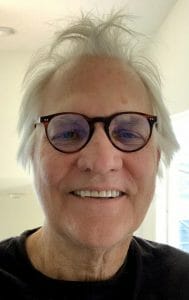 Sean Hinton is a psychologist counseling individuals in their personal and spiritual growth, an executive consultant to business leaders, and a lecturer and graduate school instructor in psychology.
Sean Hinton is a psychologist counseling individuals in their personal and spiritual growth, an executive consultant to business leaders, and a lecturer and graduate school instructor in psychology.
He often works with professionals in organizations to grow into their leadership roles in ways that both satisfies them in spirit and produces positive results in their organizational and personal life. He works with women and men in transition, stage of life challenges, and existential crisis of loss, life purpose or changing relationships.
He earned his PhD at the Institute of Transpersonal Psychology, and received an MBA in management from Pepperdine Graziadio School of Business and Management, an MA in education, and a MACP in clinical psychology.



In this episode, released on Stan Grof’s 90th birthday, Joe interviews Kristina Soriano & Jonas Di Gregorio of the Psychedelic Literacy Fund, a donor-advised fund focused on educating the world about psychedelic therapies by financing the translation of classic books into different languages. Their first big project has been to publish new translations of Grof’s classic, The Way of the Psychonaut.
Kristina and Jonas first told us about their project back in December, and they’re back to update us on their fundraising progress: new translations, future projects, a new volunteer, and a generous grant through HalfmyDAF. They talk about experiences with ayahuasca and virtual reality, audiobooks and the joy of reading, how the translation process works, and the birth perinatal matrices.
And they talk a lot about Stan Grof, with Joe discussing how much his work has meant to him and the formation of Psychedelics Today, which was created largely to promote Grof’s work and the power of Holotropic Breathwork. If you want to donate to the furthering of Grof’s knowledge in honor of his birthday, please do so at Psychedelicliteracy.org.
“It’s so fortunate that we chose The Way of the Psychonaut as our first book because Stan is turning 90 years old this year and it’s a wonderful way to celebrate his dedication to this field of psychedelic psychotherapy. He’s devoted 60 years of his life to this, to pioneering this way, and it’s really an homage to his fierce courage and curiosity in bringing this message forward. And the receptivity that we’ve had from our project just really shows how much people have been affected and positively influenced by his work.” -Kristina
“When we speak about books about psychedelics, especially in countries where there is a different understanding of what they are, etc., [a] publisher can be very much reluctant and hesitant in translating them. And so that’s why, especially now, where clinical trials are showing these incredible results in the United States and a few more countries, it makes sense for philanthropy to think strategically [about] how these books can catalyze clinical trials and research in other countries.” -Jonas
“Stan is so positive. It’s so beautiful how he accepts this is the 9th decade of his life and [he’s taking] all of the pieces and putting them all in a row, so that way, the passing is smooth. And it’s such a beautiful acceptance of this reality. But also, we want to assure the people of this generation that it’s being passed on to a generation that respects and honors the pioneering efforts that they’ve done, and we’ll make good on that promise so that we will learn from the past and bring it forward in a way that’s holistic and healing for everyone. That’s my hope.” -Kristina
Psychedelics Today: PTSF 39 (with Jonas and Kristina of the Psychedelic Literacy Fund)
The Secret Chief Revealed, by Myron J. Stolaroff
 Husband-and-wife team, Jonas Di Gregorio and Kristina Soriano, established the Psychedelic Literacy Fund in May of 2020 as a donor-advised fund managed by RSF Social Finance in San Francisco. The vision of this fund is to educate the public about psychedelic therapies by financing the translation of books into different languages.
Husband-and-wife team, Jonas Di Gregorio and Kristina Soriano, established the Psychedelic Literacy Fund in May of 2020 as a donor-advised fund managed by RSF Social Finance in San Francisco. The vision of this fund is to educate the public about psychedelic therapies by financing the translation of books into different languages.
Kristina Soriano holds a Masters’s Degree in Healthcare Administration from Trinity University. A classically trained pianist and multi-instrumentalist, she is the Executive Director for the Women’s Visionary Congress.
Jonas Di Gregorio comes from an Italian family of publishers, Il Libraio Delle Stelle. He holds a Bachelor’s Degree in Philosophy from La Sapienza University of Rome.



In this episode, Kyle interviews licensed professional counselor specializing in somatics and ketamine-assisted psychotherapy, regular contributor to Navigating Psychedelics, and vinyl DJ (who DJed our 5th-anniversary party), Pierre Bouchard.
Bouchard digs into the art of somatics and the importance of adding it as another tool to the data set of one’s healing practice, and discusses how many people don’t yet understand how to interpret (or even define) these sensations, how learning to tune in to bodily sensations can often reveal what needs to be worked on before other therapeutic modalities can, and how physical touch and working with the body create an ethical dilemma. And he breaks down the polyvagal theory and how different types of trauma affect the nervous system and its go-to “fight, flight, or freeze” actions.
They also talk about the top-down and bottom-up approach, Holotropic Breathwork and Stan Grof, dissociation and ketamine, what they’d like to see in the future of therapy, and more. This is a conversation between two counselors, so if you’re behind on therapeutic modalities and concepts, this episode is for you.
“When we’re talking about learning to tune into body sensations, we’re really helping somebody develop a new language, a new way of understanding themselves. …It’s not that things weren’t happening and now they are, it’s that they’re learning how to tune into it.”
“Before our conscious mind catches something, often, our body catches it. And we might have a belief about ourselves that then, when we actually tune into body sensations, we find out there’s actually something different going on here. To me, that’s the deep beauty of this; is that you can be intellectually cut off from an experience or belief or just something about yourself, but the body doesn’t lie. The body has no stake in negotiating. The body’s just interested in the truth.”
“There’s a way in which so much of our wounding is about what did or didn’t happen and getting a chance to have some reparative experience around that. Finding out that you’re God and that everyone else is God; it might help that journey, but it’s not going to heal that knot in your nervous system.”
“We’re learning to be more interested in our own experience. I think this is something that psychedelics are so fantastic at. We start to have a much greater range of who we are and what’s possible. I can be screaming and raging, I can be crying, I can be in ecstatic bliss. …The psychedelic life, in this way, is about continuing to learn to be a more rich meal.”
Instagram: @pierre.bouchard.lpc
Psychedelicstoday.com: Selecting Music for Psychedelic Therapy
The Polyvagal Theory in Therapy: Engaging the Rhythm of Regulation, by Deb Dana
The Body Remembers: The Psychophysiology of Trauma and Trauma Treatment, by Babette Rothschild
“Applying the Brakes,” By Babette Rothschild
 Pierre Bouchard is a Licensed Professional Counselor with a private practice in Boulder and Denver, CO. He specializes in blending somatics, embodiment, attachment theory, and trauma therapy with ketamine-assisted psychotherapy. A graduate of Naropa University (in Contemplative Psychotherapy), he has trained in several somatic psychotherapy modalities, most recently the Hakomi Method under Melissa Grace, and currently, in Ido Portal’s movement system at Boulder Movement Collective. He has maintained a meditation practice for 19 years, is working on opening a ketamine clinic, and in his spare time, works as a vinyl DJ.
Pierre Bouchard is a Licensed Professional Counselor with a private practice in Boulder and Denver, CO. He specializes in blending somatics, embodiment, attachment theory, and trauma therapy with ketamine-assisted psychotherapy. A graduate of Naropa University (in Contemplative Psychotherapy), he has trained in several somatic psychotherapy modalities, most recently the Hakomi Method under Melissa Grace, and currently, in Ido Portal’s movement system at Boulder Movement Collective. He has maintained a meditation practice for 19 years, is working on opening a ketamine clinic, and in his spare time, works as a vinyl DJ.
In this episode, Joe interviews Dr. Fernando Espi Forcen and Dr. Franklin King from Mass General Hospital’s new Center for the Neuroscience of Psychedelics.
They talk about how Jerry Rosenbaum, Dr. Robin Carhart-Harris, and Compass Pathways led to the creation of the Center, and they talk about their plans, including a study involving imaging, a study looking at ketamine use with and without psychotherapy, and their first: a study on rumination inspired by Rosenbaum’s work.
They discuss people’s “good or bad” binary opinions on drugs and the fear so many still have of psychedelics, the mystery of consciousness and how more studies can lead to a better understanding of it (and therefore better psychiatry), spiritual emergence vs. spiritual emergency, what could hurt our collective progress, and their vision of the future as a very multidisciplinary world with a lot of cross-collaboration between different fields of psychiatry and science- a future they’re already starting to see with some of the excitement coming from their neighbors at MIT.
“One of the major issues, I think, facing psychedelic research right now is that all the money is private money. …We don’t have any federal funding for psychedelic research at this point, which essentially means that people with deep pockets are able to dictate what studies get funded and that private companies get to decide what gets studied. …It’s definitely true that political bias and some of the scars of the 1960s and the Nixon laws and the Reagan era are continuing to suppress research.” -Franklin
“If we’re going to hold psychedelics to this super high standard, I think we also need to hold all of our other treatments to a super high standard. So I do see within that, there’s kind of a bias where people are willing to look the other way about something like ECT or the criticism that SSRIs might not be super effective for mild to moderate depression. We look the other way for that, whereas psychedelics need to jump through so many hurdles to prove that they’re worth pursuing.” -Franklin
“The amazing thing about consciousness is that we still don’t have a good model for the mind of consciousness. And as a psychiatrist, [that’s] tremendously intriguing.” -Fernando
“Another piece of this is really preparing not just patients, but psychiatrists, physicians, the world, for how this works, because it’s really a completely different model of treatment than pretty much anything else. Whether you see a psychiatrist or you see another kind of physician, you’re going in and sort of asking for a treatment to be given to you as kind of a passive recipient. Psychedelics are not like that.” -Franklin
“Nixon’s ghost is in my apartment, probably.” -Joe
Mass General Hospital: Center for the Neuroscience of Psychedelics
Support the Center for the Neuroscience of Psychedelics
El último Humanista (Fernando’s podcast)
Monsters, Demons and Psychopaths: Psychiatry and Horror Film, by Fernando Espi Forcen
Meetup.com: Psychedelics And The Future Of Psychiatry
Man’s Search for Meaning, by Viktor E. Frankl
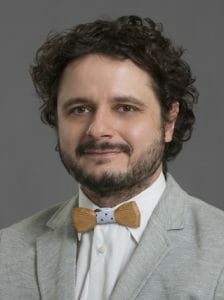
Fernando Espi Forcen, MD, PhD, works at the Department of Psychiatry of Massachusetts General Hospital, Boston, taking care of patients at the inpatient psychiatry unit and urgent care clinic. Before moving to Boston, he worked at Rush University in Chicago as a consult liaison psychiatrist with a particular focus on patients in need of liver and kidney transplants. He was born and raised in Spain and graduated from Medical School at the University of Murcia. He has more than 20 peer-reviewed publications in a variety of aspects of psychiatry, such as akathisia due to drugs, metabolic syndrome, inflammation, dissociative symptoms, history of psychiatry, and cinema. He is the founding editor of the Journal of Humanistic Psychiatry and the author of the book, Monsters, Demons and Psychopaths: Psychiatry and Horror Film.
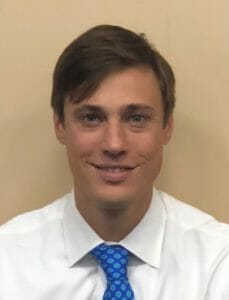 Franklin King IV, MD, is the director of training and education at the Mass General Center for the Neuroscience of Psychedelics and a clinical instructor at Harvard Medical School. His primary clinical and research interest is in the utilization of psychedelic-assisted psychotherapy to treat a variety of chronic psychiatric conditions, including depression and anxiety disorders, and in strategies to optimize these interventions for different patient populations. In addition, Dr. King teaches and supervises residents and fellows at Mass General, and practices clinically as a staff psychiatrist at the Center for Anxiety and Traumatic Stress Disorders as well as on the Acute Psychiatry Service in the Emergency Department.
Franklin King IV, MD, is the director of training and education at the Mass General Center for the Neuroscience of Psychedelics and a clinical instructor at Harvard Medical School. His primary clinical and research interest is in the utilization of psychedelic-assisted psychotherapy to treat a variety of chronic psychiatric conditions, including depression and anxiety disorders, and in strategies to optimize these interventions for different patient populations. In addition, Dr. King teaches and supervises residents and fellows at Mass General, and practices clinically as a staff psychiatrist at the Center for Anxiety and Traumatic Stress Disorders as well as on the Acute Psychiatry Service in the Emergency Department.



In this episode, Michelle and Joe interview Ralph Blumenthal, 45-year New York Times contributor and author of The Believer: Alien Encounters, Hard Science, and the Passion of John Mack (which inspired one of our more popular recent blogs, and you can win a copy of!).
They talk about John Mack: legendary Harvard professor who did breathwork with Stan Grof at Esalen and became interested in the mystery of alien abduction, which led him to write 2 bestselling books, appear on Oprah (who is probably an alien*), become a pioneer in the world of alien abductions, and die while immersed in afterlife studies, only to reportedly visit friends later on. Mack’s notoriety came from trusting the stories he was hearing, trying to help people make sense of it all, and taking a big interest in how these experiences seemed to transform so many of the abductees. Sounds a lot like powerful psychedelic experiences and integration work leading towards growth, doesn’t it?
So sit back, pause that X-Files episode, light one up on this high holiday, and get really deep into the world of aliens. Learn about the government’s secret Advanced Aerospace Threat Identification Program, the Ariel school incident, Avi Loeb’s Oumuamua theory, out-of-body experiences, shapeshifters, and more! Ponder how Blumenthal “accidentally” leaves questions unanswered about the government experimenting with DMT as a way of communicating with aliens. Contemplate why the government is suddenly so forthcoming with UFO data. Think about how today is 420 and this is episode 240…
The truth is out there, folks.
*This viewpoint is not that of Psychedelics Today, but merely of this high Show Notes writer.
On Mack doing breathwork with Stan Grof: “He was awakened to a different world, a spiritual world, a world of other realities than the one he was familiar with, and as I say in my book, he said, ‘Stan Grof opened up my psyche and the UFOs flew in.’”
“It’s no spoiler to say that my book does not provide the answer to the mystery of alien abduction, and I acknowledge that. I shed some light on it, perhaps, and what I like to say is that at least I’m comfortable saying that I know what it isn’t. It’s not mental illness, it’s not hoaxes (by and large), it’s not fabrication, it’s not the delusion of crowds. It’s something else. It’s something that is very real to a lot of people from different walks of life [and] different ages, and there really is no good explanation for what has happened to these people.”
“What do you say about the 2-year old children who tell these stories? You know, ‘Little man fly me up in the sky.’ ‘I go up in the sky.’ These 2-year-old kids: have they read UFO books? Are they influenced by UFO movies?”
“Skeptics have not taken the time to read the literature. They don’t know the cases. So all they can do is say, ‘Ah, that’s ridiculous.’ Of course it’s ridiculous! We all agree it’s ridiculous. We all agree it’s not possible. …We all agree that these stories that people are telling are not possible in our reality. They’re completely crazy. And yet, there’s no easy way to explain them away.”
The Believer: Alien Encounters, Hard Science, and the Passion of John Mack, by Ralph Blumenthal
NYtimes.com: Glowing Auras and ‘Black Money’: The Pentagon’s Mysterious U.F.O. Program
NYtimes.com: 2 Navy Airmen and an Object That ‘Accelerated Like Nothing I’ve Ever Seen’
NYtimes.com: On the Trail of a Secret Pentagon U.F.O. Program
NYtimes.com: Navy Reports Describe Encounters With Unexplained Flying Objects
Defense.gov: Establishment of Unidentified Aerial Phenomena Task Force
UFOinsight.com: The Still Unexplained 1994 Ariel School UFO Alien Encounter
Cnet.com: Harvard’s Avi Loeb more sure than ever we were visited by alien spacecraft
Extraterrestrial: The First Sign of Intelligent Life Beyond Earth, by Avi Loeb
Dancing Naked in the Mind Field, by Kary Mullis
Marijuana Reconsidered, by Lester Grinspoon
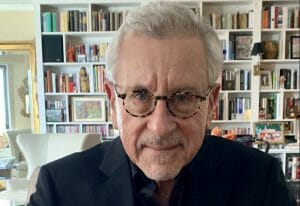 About Ralph Blumenthal
About Ralph BlumenthalRalph Blumenthal was a reporter for The New York Times from 1964 to 2009, and has written seven books based on investigative crime reporting and cultural history. His latest book The Believer: Alien Encounters, Hard Science, and the Passion of John Mack was published by High Road Books of the University of New Mexico Press on March 15, 2021. It’s the first biography of Pulitzer Prize-winning Harvard Psychiatrist John E. Mack (1929-2004) who risked an esteemed career to investigate stupefying accounts of human abductions by aliens. Vanity Fair excerpted the work-in-progress in 2013.



In this episode, Joe and Kyle interview Palo Alto-based Ph.D., author, clinical psychologist, and “integration specialist,” Kile Ortigo.
From what he’s learned at his time at the Grady Trauma Project, the National Center for PTSD, VA work, hospice work, and his own practice, he talks about the flaws of active intervention models of therapy and why what can be most healing for someone is often just letting them be and bearing witness to their experience. And he talks about burnout in healthcare, secondary trauma, common factors that help in all therapy techniques, Jung, “Altered States,” and what we might derive from the popularity of Marvel movies.
And he talks about his book, Beyond the Narrow Life: A Guide For Psychedelic Integration and Existential Exploration, and integration: what it actually means, the basics of how he works with clients, if it’d be possible to create some sort of integration measurement, the importance of being flexible when intention-setting, how the psychedelic journey relates to Campbells’ idea of the hero’s journey, and the importance of movies like “Joker.”
“I think that’s one of the downsides of working in any sort of big, large, complex system- is that the metrics that you’re being evaluated on are how many patients you’re seeing a day or a week, not necessarily: are they improving?”
“We need to loosen our attachments on active interventions sometimes and realize that just bearing witness- being present in a mental way can be what’s most healing.”
“Mythology is being created, I would say, at a very rapid pace these days, and it’s being communicated in a much higher scale. And that’s primarily through our science fiction, I think, because it’s previewing some of these challenges that are here right now and we knew they were coming, but we haven’t been paying attention to them and we need to. ‘Black Mirror’ is important.”
“There have always been multiple stories that need to be told, including counter stories to our dominant narratives (our hero’s journey). And that’s why a film like ‘Joker’ from last year was so incredibly important. We needed to hear the story of the shadow and why we need to pay attention to the shadow, and not from a place of judgment or antagonism, but of compassion.”
Psychedelics Today: PTSF 34 (with Craig Heacock)
 About Kile Ortigo
About Kile OrtigoKile M. Ortigo, Ph.D., is an award-winning clinical psychologist and founder of the Center for Existential Exploration, which supports people exploring profound questions about identity, meaning, life transitions, and psychospiritual development. He also serves on advisory boards of Psychedelic Support, an online training and clinician directory for legal, psychedelic-informed care, and Project New Day, a non-profit organization providing harm reduction resources for people using psychedelics in their addiction recovery process. He received his PhD from Emory University and is a certified psychedelic therapist trained at CIIS and mentored by Dr. Bill Richards (who wrote the foreword to his second book, Beyond the Narrow Life). For several years, Dr. Ortigo worked at the National Center for PTSD (NC-PTSD) where he collaborated on technology development and implementation projects, ranging from apps like Mindfulness Coach to online programs like webSTAIR. With colleagues at NC-PTSD, NYU, and Harvard, Dr. Ortigo coauthored Treating Survivors of Child Abuse & Interpersonal Trauma: STAIR Narrative Therapy (2nd Edition), which was released in June 2020.



In this episode, Kyle interviews clinical psychologist focusing on sexual trauma, health, and identity, and author of The Psychedelics Integration Handbook, Dr. Ryan Westrum.
Westrums’ biggest focus and conversation with clients right now in our age of Covid concerns who we are without medicine- how we fill the liminal states between our sessions or rituals. He talks a lot about the work people can do on their own now: learning to listen to our inner healers, honing and sharpening what we already know, stretching ourselves, listening to the different parts of our intuition (our physical bodies, emotional hearts, and cognitive thinking) and realigning when one is out of sync, and maybe the most important lesson: embracing the idea that self-work doesn’t have to be built on trials and tribulations, and often, challenging ourselves to use our hands and practicing something we know we’re good at or getting back into a long-forgotten hobby can be just as effective towards growth and feeling better about ourselves.
He also talks about solitude, how to use technology the right way and not fall into false engagement, what safety means to people in today’s climate, the importance of tethering yourself to trustworthy allies, how psychedelics and his work with sexuality converge, and how to embrace the wonder and beauty of what we discover through psychedelics in everyday life.
“We have to consciously watch what we’re consuming, being prudently aware of this mindful consumption rather than this inappropriate consuming of information when we don’t even know why we just touched our phone or why we just engaged in learning more. Without sounding blasphemous (because I love the internet), what’s it for? What are we doing it for? …How often are you getting lost in people you don’t even know? And how often are you reaching out to people that could actually be there for you? And it leads to psychedelic medicine work- are you leaning on the people that could actually support you?”
“What is the higher level of intention we’re living? If we are going to take the challenge to dive into medicine work by ourselves, we should still be constructing something that’s higher level, and to speak volumes of motivating the purpose of why we’re doing it. If you’re just doing it to do it because you think that’s the next thing, I’d ask you: what are you doing in your life away from the medicine?”
“Some of the most amazing transcendences are personal, and without being disrespectful to the medicine, do we need it to evoke that? Is that a state of being that we can find within ourselves through evocative breathing, through a great song, sexual pleasure with your partner, whatever? There’s other avenues. That’s what that leads me to, is the plethora of opportunity outside of taking psilocybin or doing an ayahuasca ceremony- [the] plethora of experiential experiences that are very evocative towards healing.”
“Without going into hours of conversation, even in couples, people are unaware of what they can share, unaware of entering into what they want to ask for. And that’s where the intersection of psychedelics happens, is it gives them this embodied expression of: ‘This is genuinely who I am, sexually, emotionally, spiritually,’ and it’s quite beautiful.”
The Psychedelics Integration Handbook, by Ph.D. Ryan Westrum
His last appearance on the podcast
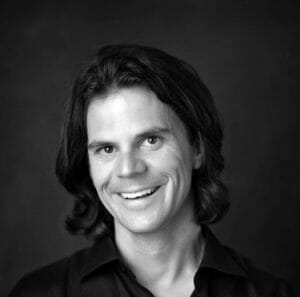 About Dr. Ryan Westrum
About Dr. Ryan WestrumDr. Ryan Westrum, PhD, MA. is a nationally recognized psychedelic
integration expert, author of The Psychedelics Integration Handbook, and Doctor of Clinical Transpersonal Psychology. For more than 15 years, his primary focus has been working with individuals and groups facilitating experiential therapy and integrating psychedelic journeys into healing and personal transformation. Ryan speaks on myriad of topics and leads experiential groups, like dreamwork integration therapy and psychedelic integration groups. The founder of http://healingsoulsllc.com and psychedelicintegration.net



In today’s Christmas episode of Solidarity Friday, Kyle and Joe take a break from the news and instead sit down with Jonas Di Gregorio and Kristina Soriano of the Psychedelic Literacy Fund, a donor-advised fund working to raise money and co-finance the translation and publication of the most important books on psychedelic therapy into a variety of different languages.
Their first project is both volumes of Stan Grof’s The Way of the Psychonaut, which they hope to have translated into German, French, and Italian by July (for Grof’s 90th birthday), and they have started a list of future projects, with Christopher Bache’s LSD and the Mind of The Universe likely next. They talk about early interactions with Rick Doblin, why they went with a donor-advised fund rather than a crowdfunding model, the synchronicities they saw at early steps in their path, what Grof’s work has meant to them, and a possible future goal of setting up a Grof museum in Prague. Kyle and Joe also share stories of their interactions with Grof and how his work (and how little he was being discussed) led to the beginnings of Psychedelics Today 4 years ago.
If you’re feeling some holiday generosity and want to help more people gain the knowledge Grof has brought to so many, please visit Psychedelicliteracy.org and make a donation (or volunteer translation services or suggest future projects).
Lastly, if you celebrate Christmas, Merry Christmas from Psychedelics Today!
“We have an inherently global mission. We’re an Italian and a Philippino living in America, trying to translate the work of a Czech psychiatrist.” -Kristina
“For me, it’s his capacity to really connect different fields, from quantum physics to psychiatry, [to the] history of religion- it’s really remarkable. The depth of his knowledge is so wide, and I think it can speak to so many people coming from different fields. I remember as a teenager, sharing the content of the books by Grof with friends that were studying physics and friends who were studying philosophy and friends who were studying psychology, and all of them could find something they could really appreciate.” -Jonas
“A book can be a harm reduction tool. …Just having a book at the right time can really help you integrate a difficult experience and change the course of your life. Definitely, this has been the case for me. I didn’t know anyone in my community at the time that could really guide me, and these books played that role.” -Jonas
“Especially now, there’s a lot of conversation about diversity- how to increase diversity in the psychedelic community. Maybe the way to do that is literally to speak their language.” -Jonas
“I think the mental health crisis isn’t language-specific. I think it happens everywhere.” -Kristina
The Secret Chief Revealed Paperback, by Myron J. Stolaroff
A Course in Miracles: Foundation for Inner Peace
The Six Pathways of Destiny, by Ralph Metzner
Psychedelics Today: Susan Hess Logeais
 About Kristina and Jonas
About Kristina and Jonas


In this episode, Joe interviews writer, director, and producer of the recent documentary, “The Way of the Psychonaut: Stanislav Grof’s Journey of Consciousness,” Susan Hess Logeais.
The film, which we streamed and presented a panel for back in October, was co-produced by Stan Grof himself, and tells of his journey from his youth in Nazi-occupied Prague to Esalen to today, with much of Logeais and her theory-affirming life story mixed in. It features interviews with many big names, including Fritjof Capra and Rupert Sheldrake, and full-length interviews can now be found on the film’s website; 2 of which are conversations between Grof and legends we’ve lost recently: Ralph Metzner and Michael Harner. It is Joe’s favorite film on Grof and his work.
Logeais talks about making the movie and meeting such big names in the field, wonders how differently children might grow up if quantum physics and a respectful agreement with nature were taught in school, discusses cesarian births and the differences they could create in fear or stress response in comparison to kids born traditionally, and talks about the power of breathwork and its enormous influence on psychedelic-assisted therapy.
“When I met Stan and heard him speak and heard what he spoke about- tantric science, mythology, Eastern spiritual traditions, even quantum physics, Shamanic journeywork- there were so many things that he spoke about that I had explored on my own before I met him. And then in the course of making the movie, I realized that he had introduced many of those concepts during his 14 years at Esalen. And so I was resonating with him on a level– it’s like he was impacting my life before I met him.”
On using MDMA with psychedelics: “Perhaps as an introduction to a psychedelic experience, especially for people who are older, it might not be a bad idea. I know the anxiety that I had occasionally when something was going really fast and very deep. But I agree with you in that the depth and that anxiety passes, and it’s in the learning to get past that anxiety that we develop capacity for reflection and to move away from reactivity. So I think maybe for the first trip, just to say, ‘Ok, this is what you’re in for, and next time we’re not going to do this.’”
“I just want to say how valuable I think Stan’s contribution is, and how proud I am, or how, I guess, grateful I am to have worked with him in the creation of this film. And I’m so glad that you enjoyed it because I wanted to take his theories, his discoveries, his contributions, and make them accessible and interesting so that people could watch it and come away with an understanding that would hopefully inspire them to then go and do the deep work. And I hope people come to the website and visit the live stream archive page so that they can gain a deeper understanding of all these amazing concepts that Stan participated in sharing during his time at Esalen and his ITA conferences.”
The Way of the Psychonaut facebook
Blackfoot Physics: A Journey Into the Native American Worldview, by F. David Peat
Holotropic.com: Grof Transpersonal Training

Susan holds a demonstrated history of working in the entertainment industry. She is skilled in Music Videos, Film, Documentaries, Commercials, and Theatre. She demonstrates strong entrepreneurship professional with a Interdisciplinary Degree focused in Transformational Entertainment and Human Consciousness from Marylhurst University. She is an actress and producer, known for Gone (2012), Not Dead Yet (2009) and The Way of the Psychonaut: Stanislav Grof’s Journey of Consciousness (2020).



In today’s Solidarity Fridays episode, the typical Solidarity Fridays format is switched up again, this time with Joe interviewing podcast host and psychiatrist specializing in ketamine-assisted psychotherapy, Craig Heacock.
Will Hall’s 2 recent SF episodes spurred a lot of conversation, and led to Heacock reaching out to Psychedelics Today to counter some of Hall’s points, and stand up a bit on behalf of psychiatry. He feels that while psychiatry isn’t perfect, saying to replace it isn’t helpful, and doesn’t feel that anyone in psychiatry is saying a pill will fix anything, but rather, that if psychedelics can help people get in touch with buried trauma (something that typically takes a lot of time and relationship/trust-building and often still doesn’t work), then shouldn’t we not only be treating them like medicine, but also learning as much as we possibly can about them?
He points out some of the most obvious flaws with our model of psychiatry (and how we deal with mental health in general), discusses the barriers stopping physicians from learning more about ketamine, looks at the “spiritual emergency vs. psychotic break” argument from a different perspective, talks about what he sees in his practice and how much ketamine has helped his clients, and really brings home one of Will Hall’s main points from a different perspective- while Hall talked about how science isn’t always the answer because of how much nuance there is from person to person, he points out the amount of nuance in how mental health physicians treat clients, how clients arrived at their mental state in the first place, and how differently they respond, both with or without psychedelics.
Whether you felt Will Hall brought a lot of interesting ideas to the table or hated those episodes, this is the yin to those episodes’ yang.
“I think a lot of psychiatrists are just trying to keep their head above water, which, I think, they would much more enjoyably keep their head above water if they would use ketamine in their practices.”
“We may never understand the mind-brain connection fully, but don’t we want to try?”
“We’re finding with ayahuasca work (a lot of psychedelic work) that some people are going to these sessions and their conscious brain is saying ‘oh yea, there’s no trauma,’ and we’re finding out that there’s some serious trauma that’s just underneath the surface. And again, if we don’t know that, how can we get to the roots of anything? …Almost like we use a CT scan to see what’s happening in your innermost self, it’d be interesting to think of using psychedelics as sort of a psychological diagnostic tool to say: ‘Is there trauma in there?’”
“When Will is saying, ‘Why are we trying to address trauma with a pill?’ I don’t think any of us are. I don’t think anybody on the MAPS study or I don’t know, people in the psilocybin studies- I really don’t think anybody is thinking, ‘Ooo we’re going to fix PTSD with psilocybin!’ or ‘We’re going to fix trauma with this 150 mg MDMA capsule!’ Nobody’s thinking that. What we’re thinking is: this is a catalyst, [and] resources are limited. …We need to get in there quickly and get working on this, and that’s what’s so exciting to me about psychedelics coming online with mental health, is that we can get down to business quickly and not have to spend so much time trying to get past these defenses.”
“Capitalism is messy and psychiatry is messy and psychedelics are messy and people are messy, and isn’t that ok? Can’t we just accept that and not default to this sort of pan-negativism and finger-pointing and blaming? Because, again, we’re all on the same team. We want the same thing. We want people to thrive and we want to dial down psychological despair as much as we can.”



In today’s Solidarity Fridays episode, Joe and Kyle continue their conversation from last week with Will Hall: therapist, host of the Madness Radio podcast, author of Outside Mental Health: Voices and Visions of Madness, and previous psychiatric patient diagnosed with schizophrenia.
This week, Hall compares how the medical industry treats those seeking therapy and growth vs. how they treat the homeless and victims of sexual abuse, how the framework for mental disorders disrespects the individual, neoliberalism and why capitalism and the free market shouldn’t be the answer for everything, Grof’s focus on etiology and why his model of spiritual emergence is problematic, the future of psychedelic advertising in a world where anything that can be sold will be sold, and the 3 biggest factors towards successful therapy.
And he focuses a lot on what we should be doing: creating and promoting individualized medicines and healing techniques over mass-produced Band-aid medicine, not reducing a difficult psychedelic experience to biology and instead focusing on getting to the root of what is causing the issue and working through it, not solely researching the effects of drugs, and most importantly, researching how people have bettered themselves without drugs- if the long-lasting effects of psychedelics and integration work are the catalyst for change, how can we get to those effects and integrations without the drug?
“Drugs are drugs. I don’t believe in psychedelic exceptionalism. I don’t believe in psychiatric drug exceptionalism. Drugs are drugs. There’s no exceptionalism for drugs. If they change your consciousness, they’re getting you high in one way or another, and that is what is either beneficial or nonbeneficial to you, based on your experience.”
“The people who are having successful treatment with MDMA psychotherapy- they aren’t just reporting ‘oh, my depression is down;’ they’re reporting all these wonderful benefits of MDMA. Why should we wait until you have a diagnosis of PTSD to give access to MDMA [to someone] if they want to experience those benefits as well? The people who are having the experiences of psychedelics are not having the experiences of disease-treatment, they’re having the experiences of psychedelics, which can be, for many people, very positive. So why are we gate-keeping the access? And if we don’t gate-keep the access, then we have to admit that, actually, it’s not a disease treatment; it’s actually something that many people find beneficial and some people don’t.”
“What is the commitment? Is the commitment to get psychedelic drugs accessible at all costs? And we’re going to lie, cheat, and steal our way to get there? Or is the commitment to trust that truth is the way? And if we just stick with the truth, that is how we change society?”
“I think you’re onto it. I mean, this is the key thing- psychedelics, in the best of contexts, is the pathway towards that. So why not study that? Why not research that? Why not invest the resources to exploring how we can create contexts for that which you’ve just described- create more spaces in society for successful encounters and engagements with openness, deeper relatedness, developing more trust, learning to communicate better, learning to form better community bonds, learning to develop our loyalties for each other, overcome our traumas together, tell our stories, overcome our shame, find ways that we can accept each other and support each other? That’s what we should be researching. That’s what we should be investigating, not psychedelic treatments that might have the effect of this, because this is what we’re really after.”
Outsidementalhealth.com (info on his book, Outside Mental Health: Voices and Visions of Madness)
The Heart and Soul of Change Project
Dreamshadow.com: Holotropic Breathwork, Personal Development, and Transpersonal Education
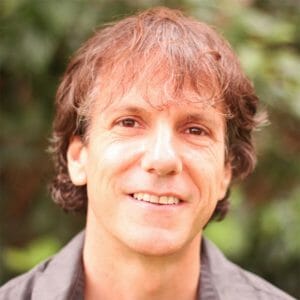
Will is a counselor and facilitator working with individuals, couples, families and groups via phone and web video (Zoom). He has taught and consulted on mental health, trauma, psychosis, medications, domestic violence, conflict resolution, and organizational development in more than 30 countries, and has been widely featured in the media for his advocacy efforts around mental health care. His work and learning arose from his experiences of recovery from madness, and today he is passionate about new visions of mind and what it means to be human.



In today’s Solidarity Friday’s Episode, Kyle and Joe sit down to talk about Grof Legacy Training, Peyote scarcity, a DMT survey on entities, and more.
In this episode, Joe invites previous guest, Dena Justice back on the show to continue the conversation on Neuro Linguistic Programming and non-ordinary states of consciousness.
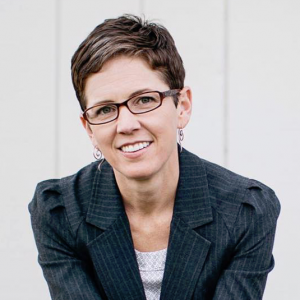
As a master manifester, Dena has created a beautiful life for herself. She been financially responsible since age 15 including putting herself through college, two masters degrees and purchasing her own home in the San Francisco Bay Area. She has made over $1M in her life through a fulfilling career as a facilitator, educator, trainer, mentor and coach working with thousands of people across the country. She loved her career, yet hit a point where she felt empty. Near the top of her career ladder, she was a classic case of a high performer and leader hitting burnout. She chose a powerful pivot out of her J-O-B and into her own business. Now, she helps other high performers who have hit burnout and are scared to admit they’ve hit a plateau or a wall. She helps them get the eff out of their own way and move to the next level to increase their impact so they feel fulfilled and inspired again, as well as helping them create more wealth and the relationships they want in their lives. She helps people experience new levels of success, increase/improve focus and performance, abolish FOMO, evolve communication skills, develop transformational leadership skills, create amazing relationships, increase financial abundance and live life on their own terms.
In this episode, Kyle interviews Jessica DiRuzza, Psychotherapist, Astrologer and Teacher. In the show they talk about how astrology can be used as a tool and framework for navigating and understanding psychedelic experiences.
A Saturn Return transit can be a difficult but transformative time in one’s life. This transit happens around age 28-31. During this time, we face crises in our life as we take on greater responsibility. It can feel like death and a rebirth. It can correlate to Grof’s Perinatal Birth Matrix II (“No Exit” and “Cosmic Engulfment”).
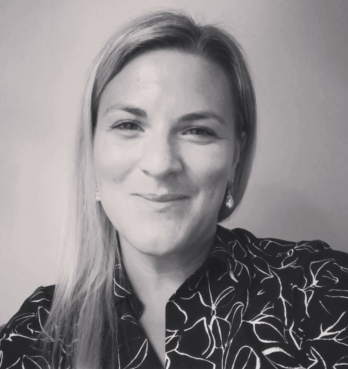
Jessica is a licensed psychotherapist, astrologer, and teacher. Her life is guided by a passion for engaging with people, understanding relationships, and staying connected to the larger world around us. This passion and curiosity led her into the healing profession as a counselor in 2007. For over a decade she has worked collaboratively with individuals, couples, and groups on their transformative journeys. Helping people on their path of exploration and healing is the privilege of a lifetime. Jessica received her Master’s in Counseling Psychology with an emphasis in Depth Psychology from Pacifica Graduate Institute. She completed her undergraduate degree at California Institute of Integral Studies, where she studied and taught archetypal astrology and transpersonal psychology. Her greatest joy is working in sacred and revolutionary ways with people in psychotherapy, teaching, and astrological consultations. She also shares her work through podcasts and writing on her site.

In this episode, Kyle and Joe interview previous guest of the show, Daniel Greig. In the show, he goes in depth into the meaning of enlightenment and previews the new book he is writing with Dr. John Vervaeke, The Cognitive Continuum.
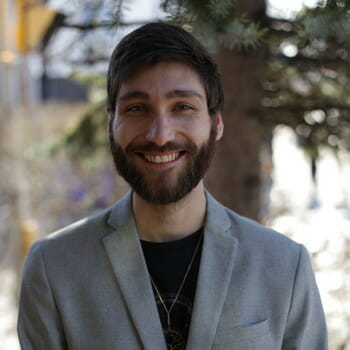
Daniel is an educator, organizer and artist living in Toronto. He studied Cognitive Science and Philosophy at the University of Toronto, specializing in wisdom, consciousness, and spiritual belief and experience. In 2015, he founded the Mapping the Mind conference that occurs annually in Toronto, which raises much needed funds for psychedelic research. Daniel regularly host lectures and workshops, on topics in cognitive science. He is currently writing a book with Dr. John Vervaeke on the science of enlightenment, which will be published in 2020. When not contemplating the realm of the intellect, Daniel delves in the sonic perturbations of music, writing and producing progressive metal.


In this episode, Joe interviews Dr. Peter Addy, Licensed Mental Health Counselor out of Washington. In the show, they talk about the research and therapeutic use of Salvia.
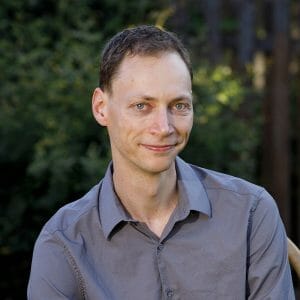
Peter is both a Licensed Mental Health Counselor in Washington and a Licensed Professional Counselor in Oregon. He earned a PhD in Clinical Psychology from Sofia University in 2011, including certification in biofeedback and Process Oriented Psychodrama. There, he studied non-ordinary states of consciousness, holistic and all-encompassing views of a person, and ways that these experiences can transform a person and society. Peter then engaged in post-degree specialty training at Danville State Hospital, Yale University School of Medicine, and the Connecticut Mental Health Center. As faculty at Yale University he engaged in research and training. Some of his clinical training is in mindfulness-based therapies, Motivational Interviewing, and Cognitive Behavioral Therapy. He also discovered a passion for data management and security which he brings with him to his online therapy practice.


In this episode, Joe interviews Dena Justice from the Ecstatic Collective. Dena and Joe talk about Neuro Linguistic Programming and how it is beneficial to use with non-ordinary states of consciousness.

As a master manifester, Dena has created a beautiful life for herself. She been financially responsible since age 15 including putting herself through college, two masters degrees and purchasing her own home in the San Francisco Bay Area. She has made over $1M in her life through a fulfilling career as a facilitator, educator, trainer, mentor and coach working with thousands of people across the country. She loved her career, yet hit a point where she felt empty. Near the top of her career ladder, she was a classic case of a high performer and leader hitting burnout. She chose a powerful pivot out of her J-O-B and into her own business. Now, she helps other high performers who have hit burnout and are scared to admit they’ve hit a plateau or a wall. She helps them get the eff out of their own way and move to the next level to increase their impact so they feel fulfilled and inspired again, as well as helping them create more wealth and the relationships they want in their lives. She helps people experience new levels of success, increase/improve focus and performance, abolish FOMO, evolve communication skills, develop transformational leadership skills, create amazing relationships, increase financial abundance and live life on their own terms.


In this episode, Kyle interviews Laura Northrup, Marriage and Relationship Somatic Psychotherapist and creator of the podcast, Inside Eyes. Inside Eyes is an audio series about people using entheogens and psychedelics to heal from sexual trauma.
Trip Journal Integration Workbook

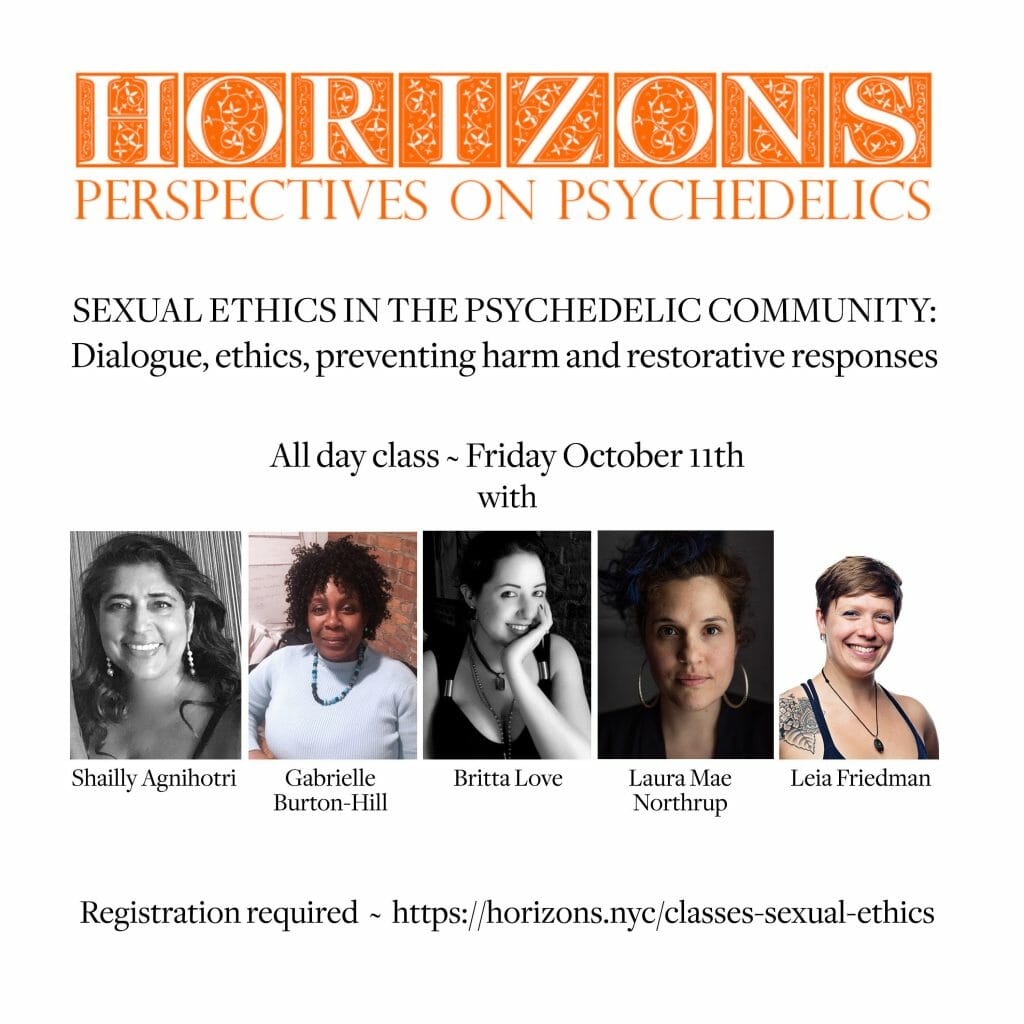
Email: insideeyespodcast@gmail.com

Laura Mae Northrup is the creator and host of the podcast Inside Eyes, a series that explores the use of entheogens and psychedelics to heal sexual trauma. She is a practicing psychotherapist and educator. Her work focuses on defining sexual violence through a spiritual and politicized lens and supporting the spiritual integrity of our collective humanity. She is a champion of living more fully engaged and responsible lives through the healing use of entheogens and psychedelics. She lives and works in Oakland, CA.
In this episode, Kyle interviews Daniel Shankin, Founder of Tam Integration. They cover topics including the Psilocybin Summit, child rearing, and integration practice.
Trip Journal Integration Workbook

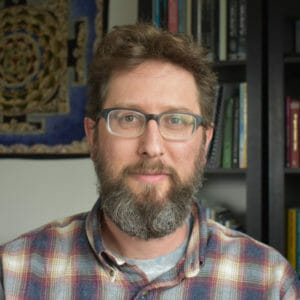
After a profound and intense awakening experience in 1998, Daniel dove deep into his yoga and meditation practice to stabilize his realization in his body and the world. He began teaching in 2002, and took over leadership of his neighborhood yoga studio in 2004. He’s directed several teacher training programs and taught on the faculty of even more. Daniel ‘Sitaram Das’ Shankin has dedicated his life to the cultivation of clarity, resilience, and heart. With the recognition that our true nature is vast and generous, wise, he strives to serve his clients in finding their own innate goodness and boundless strength. He currently offers leadership coaching with a heavy emphasis on mindfulness and somatics, and is based in Marin County. You can visit his website and learn more about coaching opportunities at sitaramdas.com.
In this episode, hosts Kyle and Joe sit down with Psychologist, David Luke, Executive Director of Breaking Conventions, a conference on the better understanding of psychedelics. In the episode, they cover research on psychedelics and transpersonal ecopsychology.
Trip Journal Integration Workbook

Otherworlds: Psychedelics and Exceptional Human Experience (Muswell Hill Press)
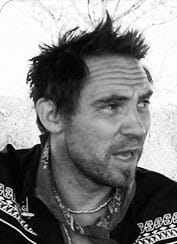
David is Senior Lecturer in Psychology at the University of Greenwich where he teaches the Psychology of Exceptional Human Experience. He was President of the Parapsychological Association between 2009-2011 and has published more than 100 academic papers on the intersection of transpersonal experiences, anomalous phenomena and altered states of consciousness. He has co-authored/co-edited four books on psychedelics and paranormal experience, directs the Ecology, Cosmos and Consciousness salon at the institute of Ecotechnics, and co-founded Breaking Convention.
Download
In this episode, Kyle interviews Dr. Ido Cohen, co-founder of The Integration Circle. In the show, they talk about themes that arise from transformative experiences and the different ways to integrate them through attitude change, environment, and community.
Trip Journal Integration Workbook


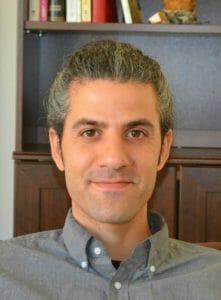
Dr. Ido Cohen is a clinical psychologist who got his doctoral from the California Institute of Integral Studies. He practices relational and depth-oriented psychotherapy with individuals and couples in San Francisco. As his Doctoral research, he conducted a 6-year study on the integration process of ayahuasca ceremonies from a Jungian perspective and has been providing preparation and integration services to individuals/couples/ groups in the bay area. He is also the co-founder of The Integration Circle, a community of practitioners who offer integration circles as well as diverse support to those who are preparing or integrating experiences of expanded states of consciousness.
In this episode, Joe talks with Matthew Remski, yoga teacher, consultant and author. In the show they talk about high demand group life and their cultic mechanisms, and the after effects of living in a high demand group setting.
Trip Journal Integration Workbook


Practice And All Is Coming: Abuse, Cult Dynamics, And Healing In Yoga And Beyond
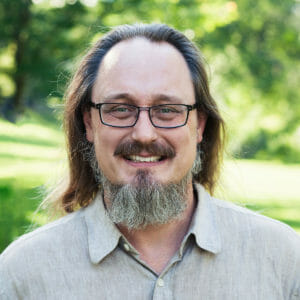
Matthew has been practicing meditation and yoga since 1996, sitting and moving with teachers from the Tibetan Buddhist, Kripalu, Ashtanga, and Iyengar streams. Along the way he has trained as a yoga therapist and an Ayurvedic consultant, and maintained a private practice in Toronto from 2007 to 2015. From 2008 through 2012, he co-directed Yoga Festival Toronto and Yoga Community Toronto, non-profit activist organizations dedicated to promoting open dialogue and accessibility. During that same period, he studied jyotiśhāstra in a small oral-culture setting at the Vidya Institute in Toronto. Matthew currently facilitates programming for yoga trainings internationally, focusing on yoga philosophy, meditation, Ayurveda, and the social psychology of practice. In all subject areas, he encourages students to explore how yoga practice can resist the psychic and material dominance of neoliberalism, and the quickening pace of environmental destruction.
In this special interview, Joe and Kyle sit down with Theologian, John B. Cobb Jr., referred to as the Godfather of American Theology. They recorded with John at the conference they all attended in California, on how exceptional experience can help save the world. They cover a range of topics inspired from Alfred Whitehead’s teachings and the promising applications of Whitehead’s thoughts in the area of ecological civilization and environmental ethics pioneered by John Cobb Jr.
Trip Journal Integration Workbook



Website
Process Theology: An Introductory Exposition
Other books by John Cobb Jr.
A Christian Natural Theology, Second Edition: Based on the Thought of Alfred North Whitehead
Jesus’ Abba: The God Who Has Not Failed
Grace & Responsibility: A Wesleyan Theology for Today
For Our Common Home: Process-Relational Responses to Laudato Si’
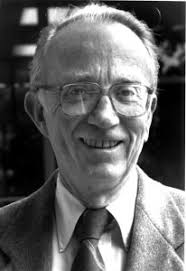
John B. Cobb, Jr., Ph.D, is a founding co-director of the Center for Process Studies and Process & Faith. He has held many positions, such as Ingraham Professor of Theology at the School of Theology at Claremont, Avery Professor at the Claremont Graduate School, Fullbright Professor at the University of Mainz, Visiting Professor at Vanderbilt, Harvard Divinity, Chicago Divinity Schools. His writings include: Christ in a Pluralistic Age; God and the World; For the Common Good. Co-winner of Grawemeyer Award of Ideas Improving World Order.
This is an exclusive interview with Elizabeth Gibson from Dreamshadow. This interview is a master class from the Psychedelics Today online course, Navigating Psychedelics: Lessons on Self Care and Integration.
Trip Journal Integration Workbook


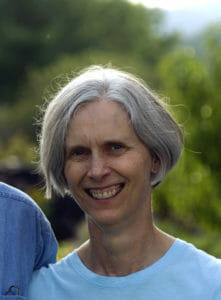
Elizabeth Gibson, M.S., holds a bachelor’s degree in literature and a master’s degree in biology from The University of Tulsa. She has completed Herbert Benson’s Clinical Training in Mind/Body Medicine at Harvard Medical School. Previously she worked as a consultant at Arthur D. Little, Inc., and Radian Corporation in the areas of environmental protection and food research. She is a writer, editor and homemaker with interests in environmental literacy, yoga, music and gardening. Elizabeth is the editor of Stanislav Grof ’s The Ultimate Journey: Consciousness and the Mystery of Death and a contributor to the teaching manual MDMA-Assisted Psychotherapy for the Treatment of Posttraumatic Stress Disorder, both published by the Multidisciplinary Association for Psychedelic Studies. For the past 12 years, she has been responsible for local news for the Town of Pawlet, and from 2008 – 2014 she was the editor of the weekly environment section for the Rutland Herald and Montpelier Times Argus newspapers in Vermont.
In this episode, Joe holds conversation with Dr. Michael Sapiro, Clinical Psychologist out of Boise, Idaho. They cover topics surrounding how meditation and mindfulness intersect with psychedelia as well as psychic ability, altered states and integration.
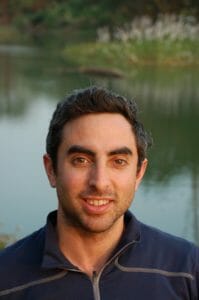
Michael Sapiro, PsyD is a clinical psychologist, Dharma teacher, meditation researcher, and former Buddhist monk. He is on faculty at Esalen Institute and is a Fellow at the Institute of Noetic Sciences where he engages in research on meditation, transformation, and consciousness. He completed his postdoctoral fellowship in advanced psychology at the Boise VA Medical Center where he specialized in rural health, PTSD, and combat trauma. Dr. Sapiro teaches nationally on the art and science of transformation, expanded human capabilities, self-care, and meditation for personal and community growth. He is the founding teacher of Maitri Sangha Boise, an integrated Buddhist community, and director of Maitri House Yoga, LLC, serving the community through integrating meditation practices, psychology, noetic sciences, and social justice. He can be found at maitrihouseyoga.com. He and his wife, Chef Sararak, own and operate Lime and a Coconut: The Art of Thai Cuisine, and together lead international meditation and culinary retreats to Thailand.
In this episode, Kyle and Joe host Rebecca Ann Hill and David Jay Brown, Authors of the book, Women of Visionary Art. The book showcases the work and inspiration of female artists such as Josephine Wall, Allison Grey, Amanda Sage, Martina Hoffman, Carolyn Mary Kleefeld and many others.
Women of Visionary Art (Amazon)
Women of Visionary Art (Inner Traditions)
David’s Site
Rebecca’s Site
MollyMoonSparkle blog

Rebecca Ann Hill (AKA Molly Moon Sparkle), is a visual artist with a wide range of experience in different creative mediums. She is the co-author and illustrator of “Ecstatic Love, Lost Dreams & Mystic Visions”, as well as “Women of Visionary Art.” Primarily a painter, she is creating a new series entitled “Molly Moon Magick,” and her other projects include dancing with “Gold Town Burlesque,” writing a blog -“Go Ask Molly”- and working on a new book about her spiritual awakening.
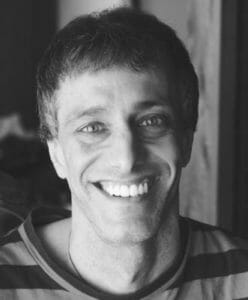
David Jay Brown is the author of Dreaming Wide Awake: Lucid Dreaming, Shamanic Healing and Psychedelics, and The New Science of Psychedelics: At the Nexus of Culture, Consciousness, and Spirituality. He is also the coauthor of five other bestselling volumes of interviews with leading-edge thinkers, Mavericks of the Mind, Voices from the Edge, Conversations on the Edge of the Apocalypse, Mavericks of Medicine, Frontiers of Psychedelic Consciousness, and of Women of Visionary Art. Additionally, Brown is the author of two science fiction novels,Brainchild and Virus, and he is the coauthor of the health science book Detox with Oral Chelation. Brown holds a master’s degree in psychobiology from New York University, and was responsible for the California-based research in two of British biologist Rupert Sheldrake’s books on unexplained phenomena in science: Dogs That Know When Their Owners Are Coming Home and The Sense of Being Stared At. His work has appeared in numerous magazines, including Wired, Discover, and Scientific American, and he was the Senior Editor of the special edition, themed MAPS (Multidisciplinary Association for Psychedelic Studies) Bulletins from 2007 to 2012. In 2011, 2012, and 2013 Brown was voted “Best Writer” in the annual Good Times and Santa Cruz Weekly’s “Best of Santa Cruz” polls, and his news stories have been picked up by The Huffington Post and CBS News.
In this episode, Joe and Kyle sit down with Renn Butler, who graduated from the second ever class of Holotropic Breathwork in 1989. During the show, they discuss topics on Breathwork, Stan Grof practices, archetypal astrology and the astrological landscape we are entering in 2019.
Check out our online course, “Introduction to Psychedelics”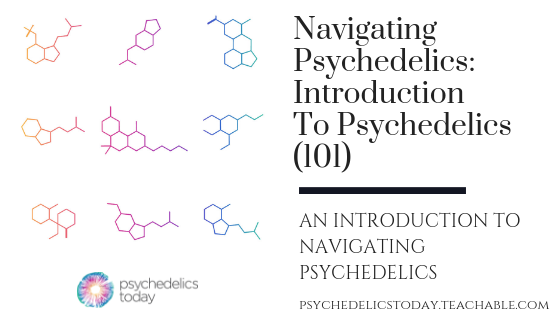
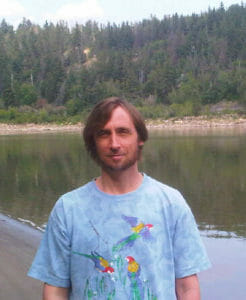
Following a B.A. in English and Religious Studies from the University of Alberta, Renn Butler lived at the Esalen Institute in California for 2½ years where he became deeply immersed in the transpersonal psychology of Stanislav Grof and the emerging archetypal astrology of Richard Tarnas. He completed training as a Holotropic Breathwork facilitator with Stan and Christina Grof in 1989 and has facilitated many workshops in Victoria, Canada. His research includes over three decades of archetypal-astrology consultations and Holotropic Breathwork workshops, and thirty-five years of Jungian-Grofian dreamwork.
In this episode of Psychedelics, Kyle and Joe talk with Daniel Greig. Daniel is a student at the University of Toronto and psychedelic community organizer working with CSSDP and the Toronto Psychedelic Society.
We go all over the map but some notable things discussed in this episode include:

We’re very much detached from our own traditions here in the west.
Just imagining practicing something can have just as much of an effect of your performance than actually practicing it.
You have to bring your insights back into the community to be an effective member of society.
There’s a strong relationship between wisdom and psychedelics.
Without intervention, life will tend toward suffering.


Daniel is a student of Cognitive Science and Philosophy at the University of Toronto. His focus is on mysticism, magic and the psychedelic experience through the lens of psychology and neuroscience. Daniel also works with the Canadian Students for Sensible Drug Policy (CSSDP). He has also spoken at a number of conferences and educational events in Toronto on the subject of psychedelics and philosophy.
In this episode of Psychedelics Today, Kyle and Joe provide a basic introduction to the field of Transpersonal Psychology and a brief overview of Stanislav Grof’s theories and work, including the Basic Perinatal Matrices.
The following excerpt is taken from Kyle’s undergraduate capstone project paper, “The Psychology of Extraordinary Experiences.”
The word transpersonal can be defined as “beyond one’s self or ego.” The catalyst for the re-emergence of this field was fueled by heady days of the 1960’s which included social change, self-exploration, and a radical shift in consciousness.
What exactly is the field of transpersonal psychology and psychiatry that was developed out of the events of the late 1960s? The Textbook of Transpersonal Psychiatry and Psychology defines these terms as follows:
Transpersonal psychiatry, therefore, is psychiatry that seeks to foster development, correct developmental arrests, and heal traumas at all levels of development, including transpersonal levels. It extends the standard biopsychosocial model of psychiatry to a biopsychosocial-spiritual one in which the later stages of human development are concerned with development beyond, or transcendent of, the individual….Transpersonal psychiatry and psychology address that universal aspect of human consciousness that is transpersonal experience and do not propound the belief of any one religion. (Scotton, 1996, p. 4-5)
Ultimately, transpersonal psychology allows the ability to view different cultural perspectives about reality. This can be achieved by observing and understanding various cultural beliefs as being a valid representation of that specific culture’s known reality (Scotton, 1996).
Transpersonal psychiatry allows not only that other vantage points (other societies) construct equally valid realities, but also that reality can be constructed in more positive directions with adequate techniques and personal development. (Scotton, 1996, p. 6)
The word transpersonal was first coined and used by William James in a lecture in 1905 (Chinen, 1996). During the mid-1960s a group of humanistic psychologists got together on behalf of Anthony Sutich, a pioneer in the field of transpersonal psychology, and the founding editor of the Journal of Humanistic Psychology. The meetings were held at Sutich’s home in California and consisted of topics that were of concern and dealt with issues that were known as transhumanistic, meaning beyond humanistic psychology (Chinen, 1996). Abraham Maslow was one of the main guiding participants for these meetings, and also a pioneer at the time for his theory of peak experiences. Peak experiences dealt with experiences that an individual might have that brings a sense of clarity or awakening to the person’s life. Stanislav Grof suggested the use of the term transpersonal at one of the meetings with Sutich, Maslow and the Austrian psychiatrist, Victor Frankl, for the newly emerging field of psychology soon to be known as the fourth force, or transpersonal psychology (Chinen, 1996). The meetings at Sutich’s house finally led to the announcement of the new field of transpersonal psychology in 1968, which separated itself from the humanistic approach of psychology (Chinen, 1996). The purpose of this new branch of psychology was to explore non-ordinary states of consciousness and spirituality.
Sutich is held accountable for the following original mission statement that is in the first issue of the Journal of Transpersonal Psychology:
The Journal of Transpersonal Psychology is concerned with the publication of theoretical and applied research, original contributions, empirical papers, articles and studies in meta-needs, ultimate values, unitive consciousness, peak experience, ecstasy, mystical experience, B-values, essence, bliss, awe, wonder, self-actualization, ultimate meaning, transcendence of the self, spirit, sacralization of everyday life, oneness, cosmic awareness, cosmic play, individual and species wide synergy, maximal interpersonal encounter, transcendental phenomena; maximal sensory awareness, responsiveness and expression; and related concepts, experiences and activities. As a statement of purpose, this formulation is to be understood as subject to optional individual or group interpretations, either wholly or in part, with regard to the acceptance of its content as essentially naturalistic, theistic, supernaturalistic, or any other designated classification. (Chinen, 1996, p. 10-11)
Basically, there are three points to this mission statement. The first is to have a focus on concerning issues that deal with experiences that are traditionally classified as mystical or religious. Second, there must be emphasizes on the use of empirical and scientific studies to help understand said experiences. And third, they seek to hold and suspend any beliefs regarding whether said experiences or phenomena are to be classified or dismissed as supernatural or not (Chinen, 1996).
References:
Chinen, A. B. (1996). The emergence of transpersonal psychiatry. In B. W. Scotton, A. B. Chinen, & J. R. Battista (Eds.), Textbook of transpersonal psychiatry and psychology (pp. 9-18). New York, NY, US: Basic Books.
Scotton, Bruce. (1996). Introduction and definition of transpersonal psychiatry. Scotton, Bruce W., & Chinen, Allen B., & Battista, John R. (Eds.), Textbook of transpersonal psychiatry and psychology (pp. 3-18). New York, NY: Basic Books.
Books Mentioned (These links are Amazon Affiliate links. Psychedelics Today receives a small commission at no charge to you)
Lenny Gibson – A brief history of psychedelics in the Western world
What is breathwork and Transpersonal Breathwork? Kyle and Joe talk about the components and mechanics of breathwork and share some personal experiences. Breathwork is a topic that is brought up often on Psychedelics Today, so here is a more in-depth discussion about what it is. The form of breathwork that Joe and Kyle are trained in is Transpersonal Breathwork. More about this practice below.

From dreamshadow.com
Dreamshadow Transpersonal Breathwork is an applied, practice-linked philosophy that uses the method of Stanislav Grof’s Holotropic Breathwork as a modern shamanic practice for self-discovery through cathartic re-experience of events from a person’s biographic history and the process of birth, as well as the potential apprehension of archetypes and events in the cosmos.
The experiential aspect of Dreamshadow Transpersonal Breathwork uses a combination of group process, intense breathing, evocative music, body work, and expressive drawing.
The term “transpersonal” refers to those experiences where our sense of self-identity expands beyond our personal biography and ego boundaries and transcends the usual limitations of time and space. These experiences facilitate deeper understanding of ourselves, our relation to others and our place in the universe. They help us gain increased comfort in daily life and a spiritual intelligence that fosters calm and optimism amidst the difficulties of the world.
Dreamshadow Transpersonal Breathwork draws on the work of William James, Carl Jung, Abraham Maslow, Stanislav Grof and others. Grof is a pioneering psychedelic researcher, investigator of exceptional human experiences and cofounder of the transpersonal psychology movement. Together with his wife Christina Grof, he developed Holotropic Breathwork, an inspiration of Dreamshadow Transpersonal Breathwork, Integrative Breathwork and other methods. In his book The Holotropic Mind, Grof describes Holotropic Breathwork as a seemingly simple process with “extraordinary potential for opening the way for exploring the entire spectrum of the inner world.”


Joe speaks with Becca Segall Tarnas about her work with Carl Jung’s Red Book and J.R.R. Tolkien. There is a substantial amount of overlap between the two. Why these two in a show about psychedelics? Transpersonal Jungian psychology is the bridge. There appears to be objects or entities beyond the veil of our perception and understanding (so far). We have a collective imagination collective unconscious that these things interact in. Psychedelics and other methods can give us access to these. Becca will be presenting her work to this point at the Prague ITC 2017. This discussion goes all over the world, so feel free to reach out if you have any questions. We really enjoy Becca’s work and hope to have her on again in the near future!

Becca Segall Tarnas is a doctoral candidate in the Philosophy and Religion department at the California Institute of Integral Studies. Her dissertation research is focused on the theoretical implications of the synchronicity between the Red Books of C.G. Jung and J.R.R. Tolkien. Becca received her M.A. from CIIS, and her B.A. from Mount Holyoke College. Her research interests include ecology, imagination, philosophy, and depth psychology, and she is also co-editor of Archai: The Journal of Archetypal Cosmology.
All that is gold does not glitter, not all those who wander are lost; the old that is strong does not wither, deep roots are not reached by the frost. J. R. R. Tolkien
“The Road goes ever on and on
Down from the door where it began.
Now far ahead the Road has gone,
And I must follow, if I can.” Tolkien – The Fellowship of the Ring“I indignantly answered, “Do you call light what we men call the worst darkness? Do you call day night?”
To this my soul spoke a word that roused my anger, “My light is not of this world.”
I cried, “I know of no other world!”
The soul answered, “Should it not exist because you know nothing of it?”
― C.G. Jung, The Red Book: Liber Novus
 Thomas B. Roberts promotes the legal adaptation of psychedelics for multidisciplinary cultural uses, primarily their academic and spiritual implications. He formulated Multistate Theory (2013) coined Singlestate Fallacy, mindapps, neurosingularity, metaintelligence, and ideagen, and he named and characterized the Entheogen Reformation (2016). He is a founding member of the Multidisciplinary Association for Psychedelic Studies, a cofounder of the Council on Spiritual Practices and the International Transpersonal Association, originated the Rising Researcher conference sessions, and launched the celebration of Bicycle Day to commemorate the day that Albert Hofmann first intentionally took LSD.
Thomas B. Roberts promotes the legal adaptation of psychedelics for multidisciplinary cultural uses, primarily their academic and spiritual implications. He formulated Multistate Theory (2013) coined Singlestate Fallacy, mindapps, neurosingularity, metaintelligence, and ideagen, and he named and characterized the Entheogen Reformation (2016). He is a founding member of the Multidisciplinary Association for Psychedelic Studies, a cofounder of the Council on Spiritual Practices and the International Transpersonal Association, originated the Rising Researcher conference sessions, and launched the celebration of Bicycle Day to commemorate the day that Albert Hofmann first intentionally took LSD.
AB Hamilton College, MA University of Connecticut, PhD Stanford, Roberts is an emeritus professor of educational psychology at Northern Illinois University, where he taught Foundations of Psychedelic Studies as an Honors Program Seminar. Started in 1981 and taught through 2013, it is the world’s first university-cataloged psychedelic course.
In the fall of 2006, he was a Visiting Scientist at the Johns Hopkins Medical Schools’ Behavioral Pharmacology Research Unit (Griffiths psilocybin team). His website is: www.niu.academia.edu/ThomasRoberts
How LSD Saved One Woman’s Marriage – New York Times
Review: ‘A Really Good Day,’ Ayelet Waldman’s Better Living Through LSD – New York Times
Download
In this episode, Joe and Kyle talk with Emma Bragdon, Founder/Director of Integrative Mental Health for You. The mission of IMHU is, “To facilitate improvements in mental healthcare and encourage psycho-spiritual growth in individuals around the world.” Continue reading “Emma Bragdon PhD. – Can Spiritual Emergencies Be Transformative?”
Download
In this episode, Joe and Kyle chat with Daniel McQueen of Medicinal Mindfulness , which “is a grassroots consciousness organization supporting individuals and communities who choose to use psychedelics and cannabis with intention. Continue reading “Daniel McQueen – Medicinal Mindfulness & Conscious Cannabis Circles”
Download
Tom Shroder Joe and Kyle talk about Tom’s great book titled “Acid Test: LSD, Ecstasy, and the Power to Heal”. Tom is an editor, and author of a number of books as well as the former editor of the Washington Post.
Interviewing Tom was real fun and we appreciate him joining us for the show.
We get into some great topics including
The book is amazing and well worth your time if you want to get familiarized with the hopes and history of psychedelic research.
Links
Download
This episode features Joe Moore, co-host of Psychedelics today. Joe was a student at Plymouth State University in New Hampshire and is now working in the software industry as well as hosting a few podcasts and coordinating Transpersonal Breathwork workshops mostly in Breckenridge, Colorado.
LINKS
Dreamshadow – Holotropic Breathwork in Vermont
CAPS PTSD scoring system
VICE article on Tony Macie – MDMAPTSD
In this episode of Psychedelics Today, Joe interviews the co-host of the show, Kyle Buller. As hosts of the show, we thought that it would be fun to dig a little deeper into our own personal narratives to give our listeners an idea of who we are. This episode offers the opportunity for Kyle to share his story about how he became interested in psychedelics and other non-ordinary states of consciousness.
I became interested in non-ordinary states of consciousness at an young age. One event that sparked my interest in these topics stems from suffering a near-death experience when I was teenager. This experience changed the trajectory of my life and also left me with asking myself many questions about life and death.
Tune into this episode as Joe asks me about my history with non-ordinary states of consciousness, the development of a psychedelic course at Burlington College, my interest in Holotropic Breathwork, and much more.
Thanks for listening!
Download
Kyle and Joe get to talk with Elizabeth regarding her experience with MDMA assisted psychotherapy, Holotropic Breathwork, and her work with Stan and Christina Grof in the Grof Transpersonal Training program. Elizabeth also discusses the importance of bodywork such as working with people who “aren’t back” from their experience, doing breathwork/bodywork with other experienced facilitators, observation of bodywork, and the lack of bodywork in psychedelic psychotherapy. Elizabeth will be facilitating some Dream Work at her next Holotropic Breathwork workshop.
Mentions
Petra and Ken Sloan | Sandra Phocas | Jack Kornfield
Insight and Opening Retreats (for historical reference)
Michael Mithoefer & Annie Mithoefer (2013) – YouTube
Download
This is a continuation of our last episode with Lenny Gibson.
In it we discuss psychedelics, Spring Grove Psychiatric Hospital, Holotropic Breathwork, Agency, and Philosophy.
Let us know what you think.